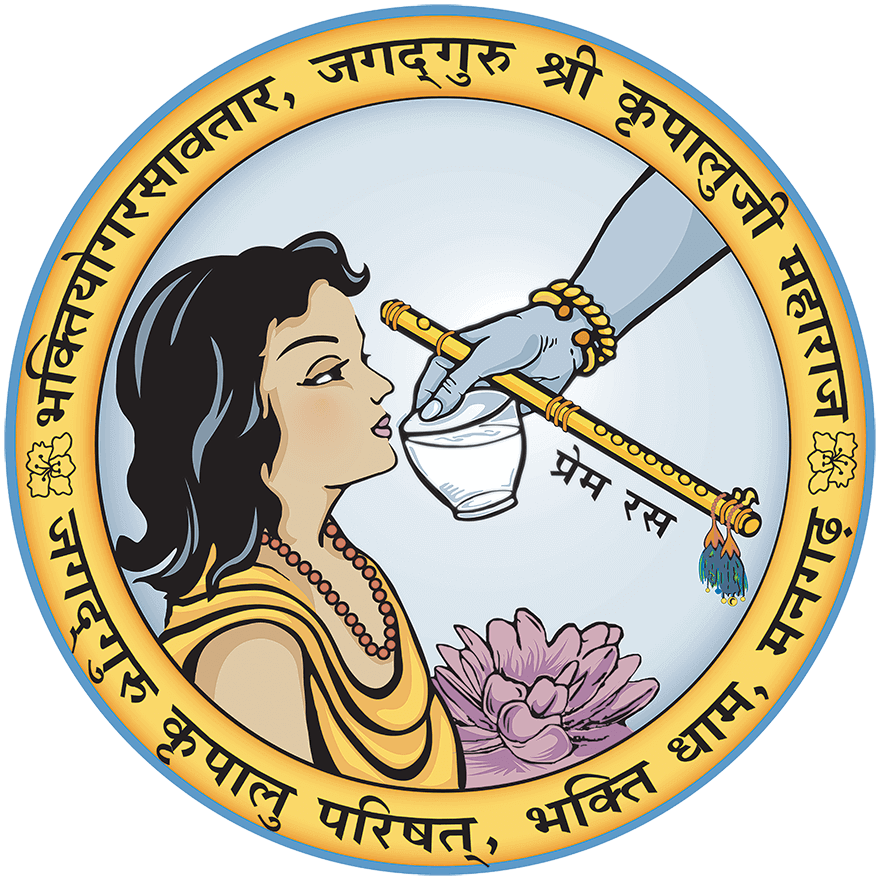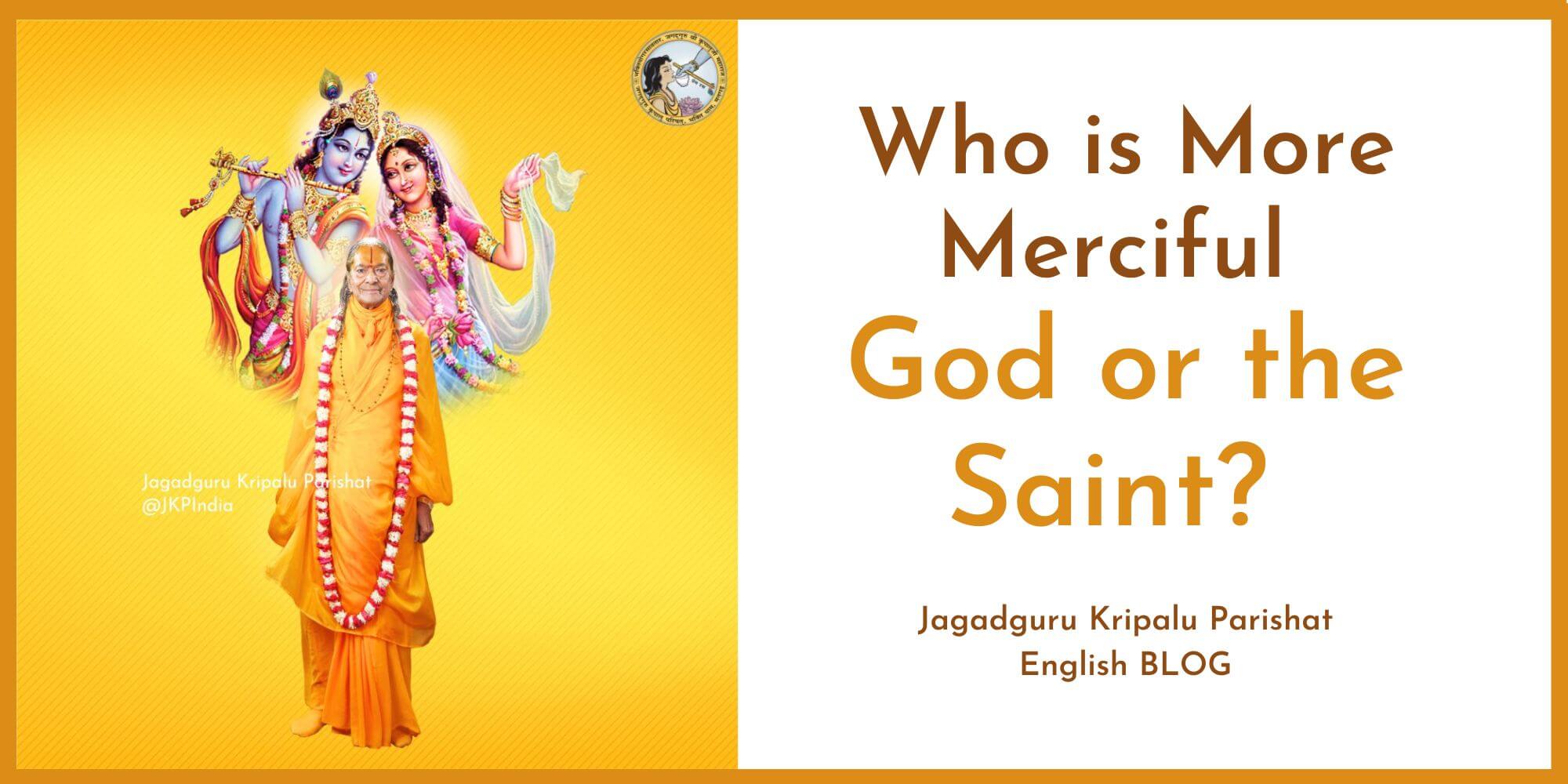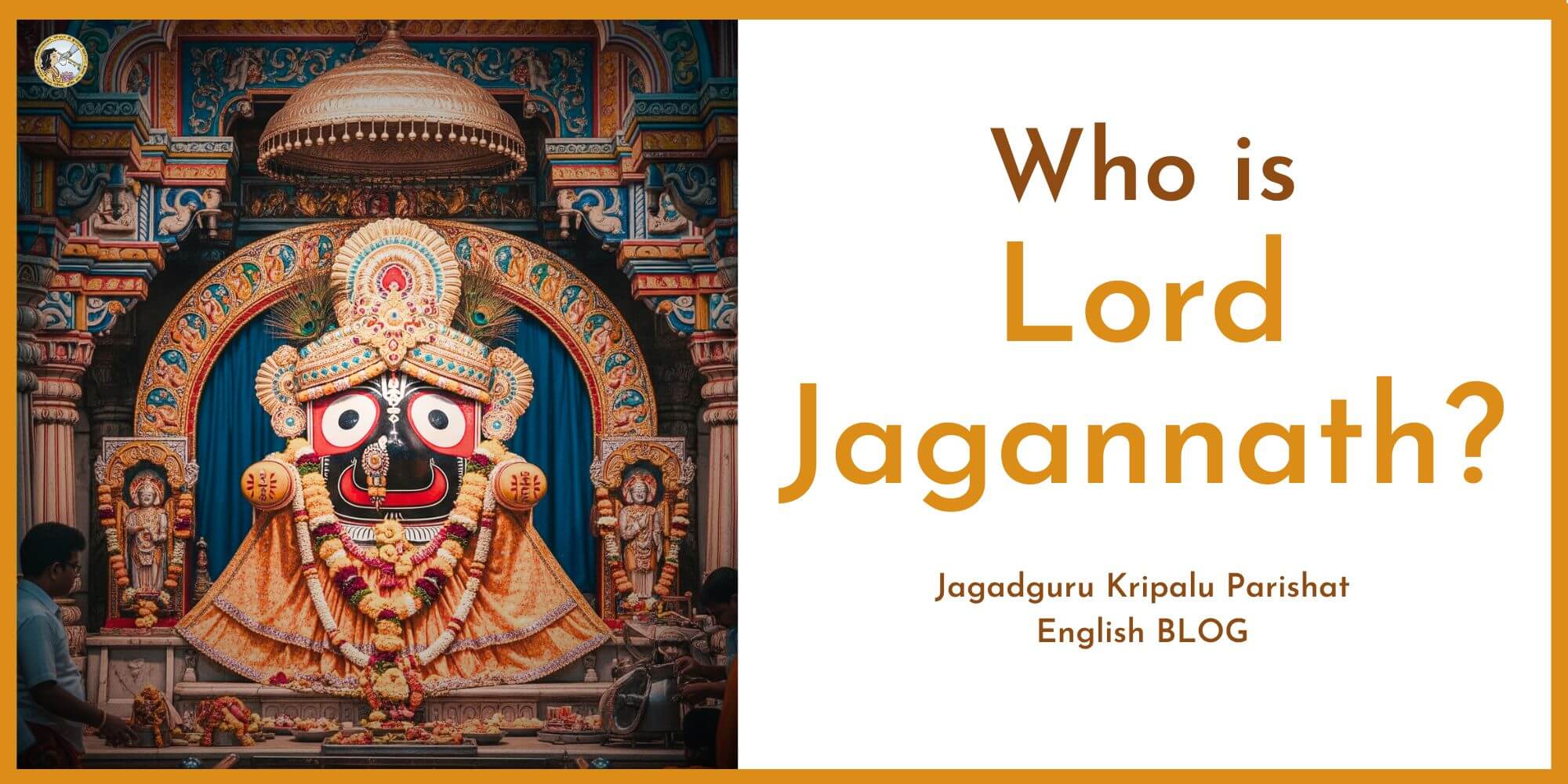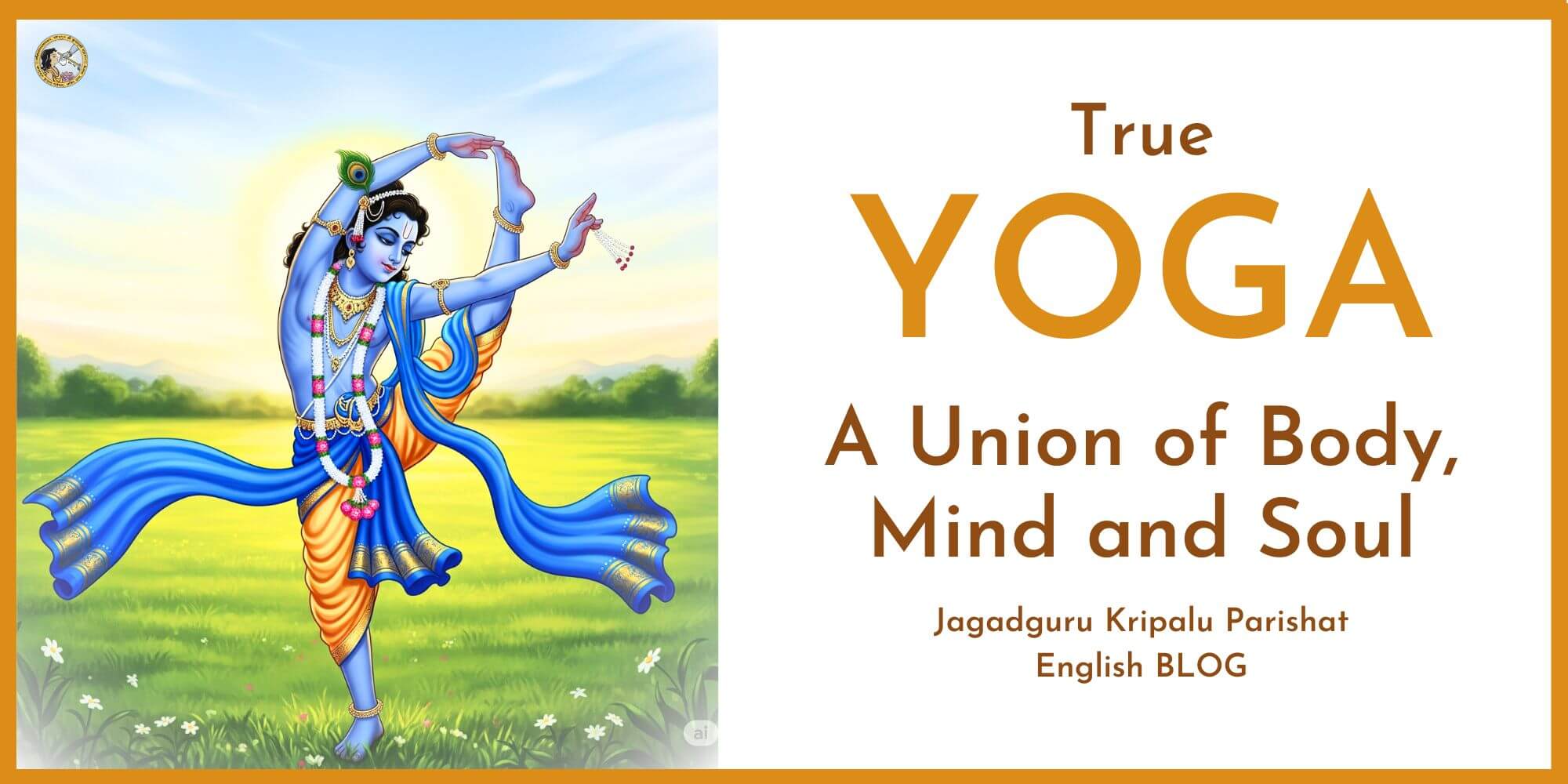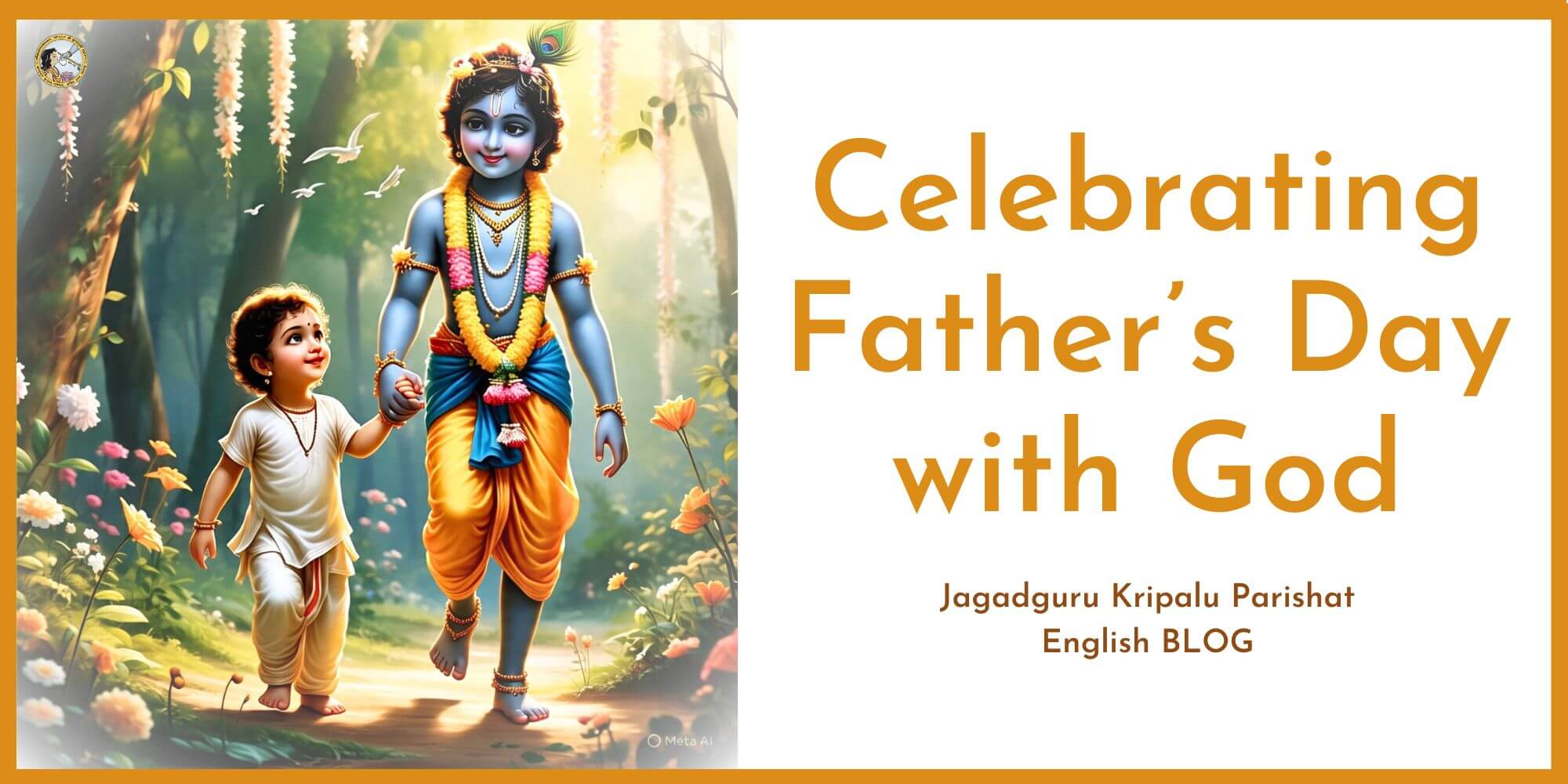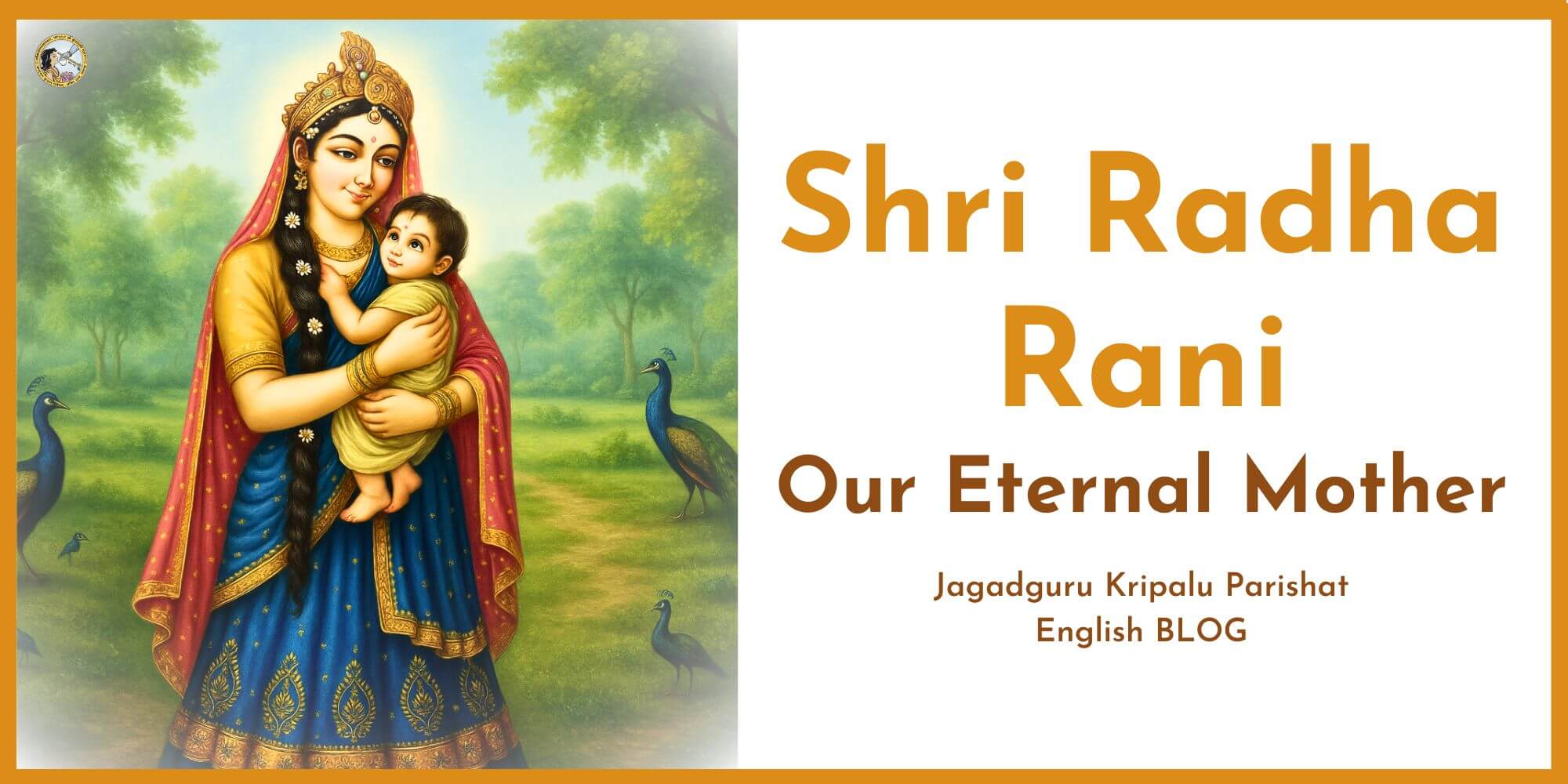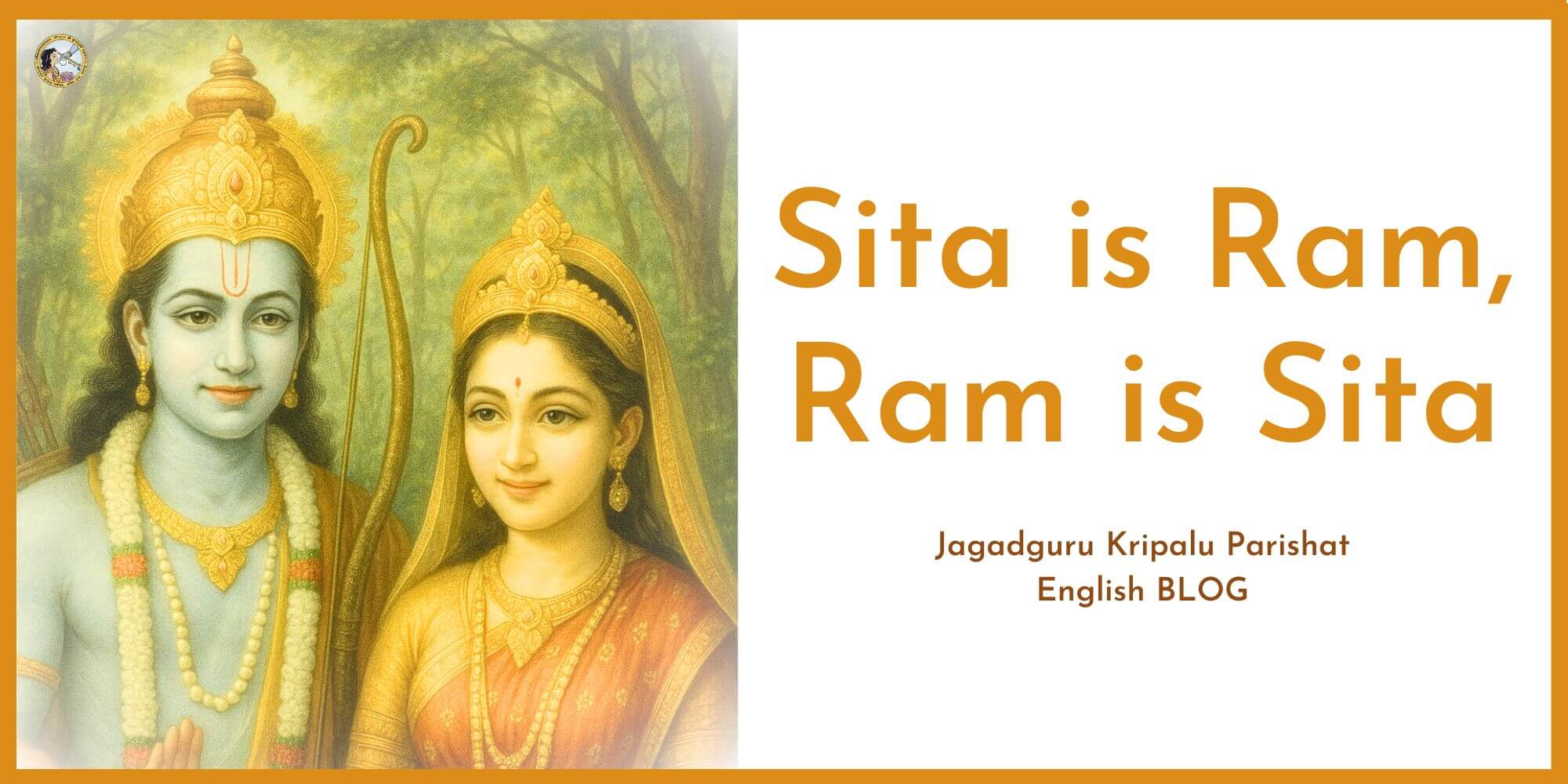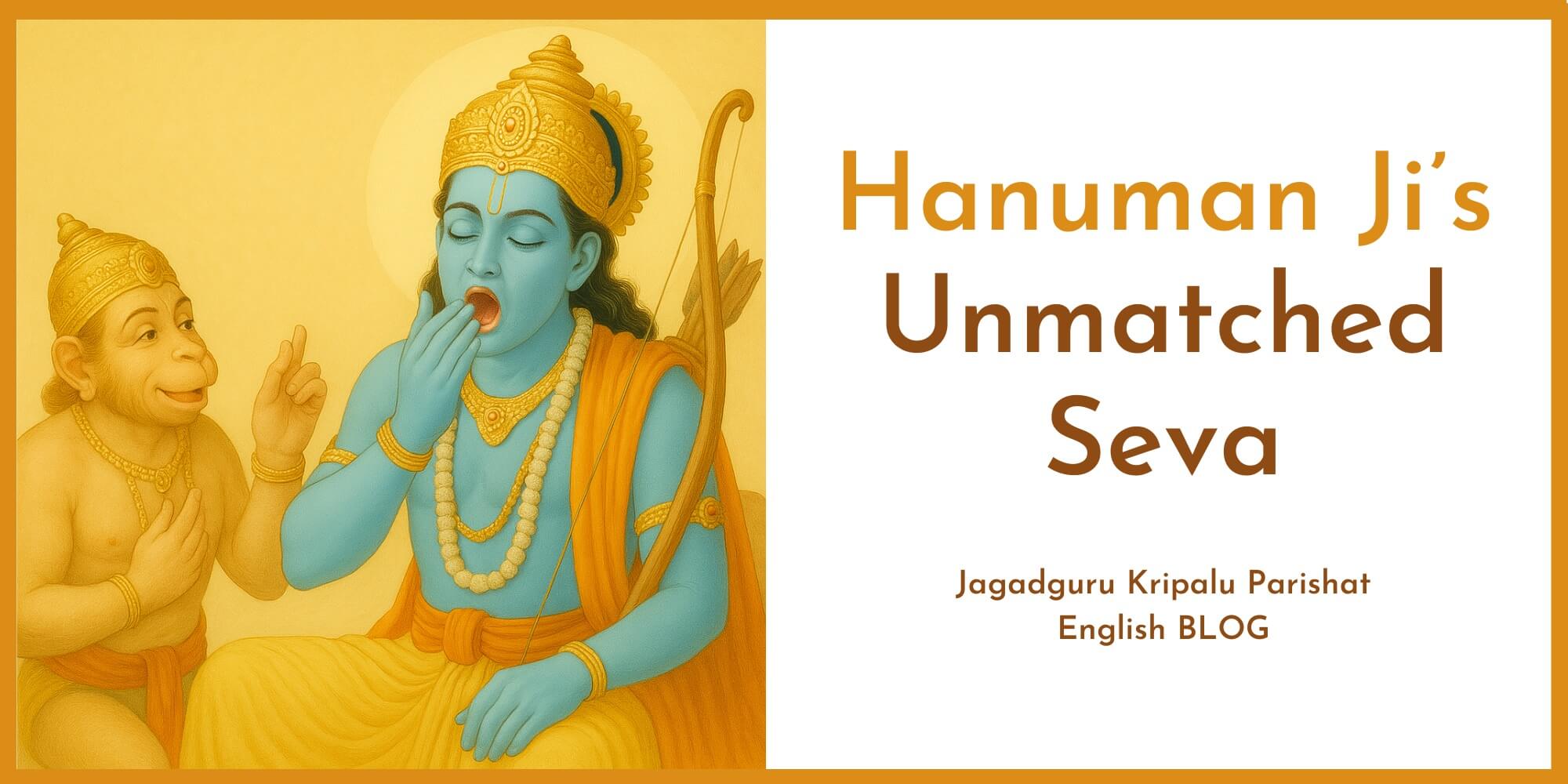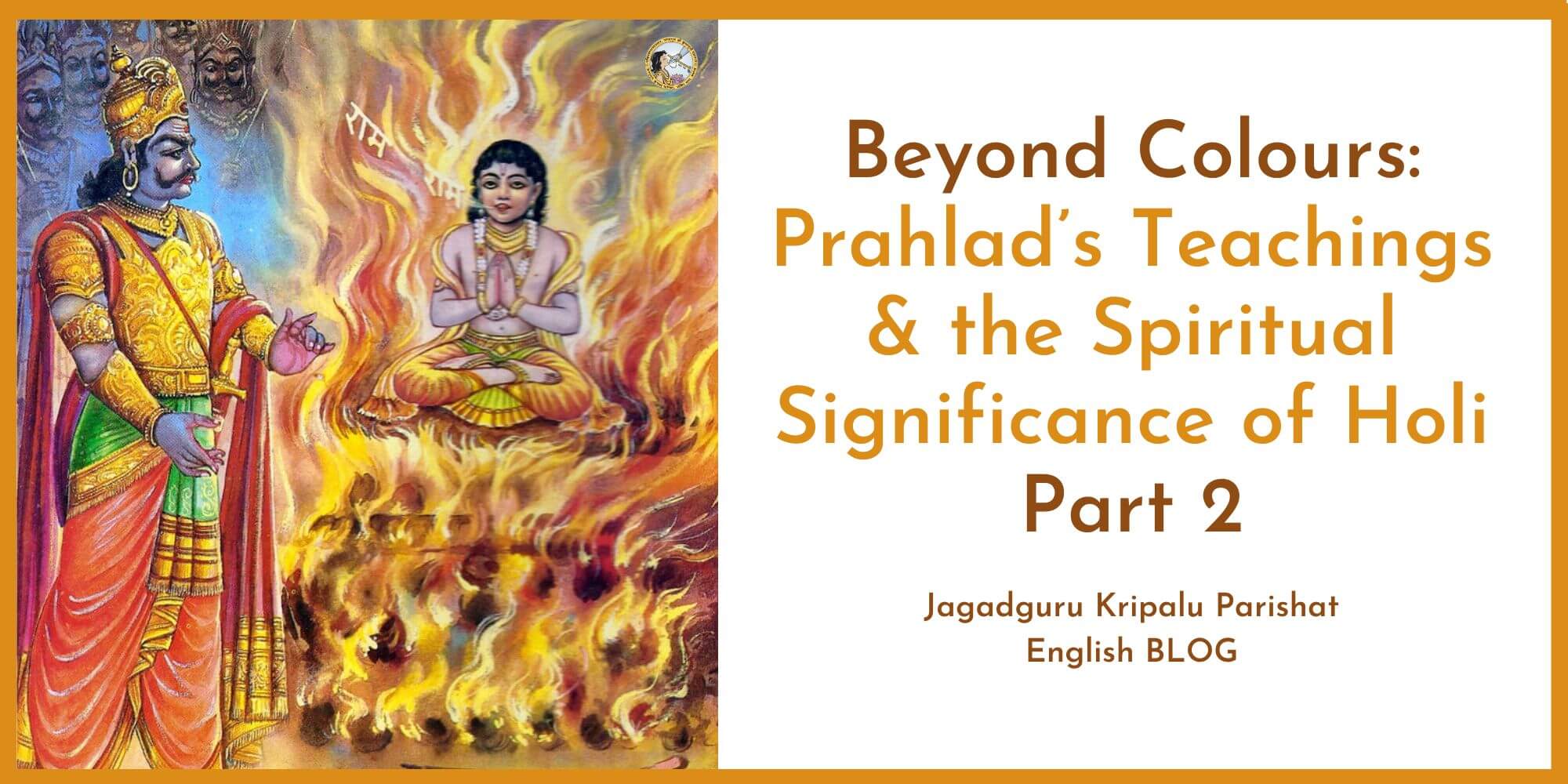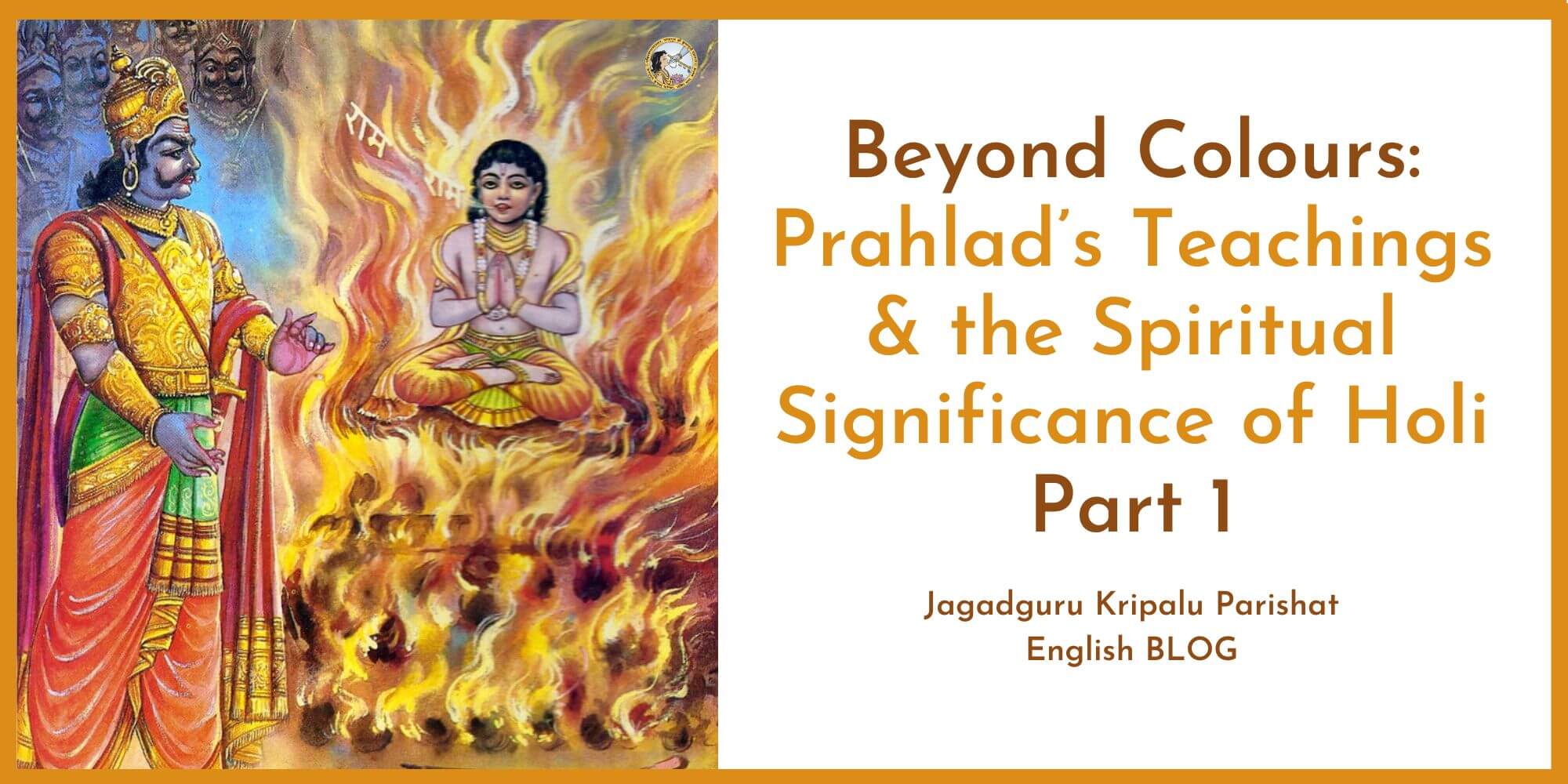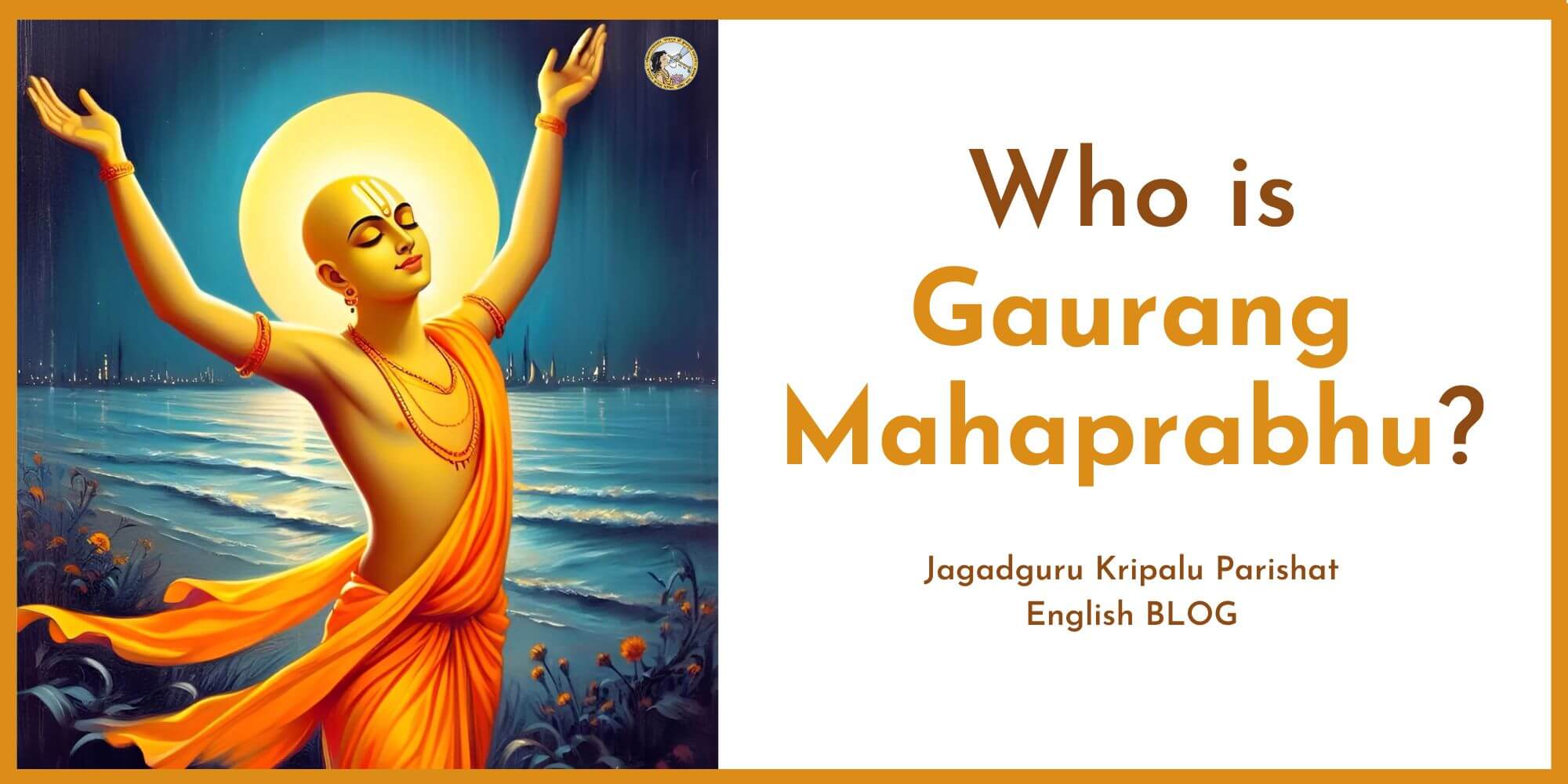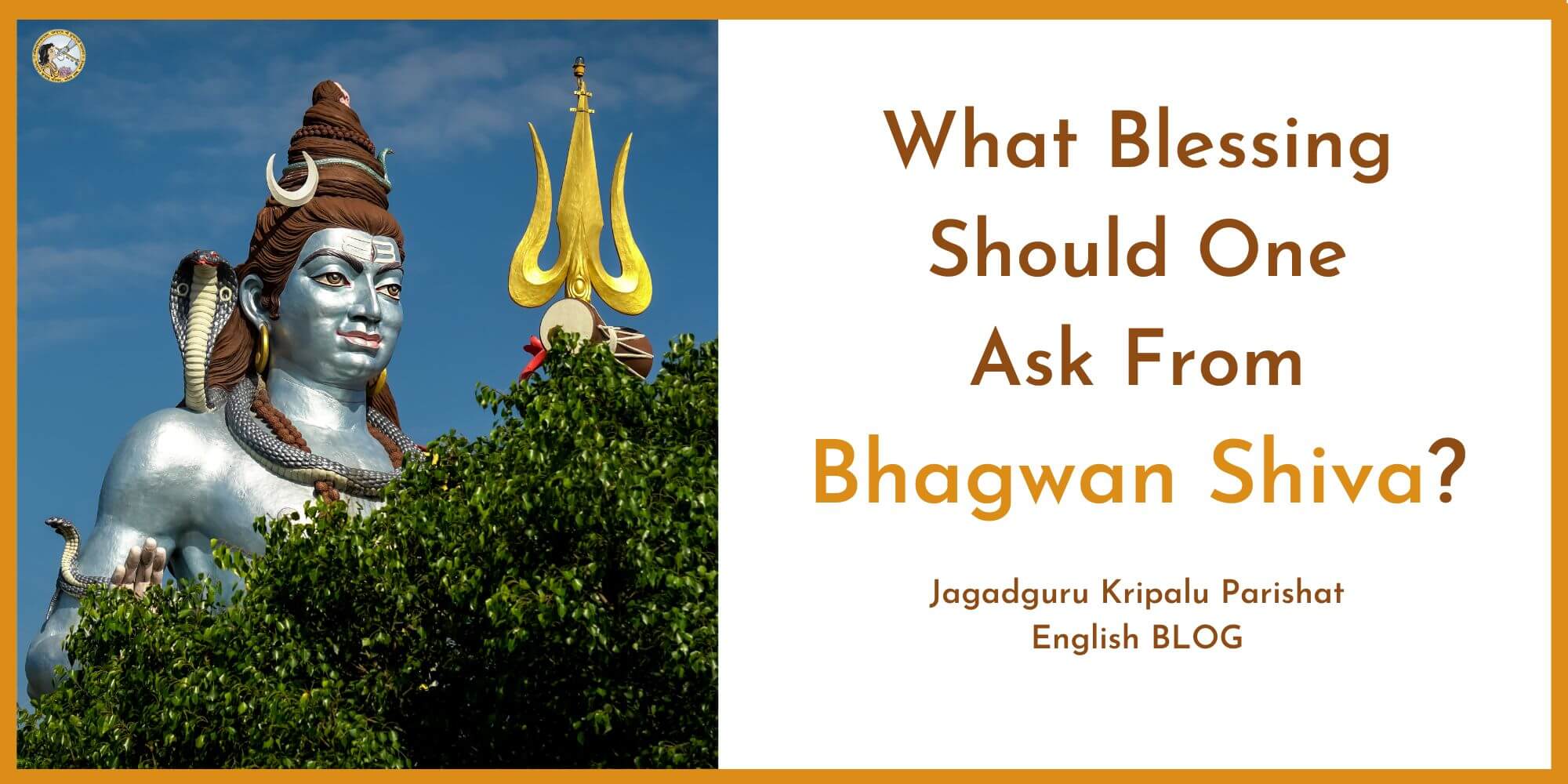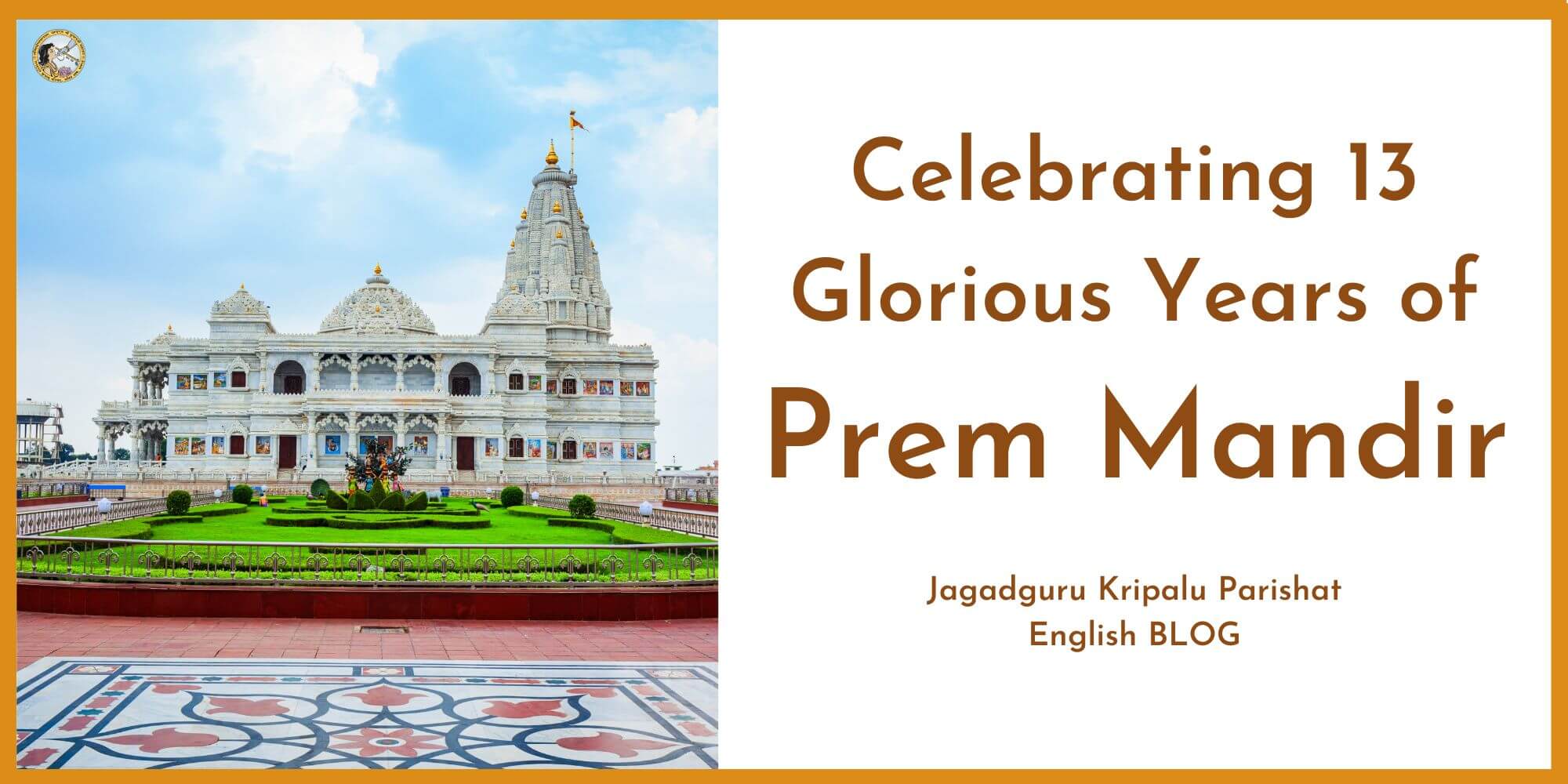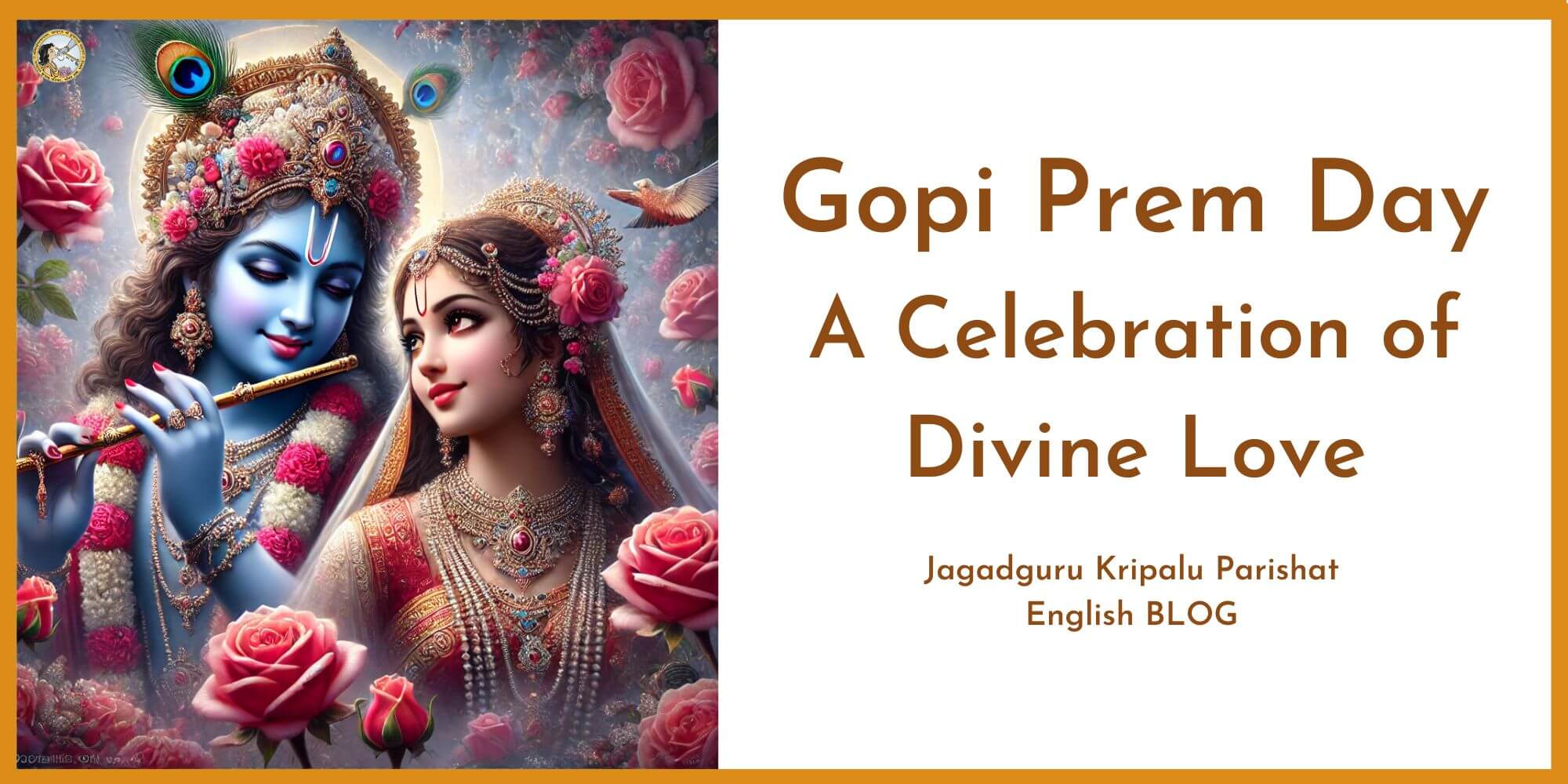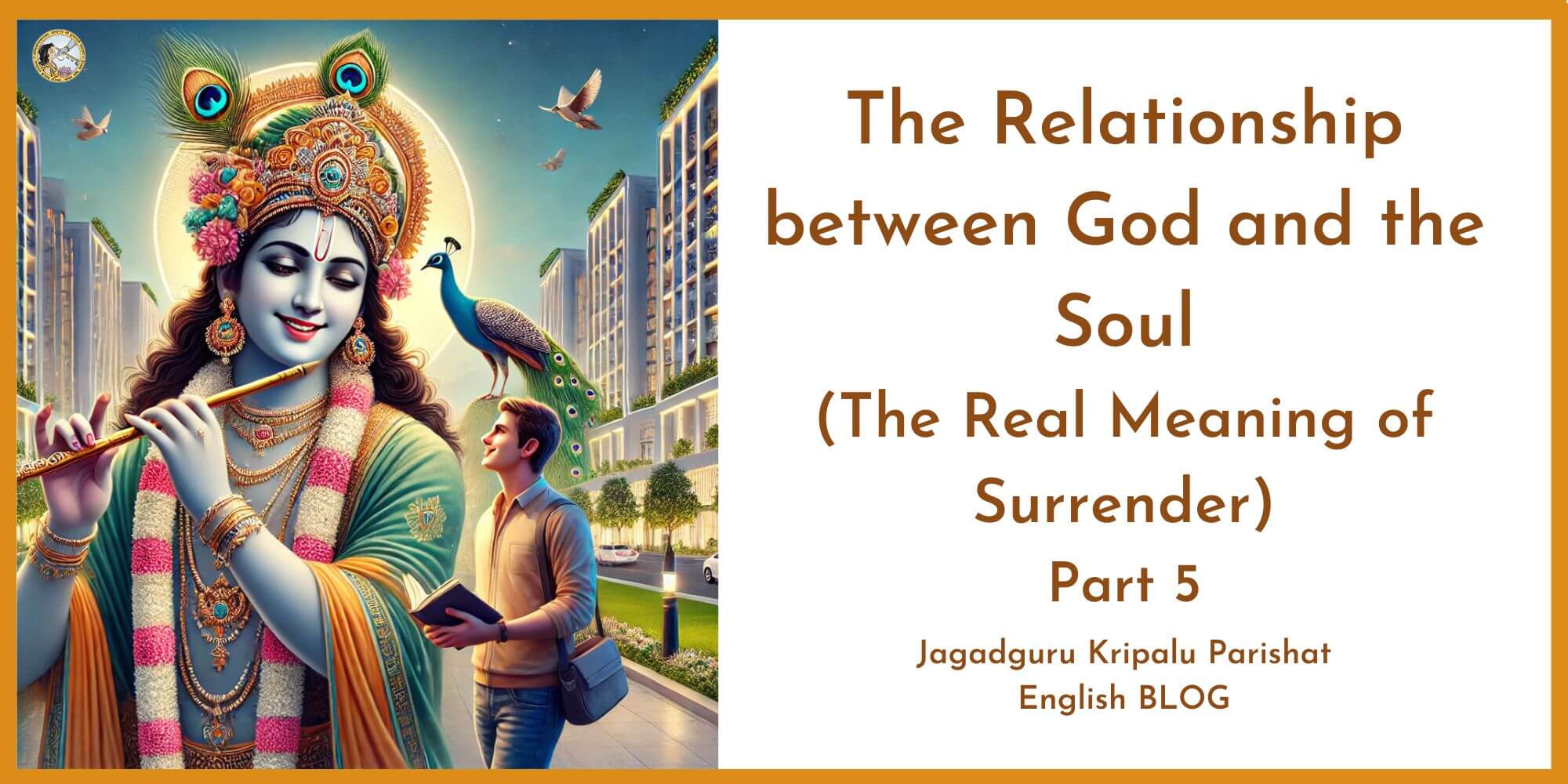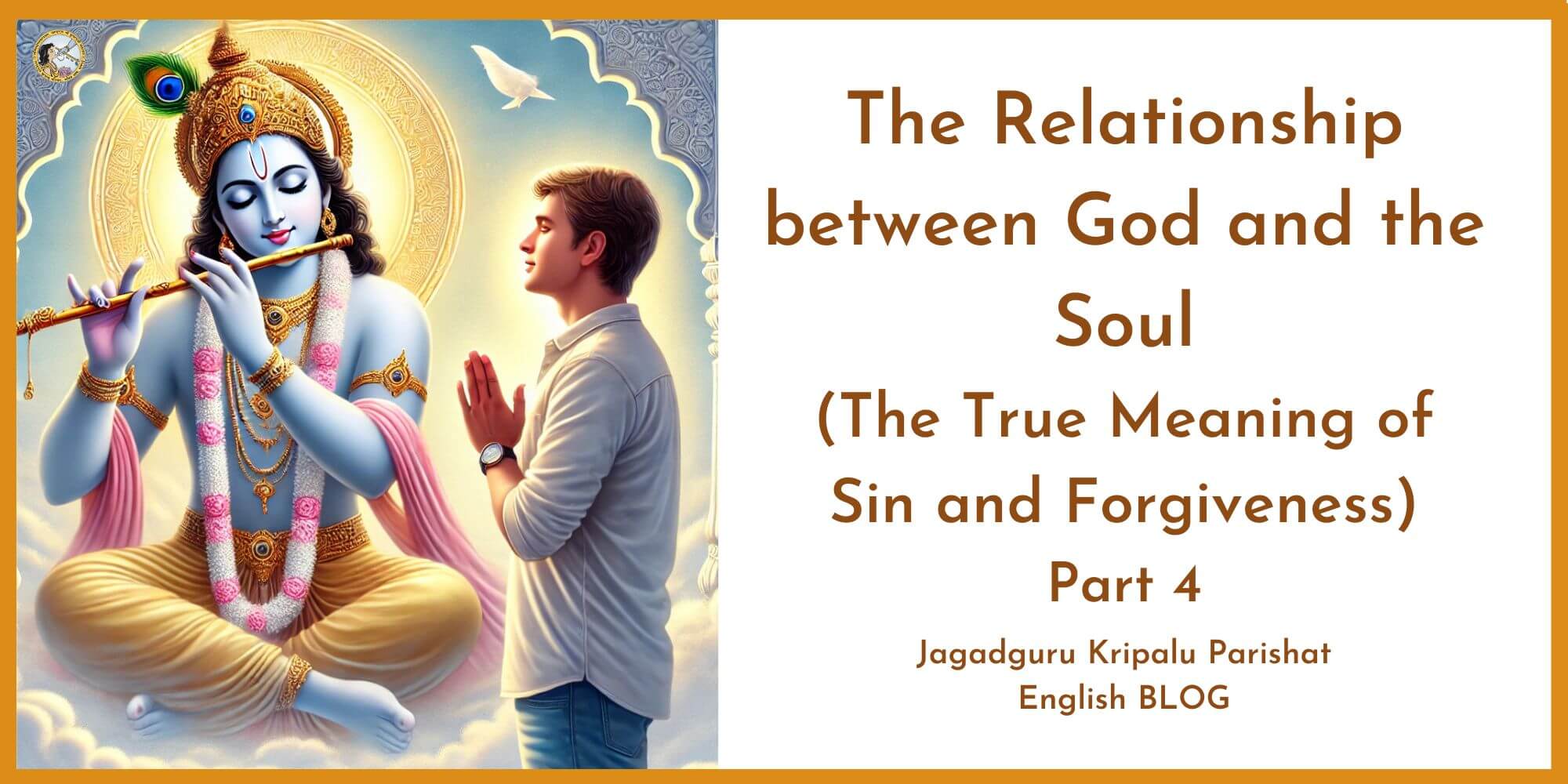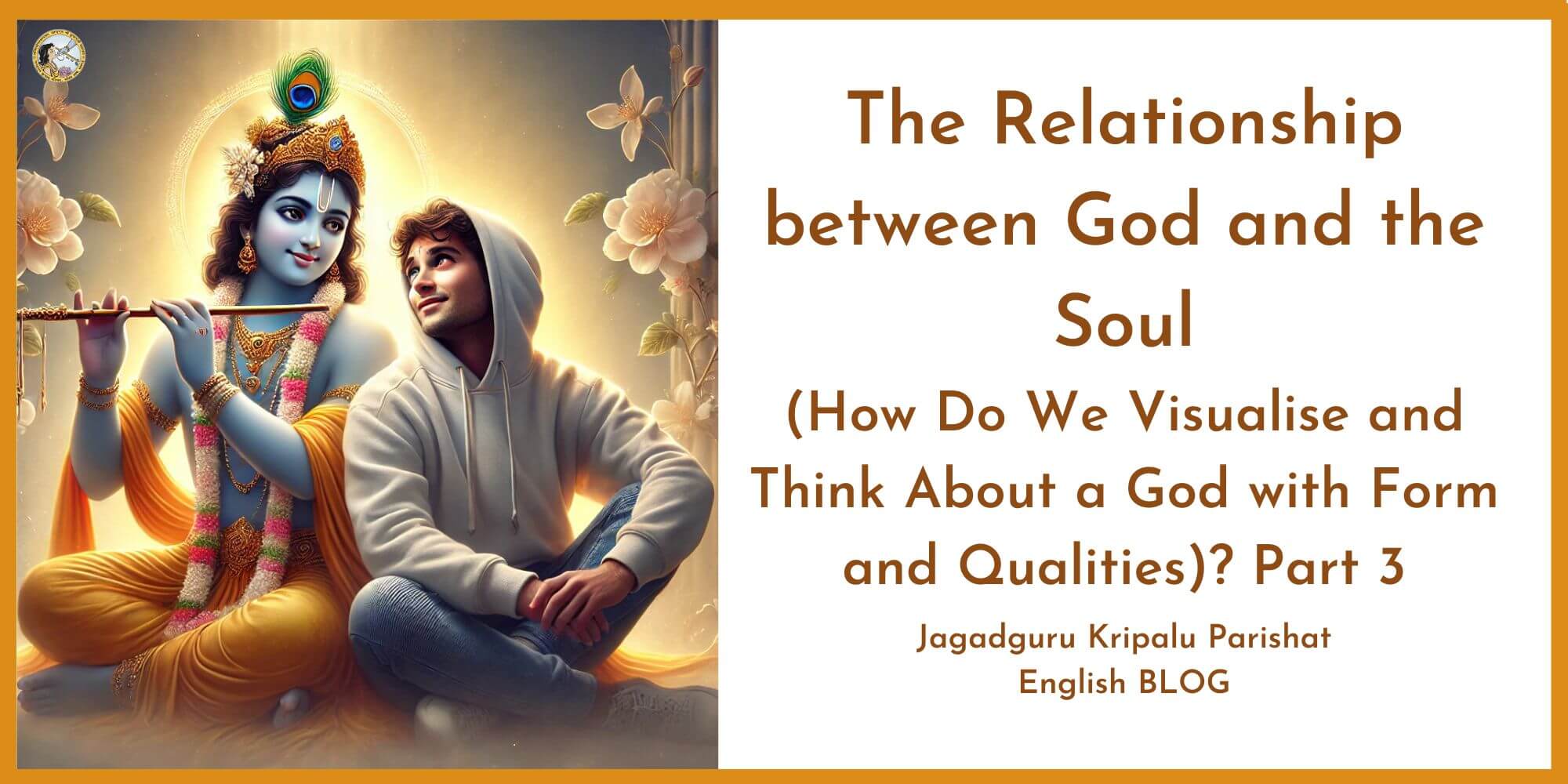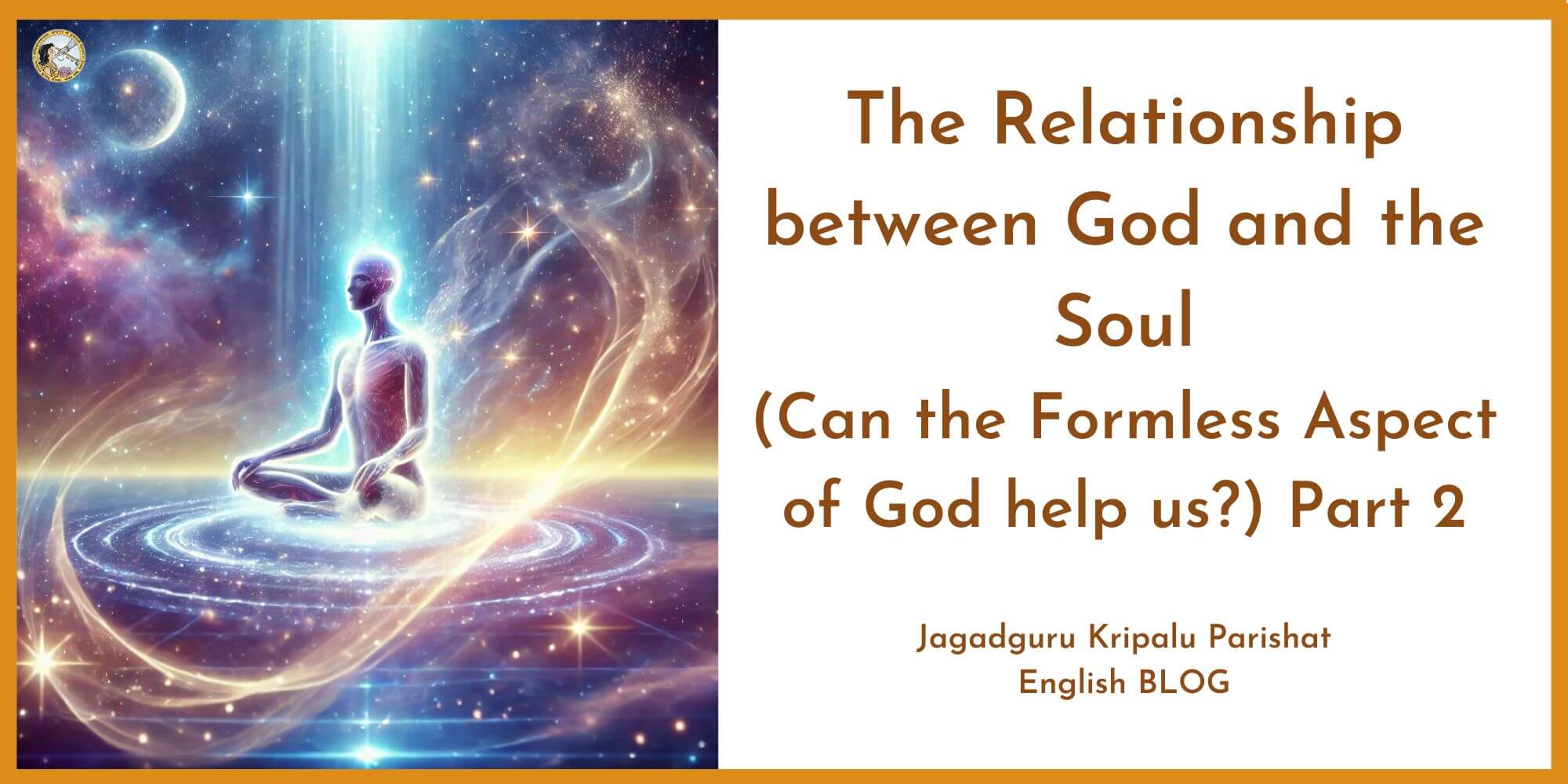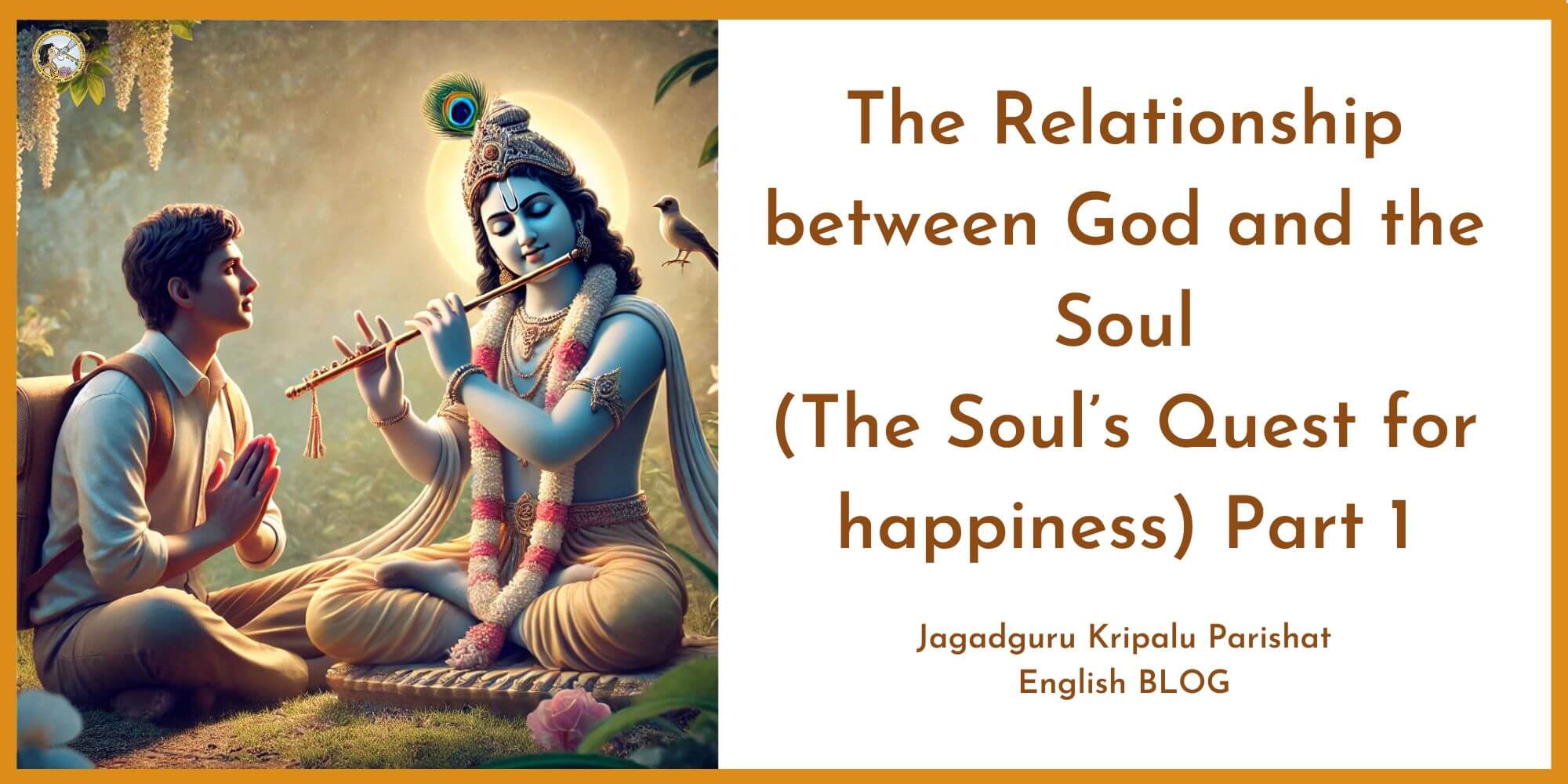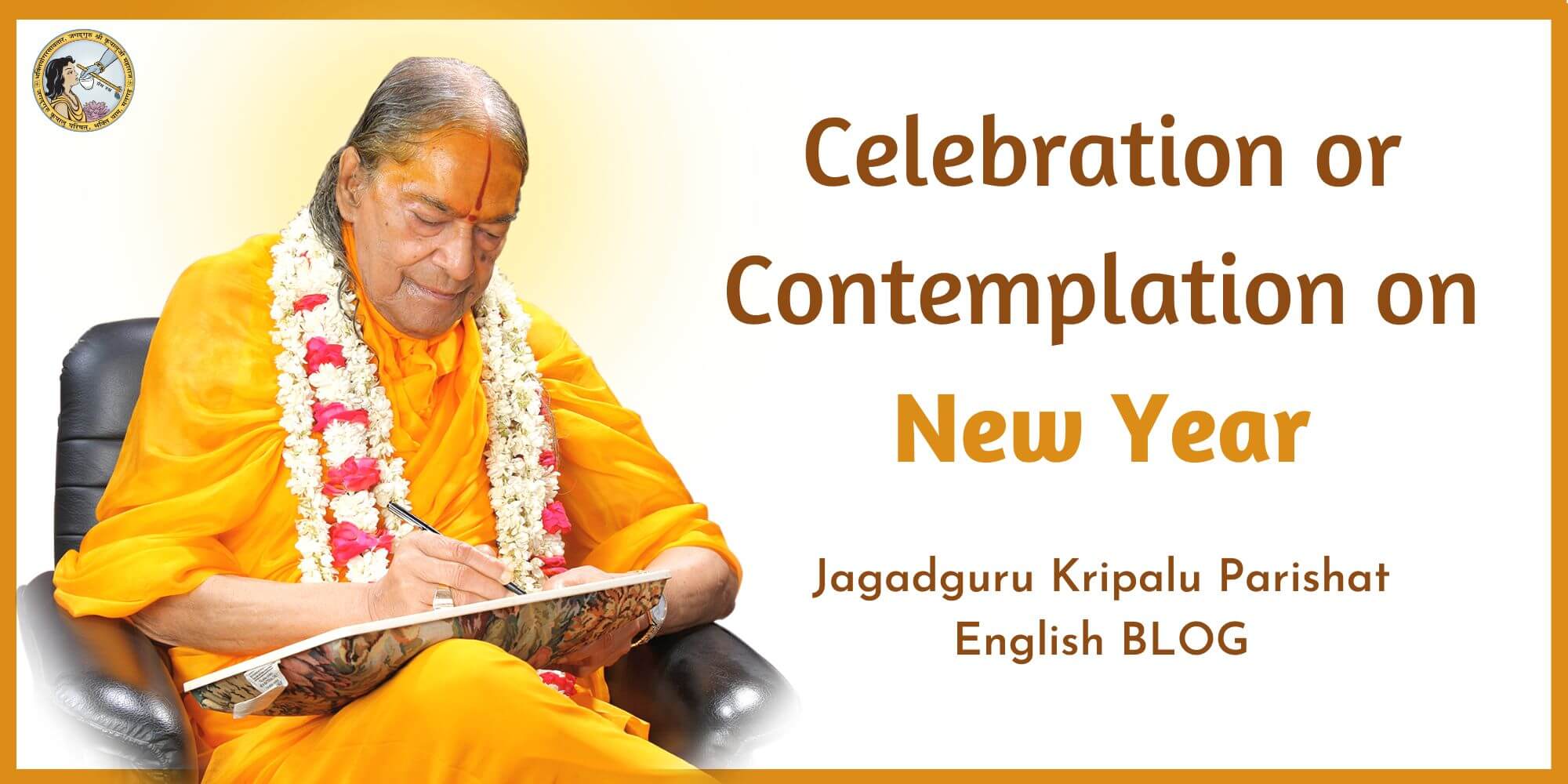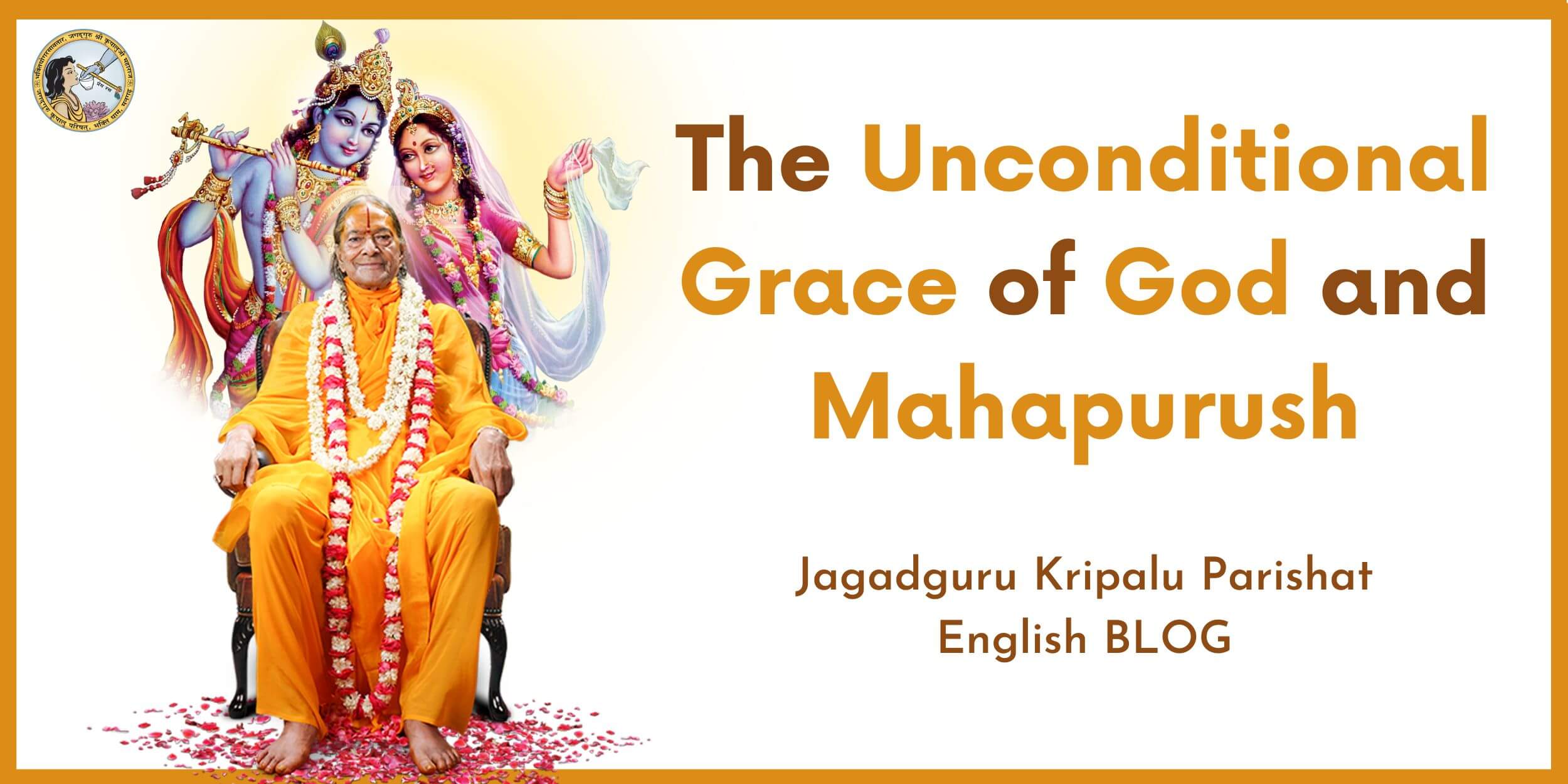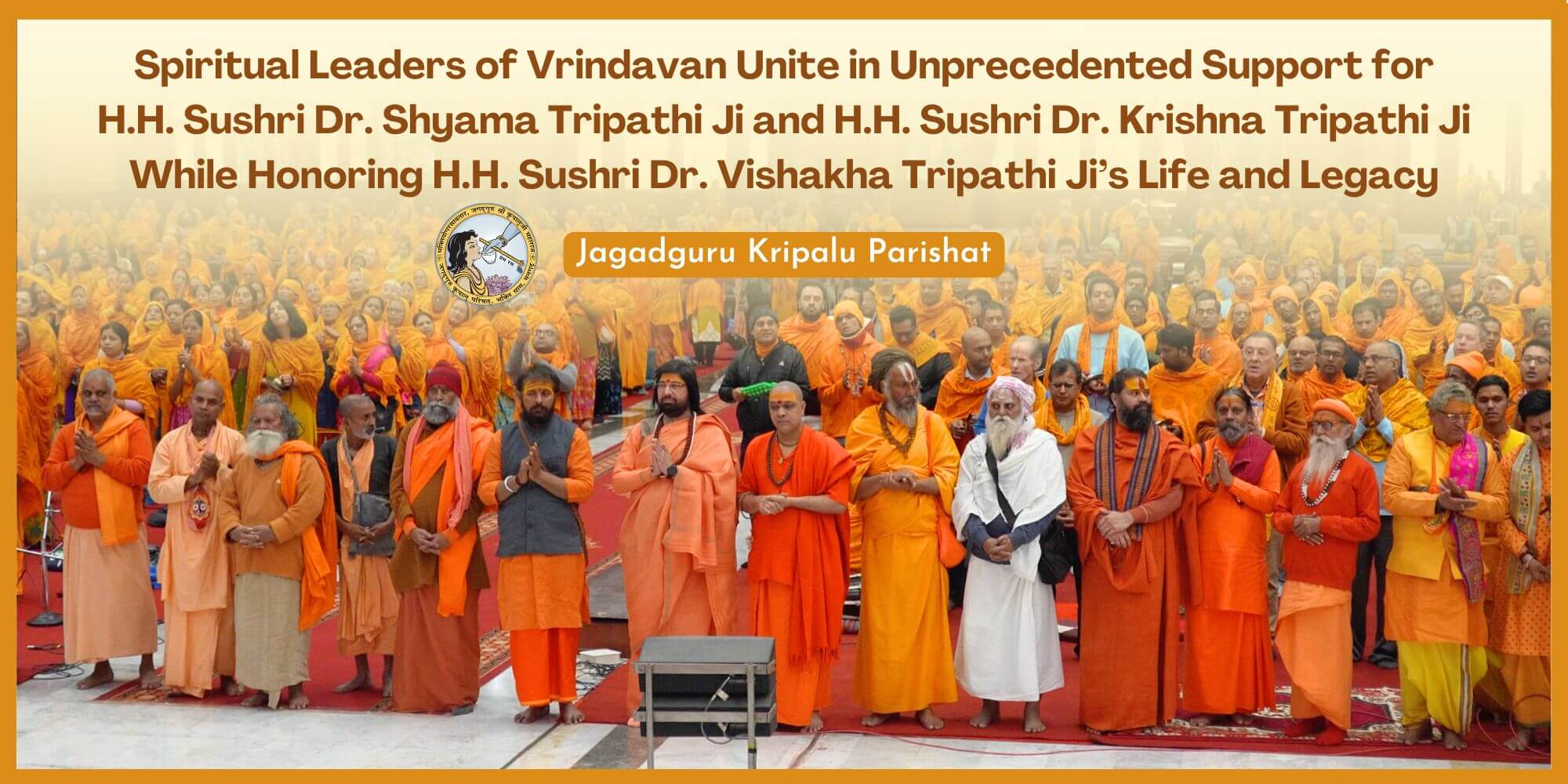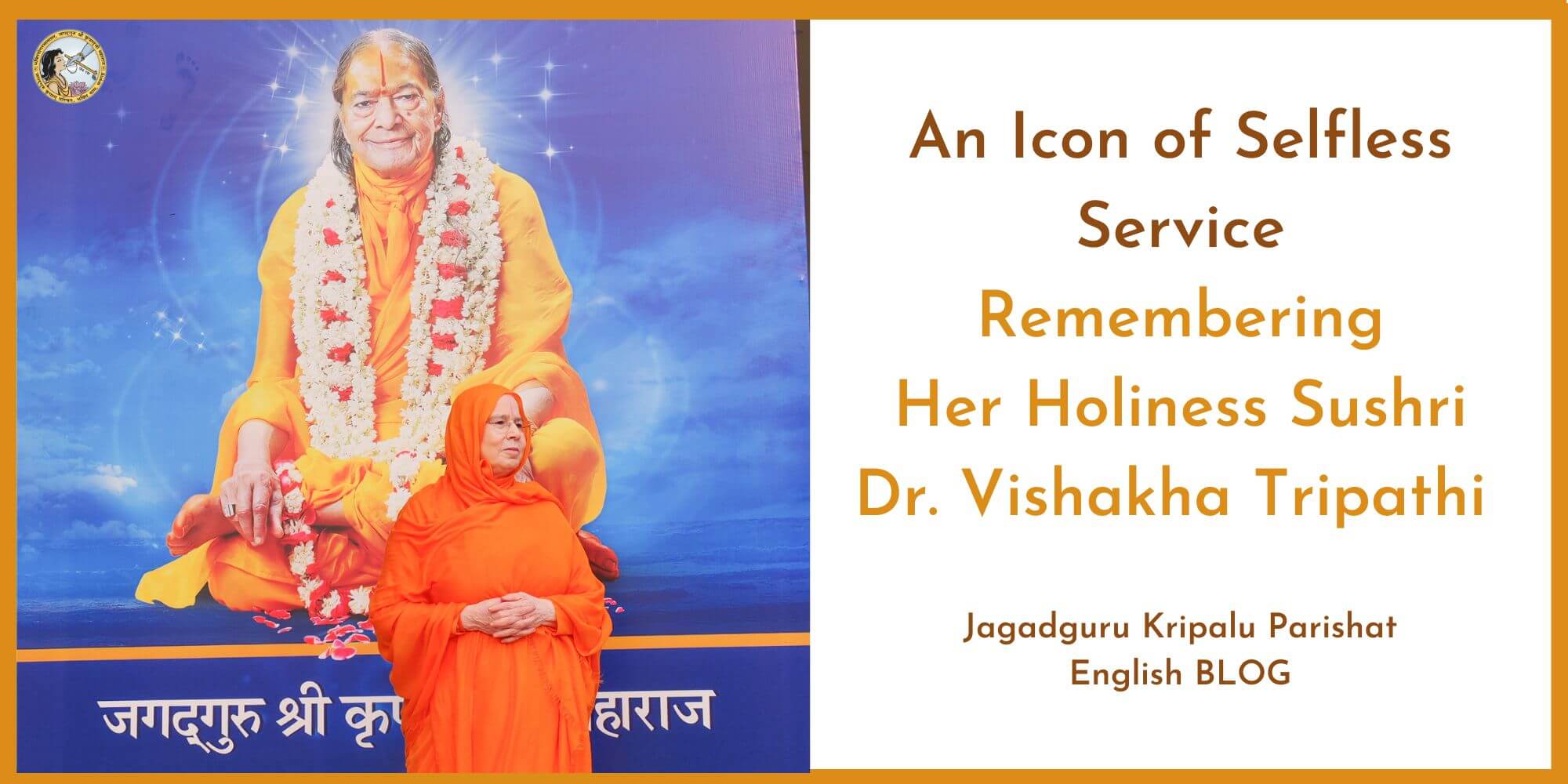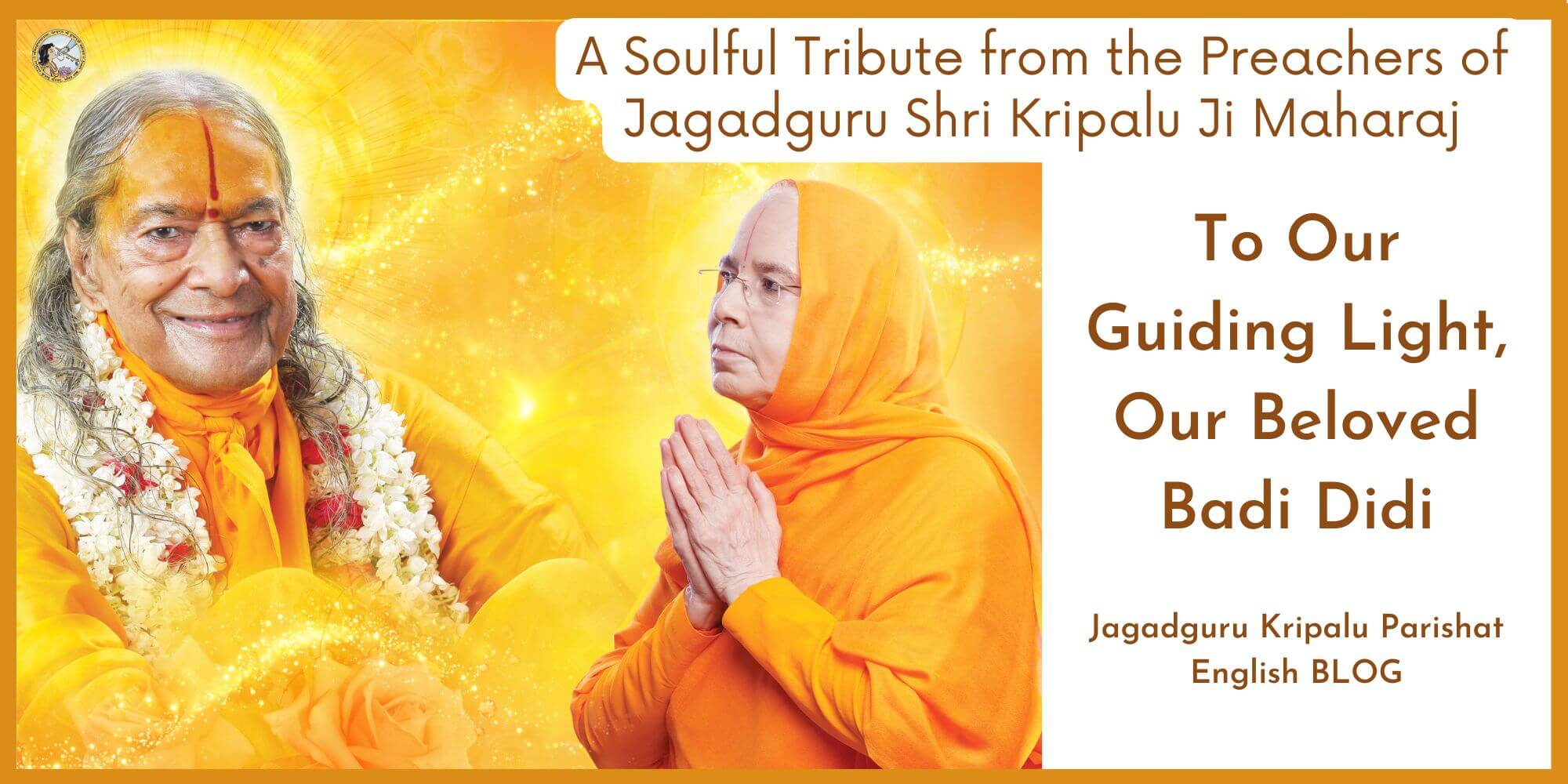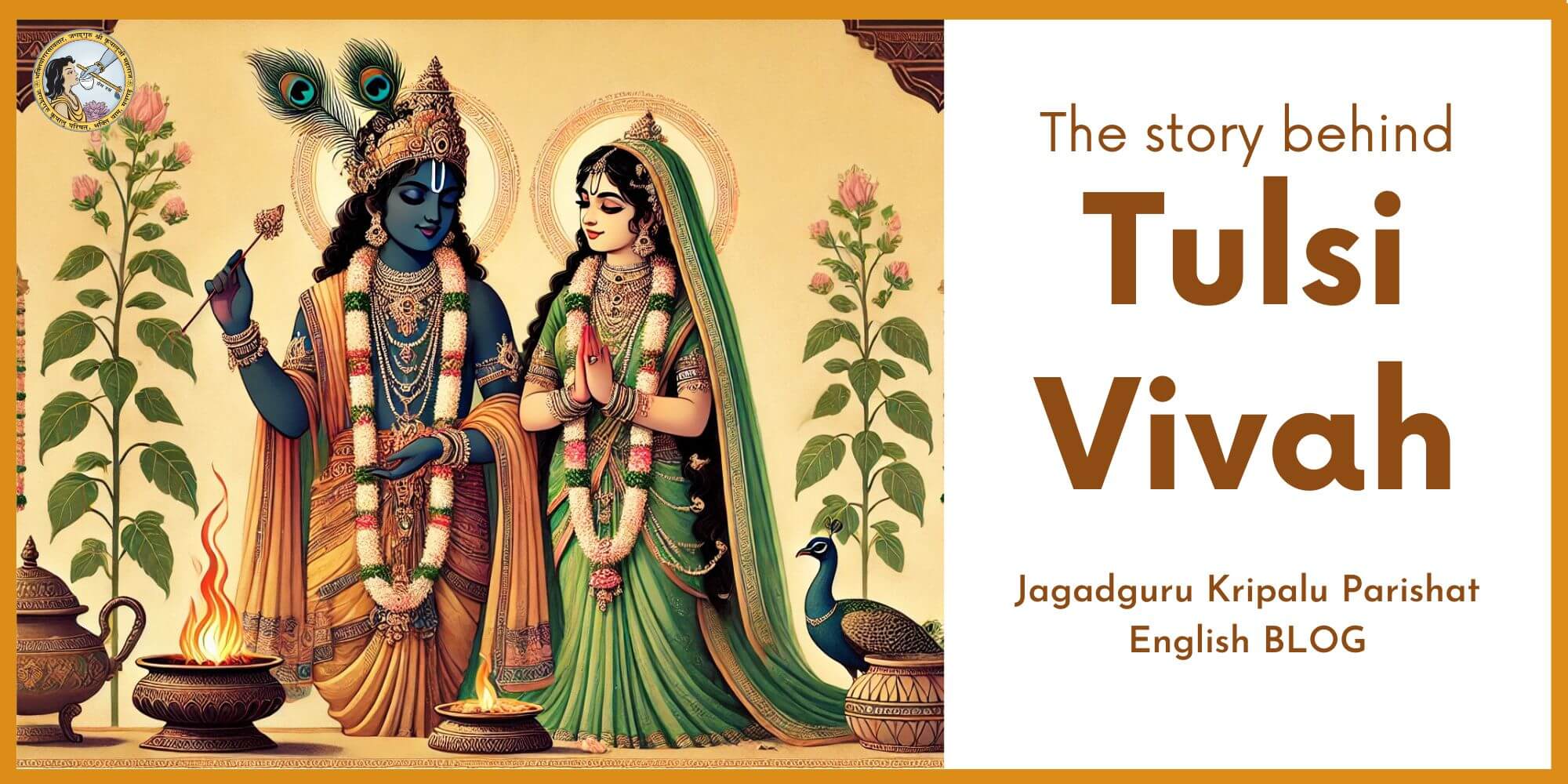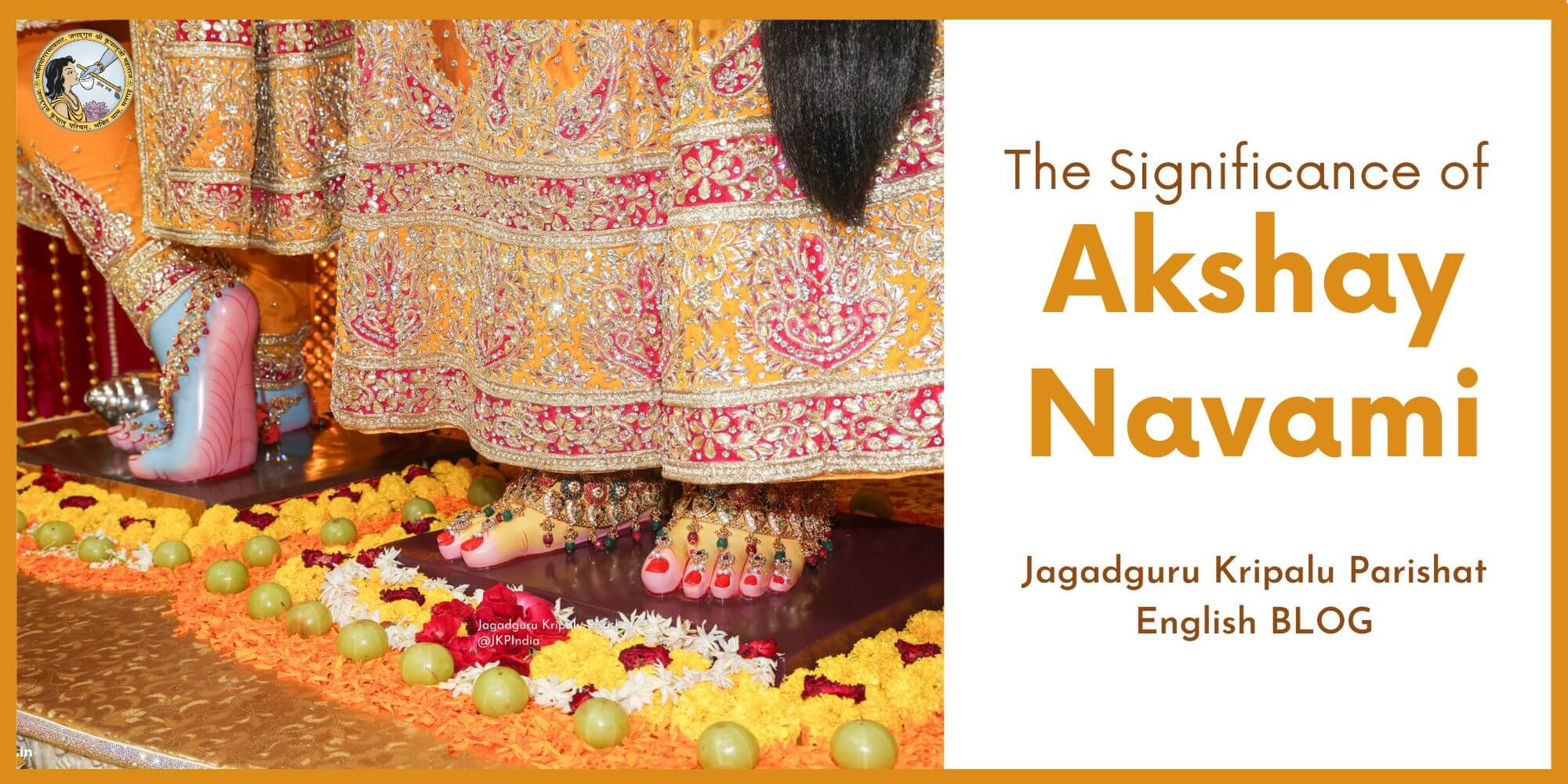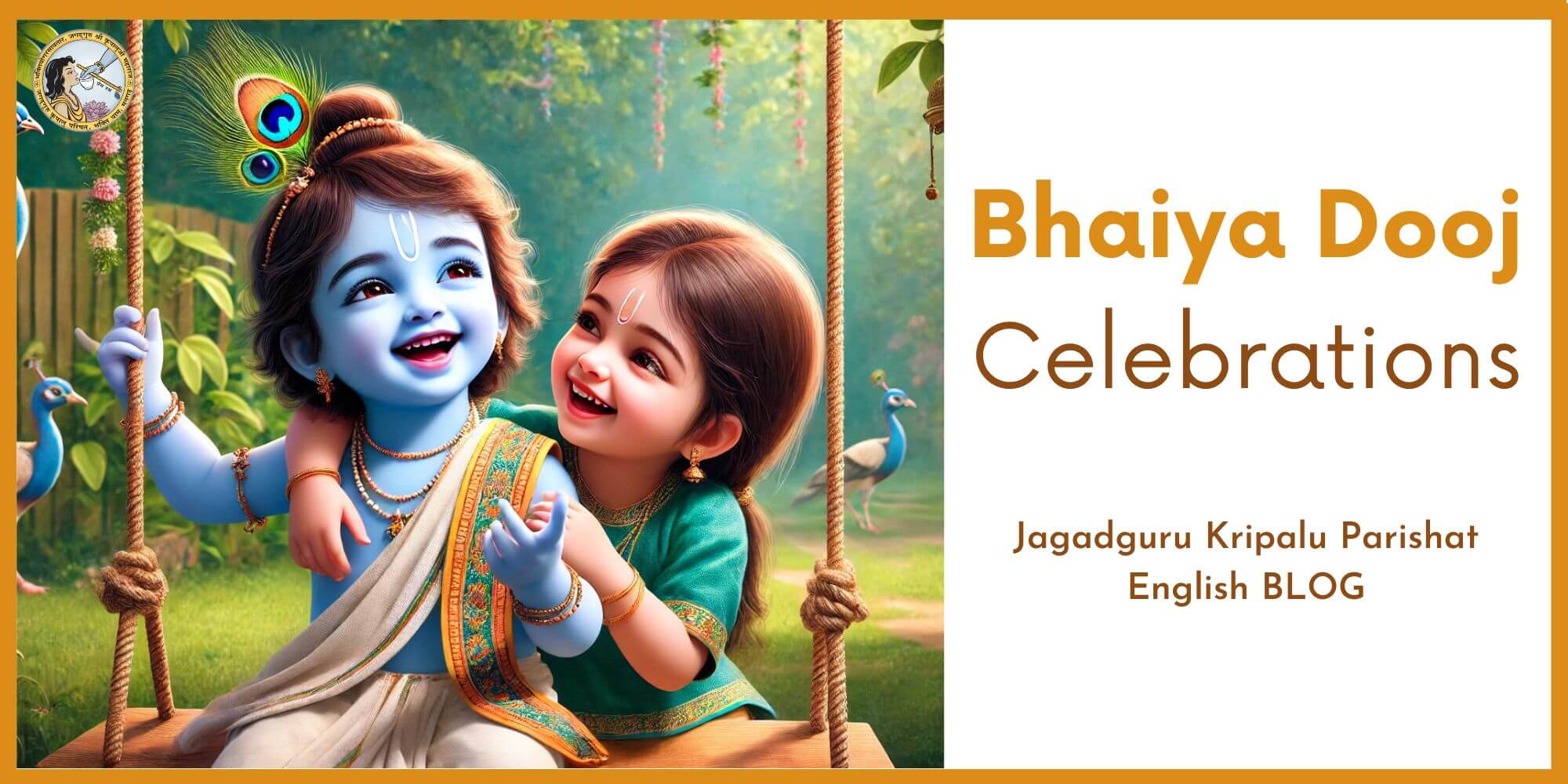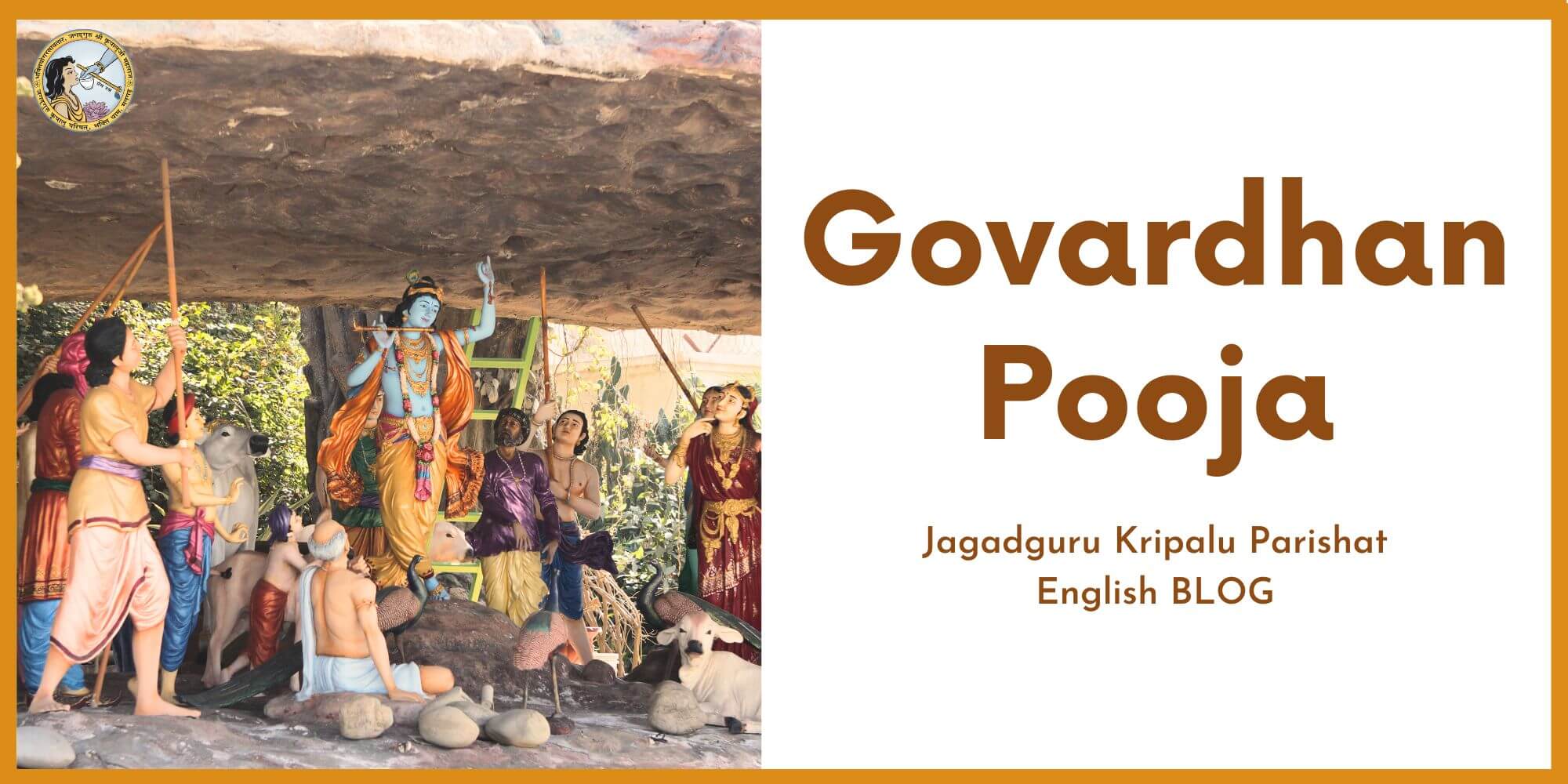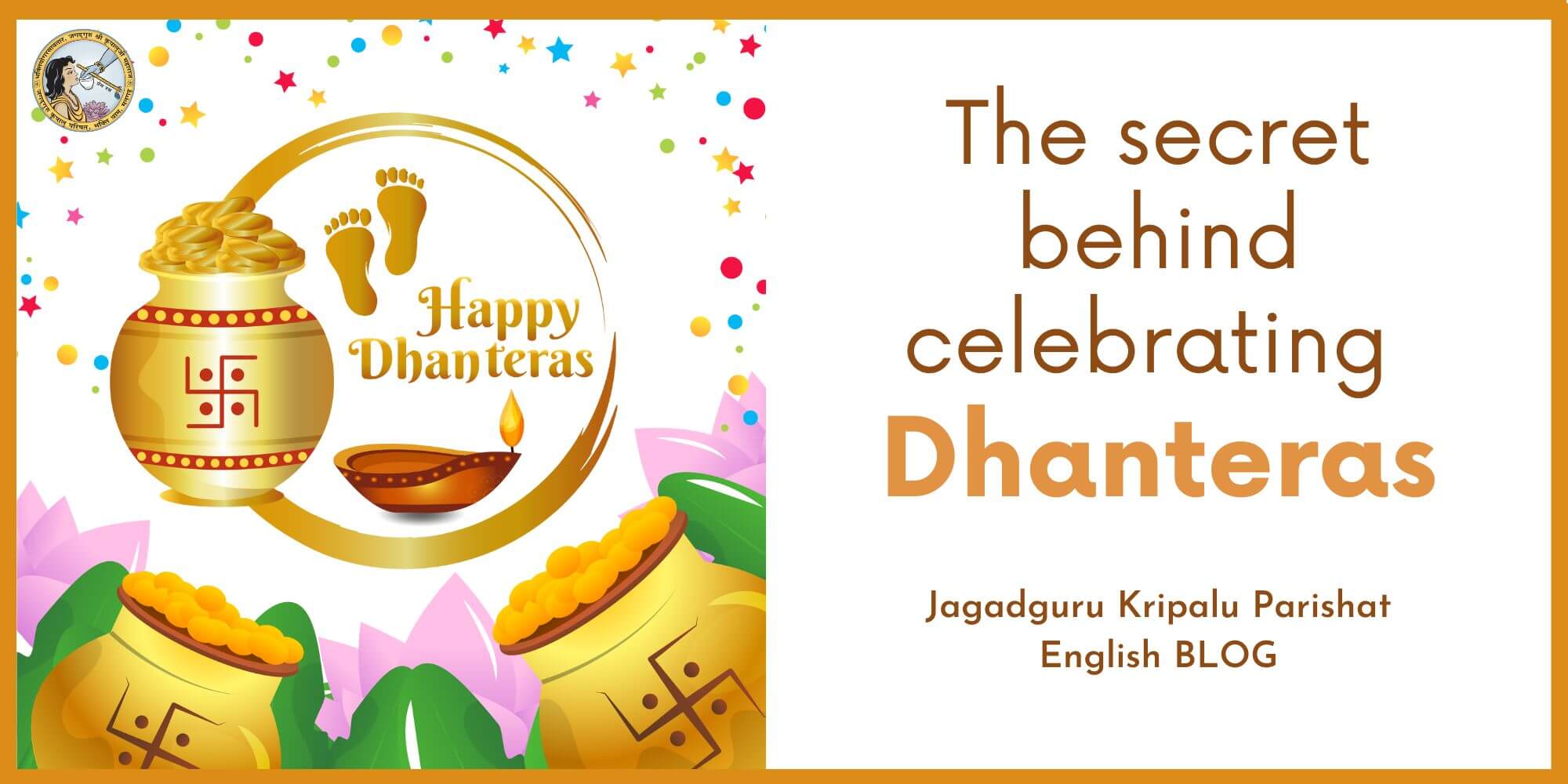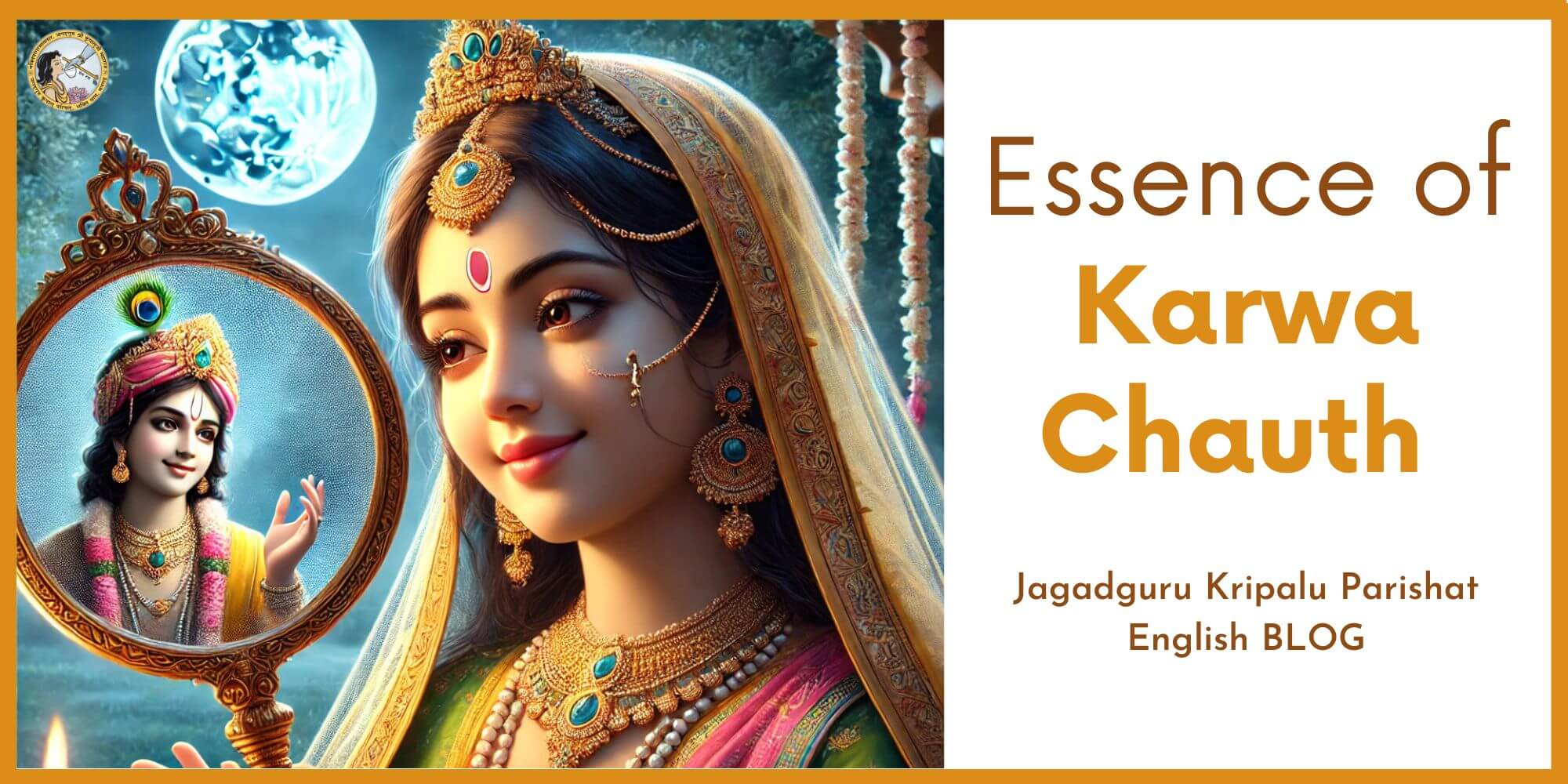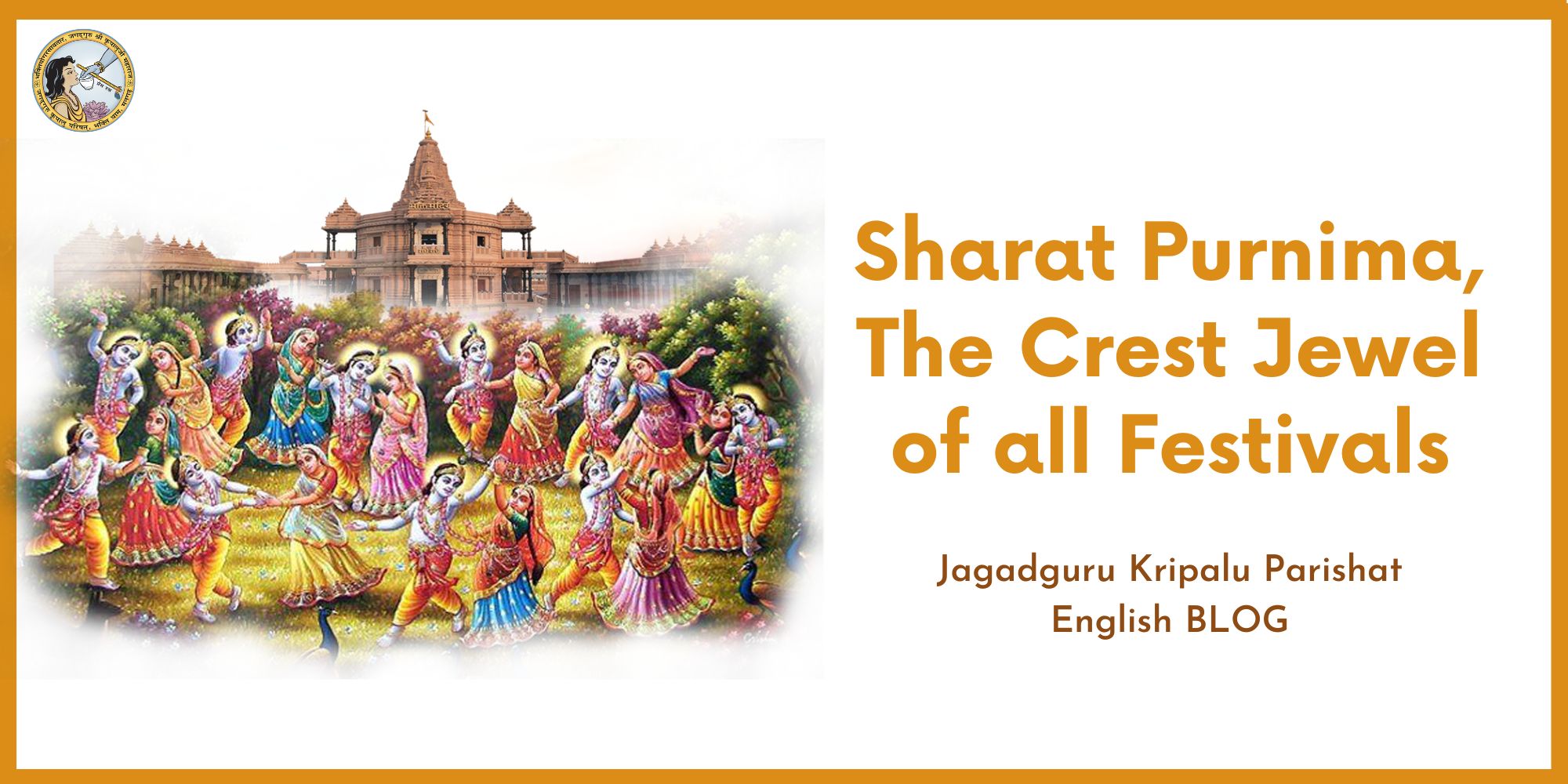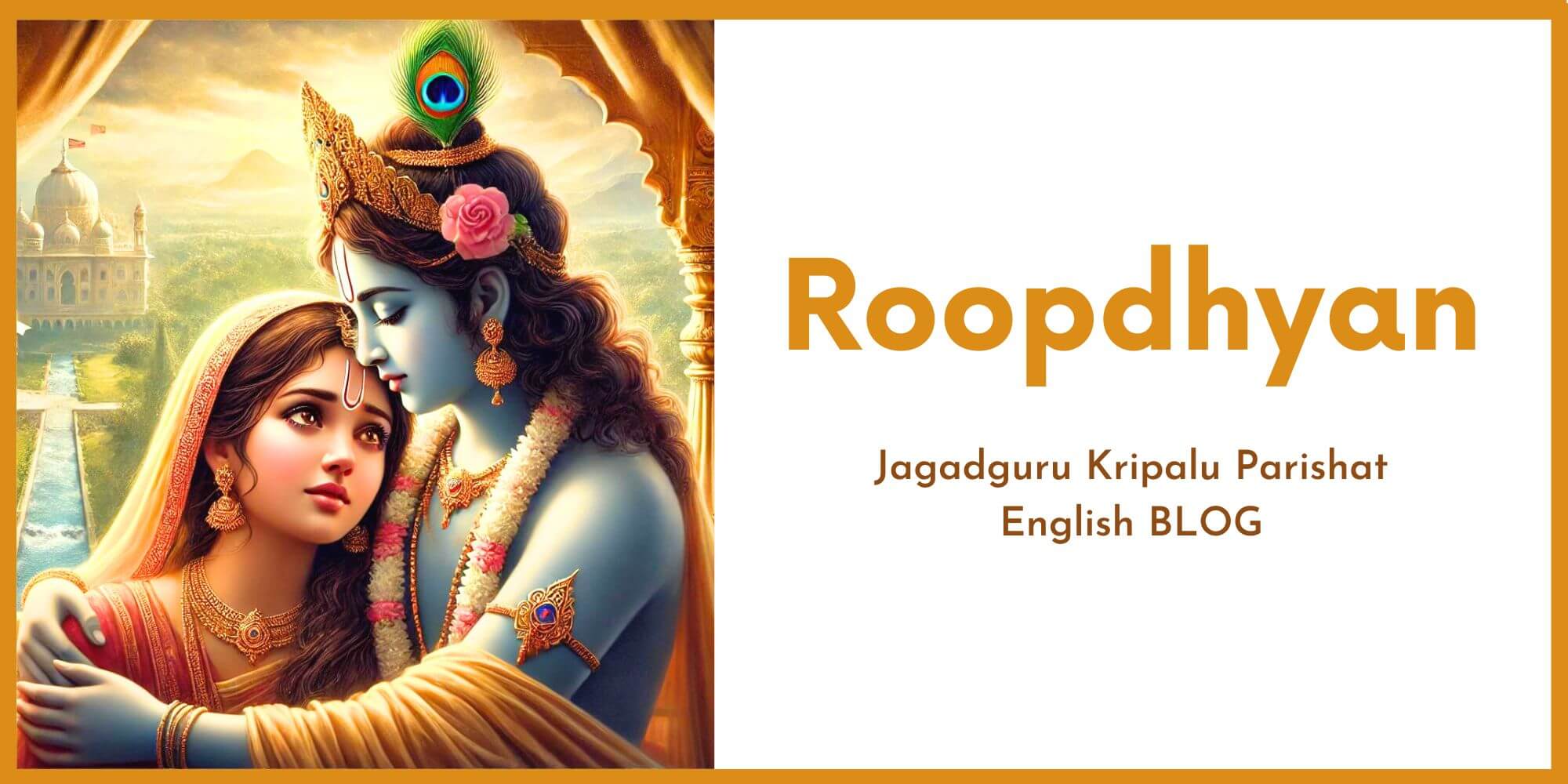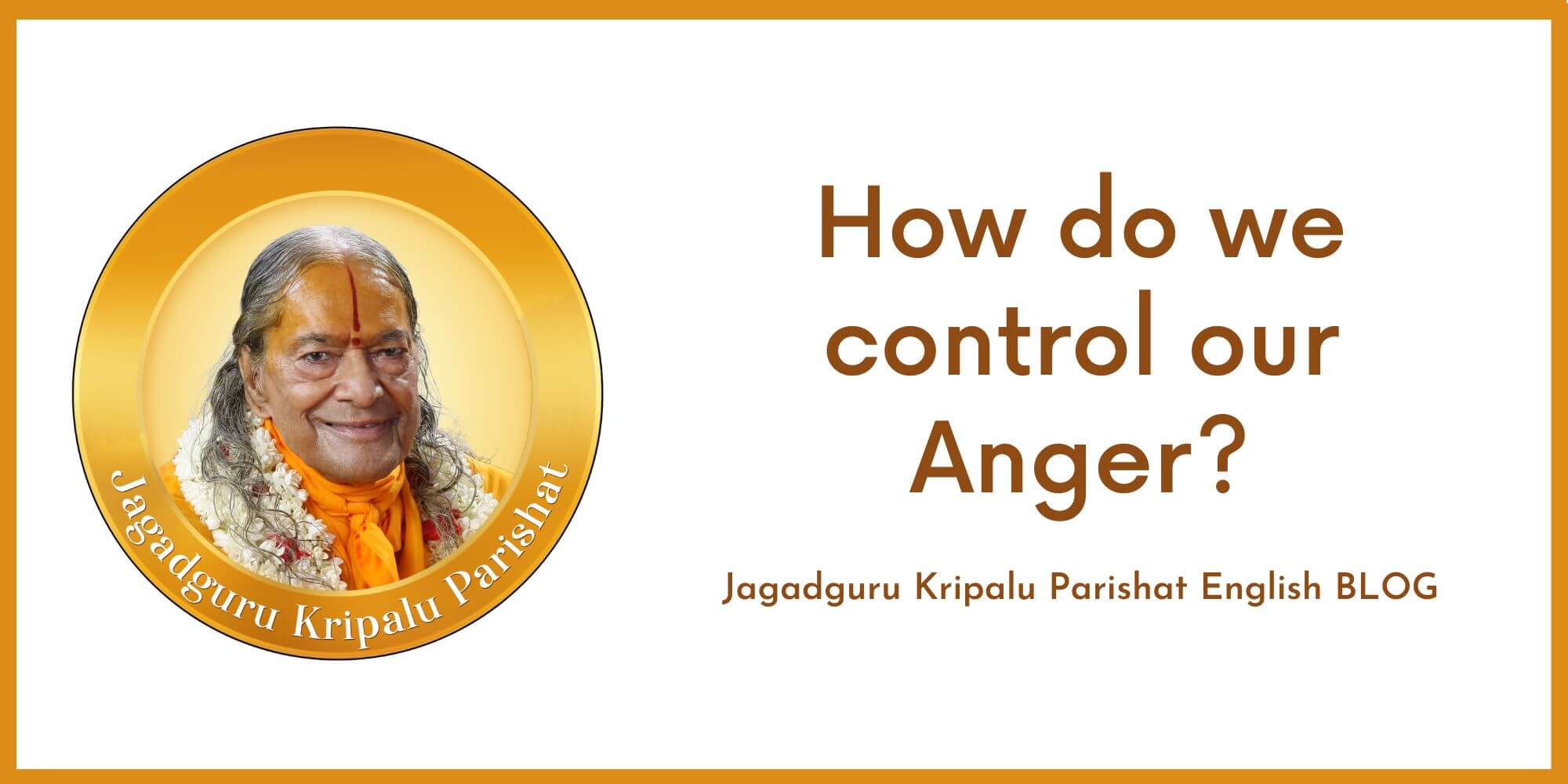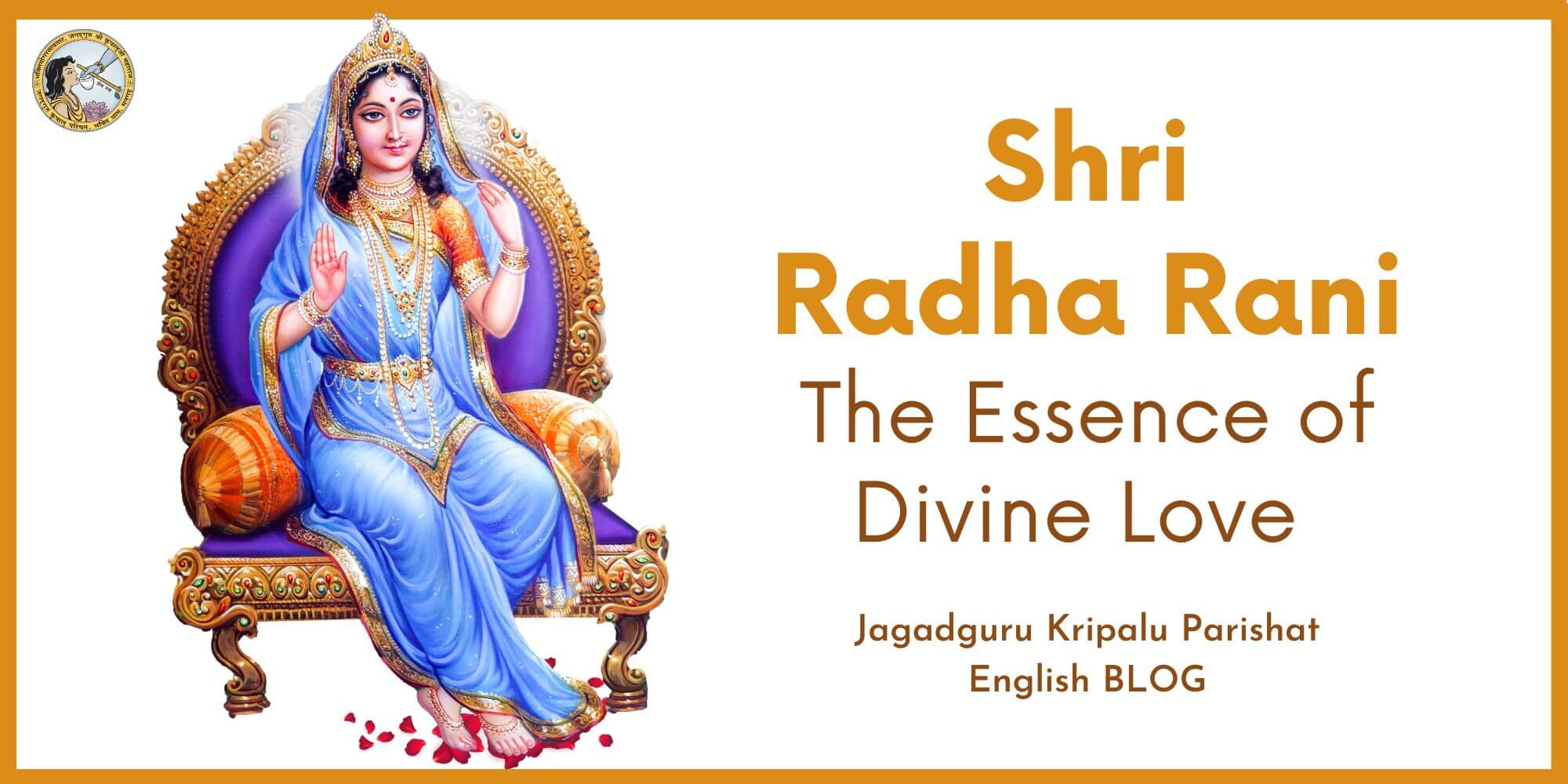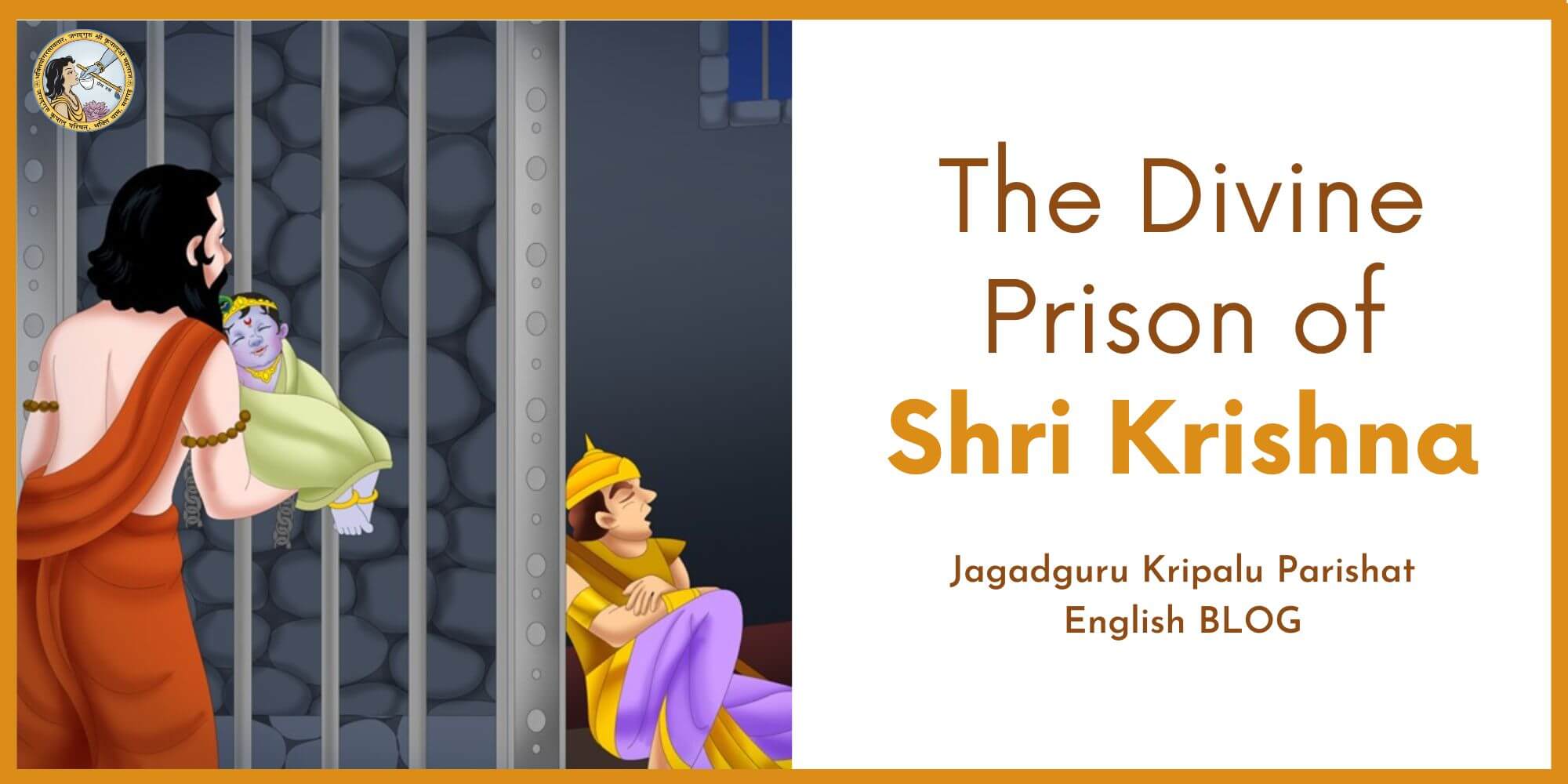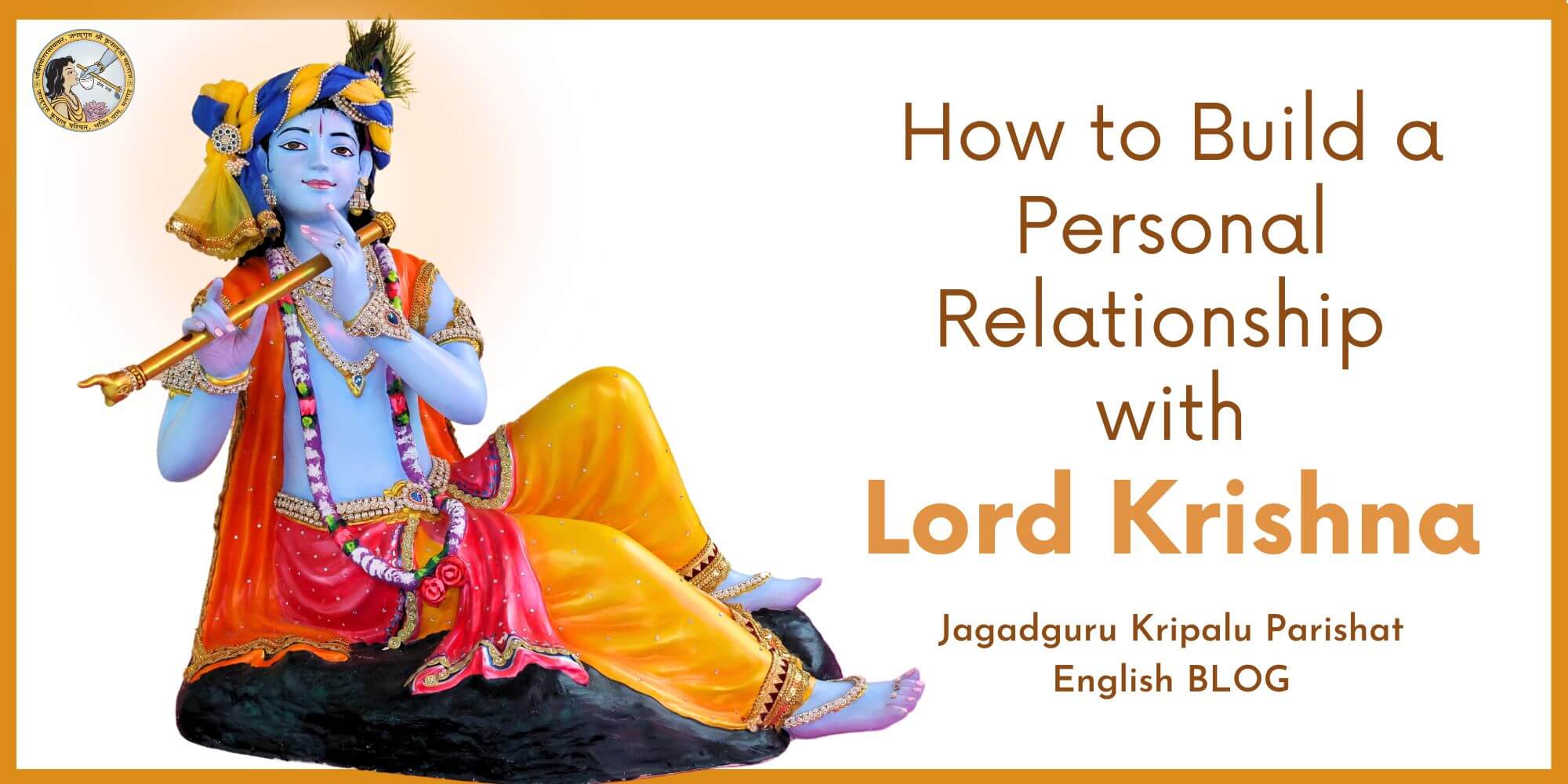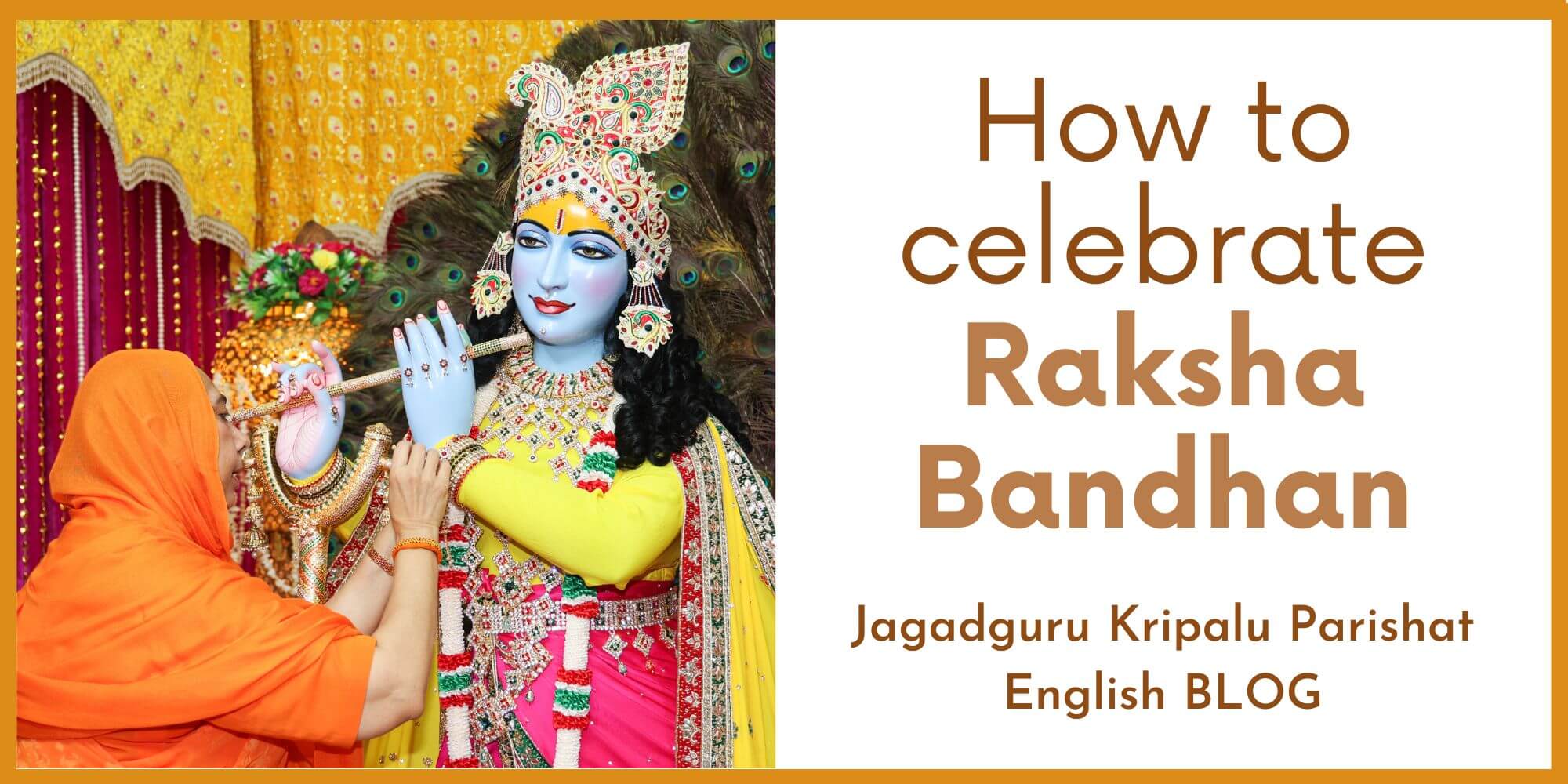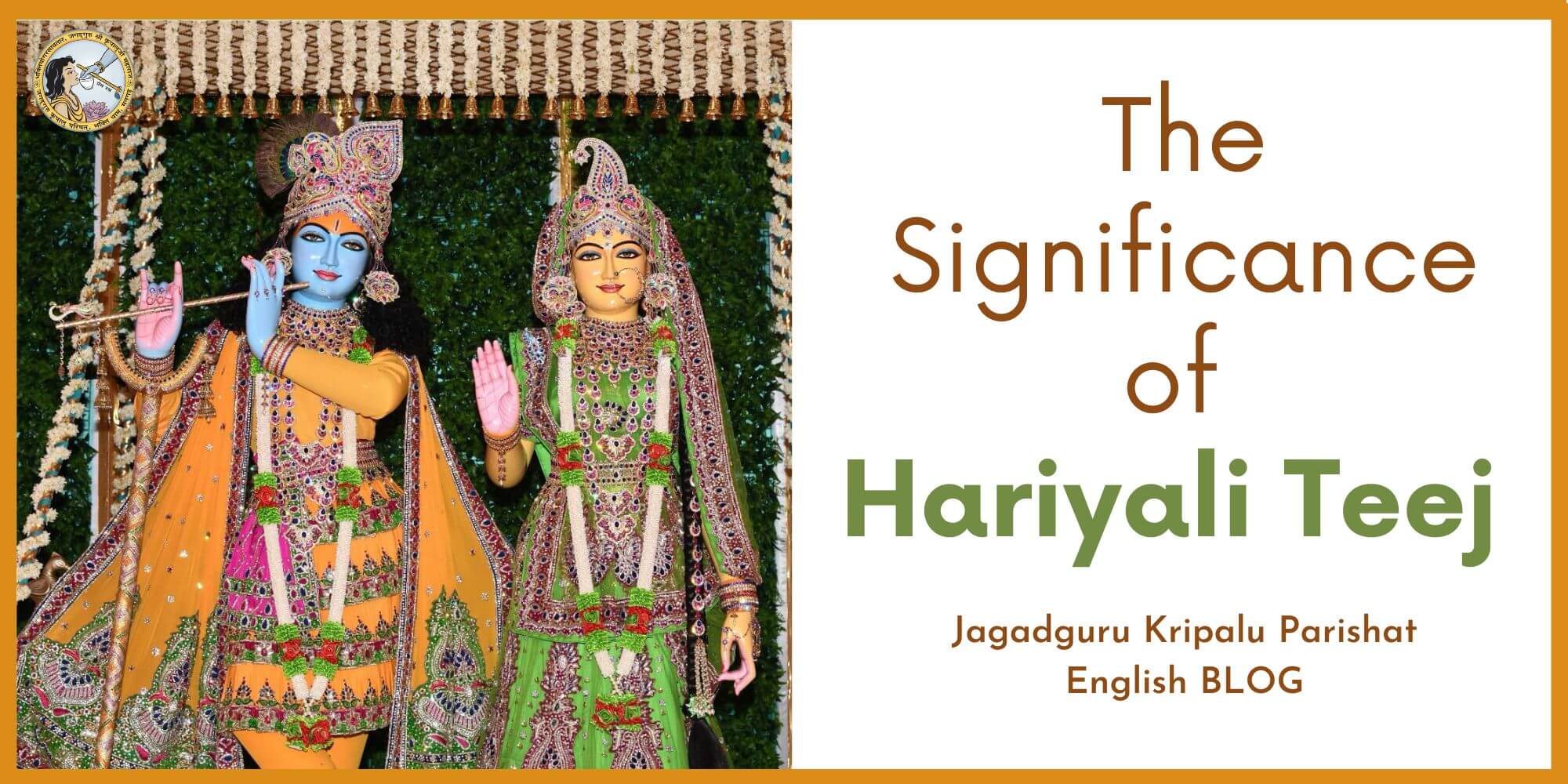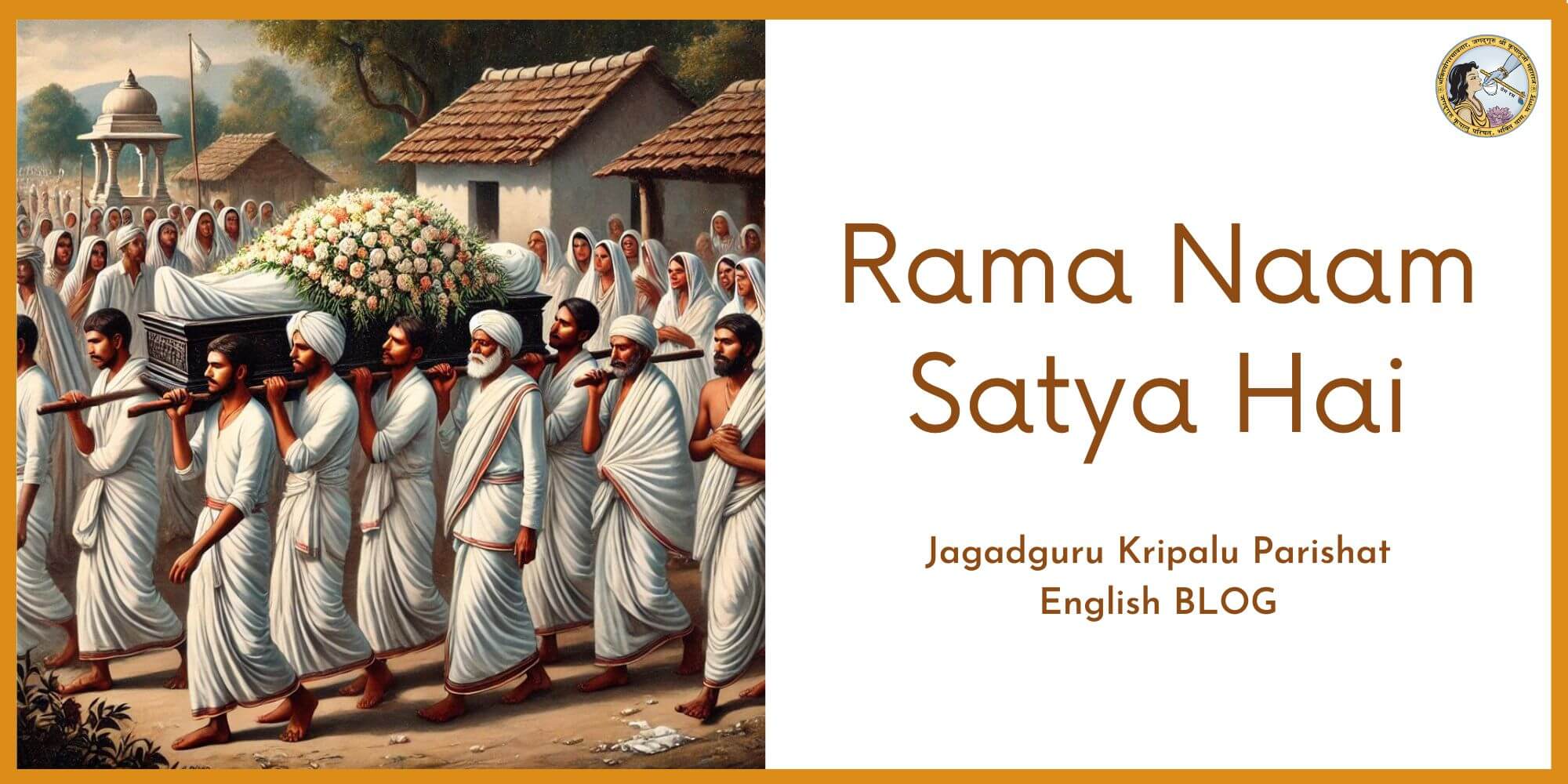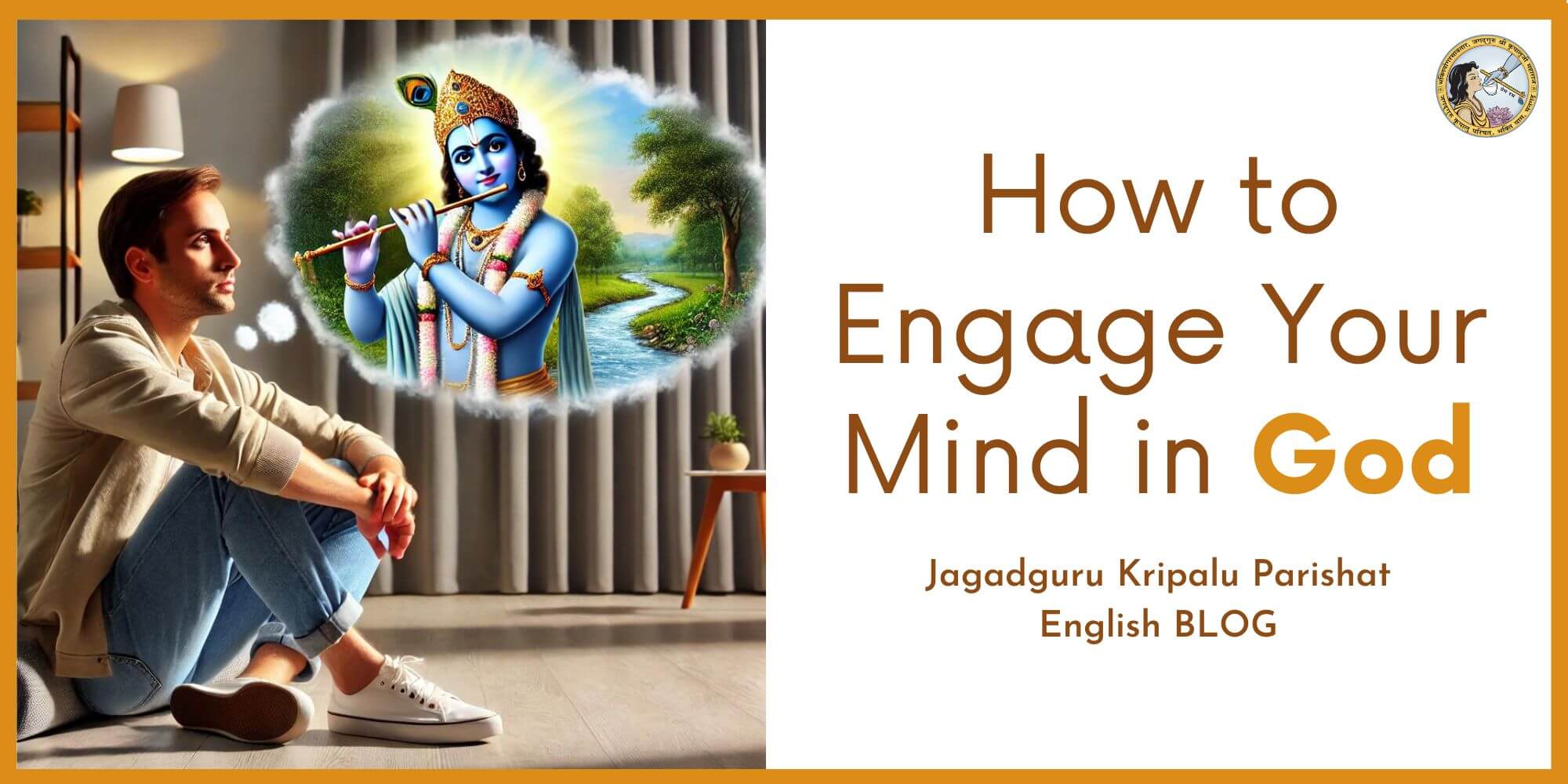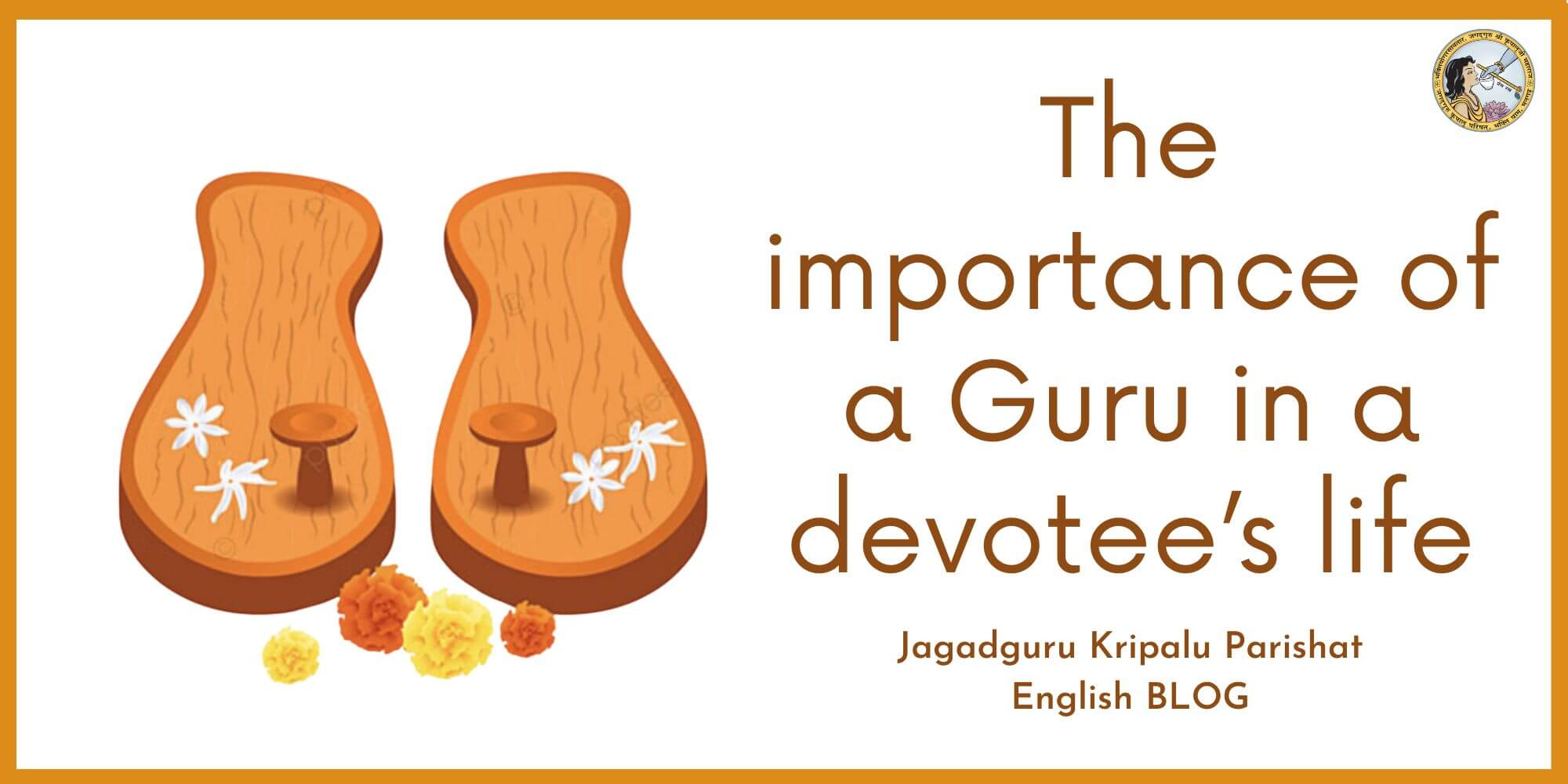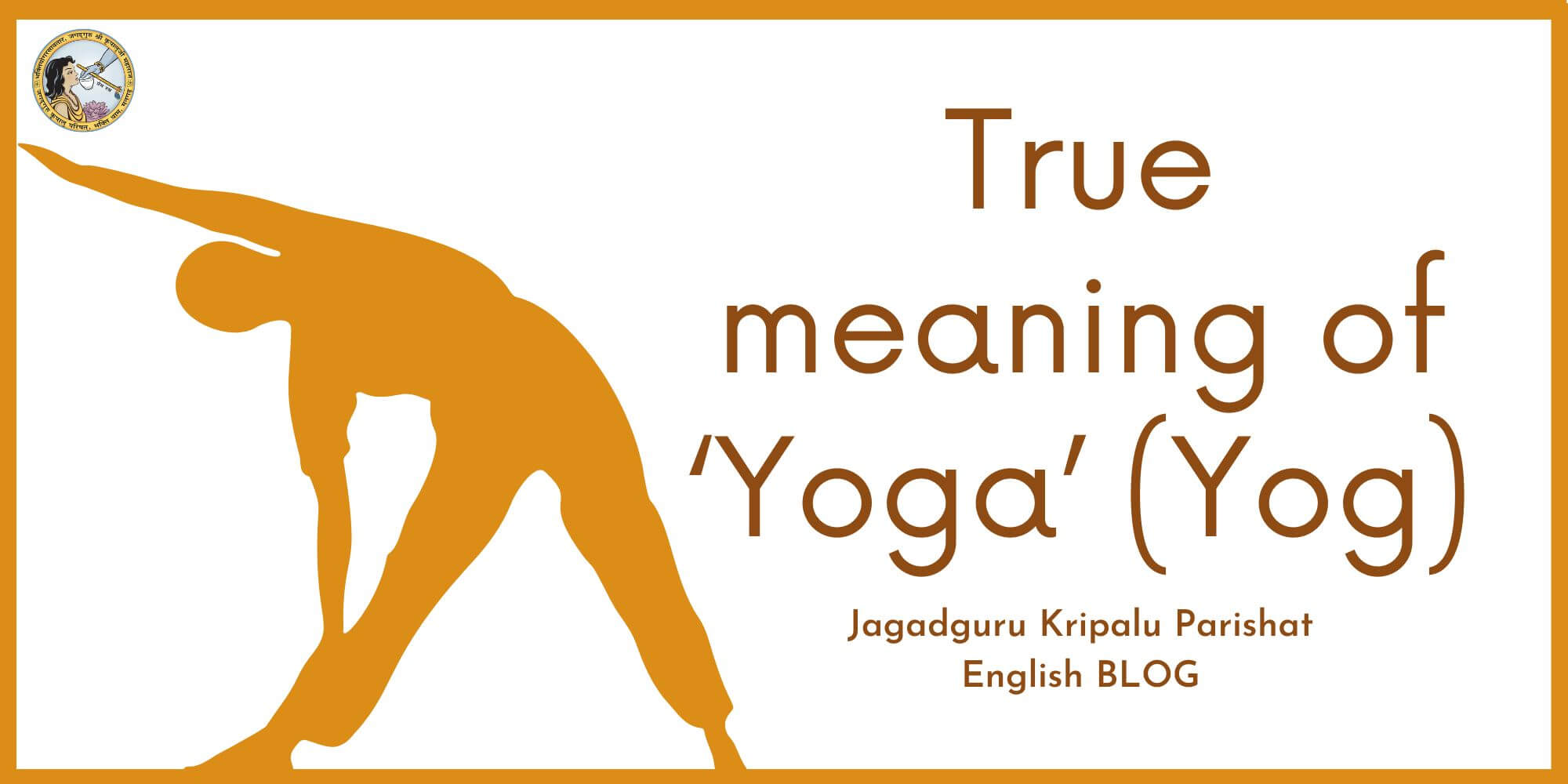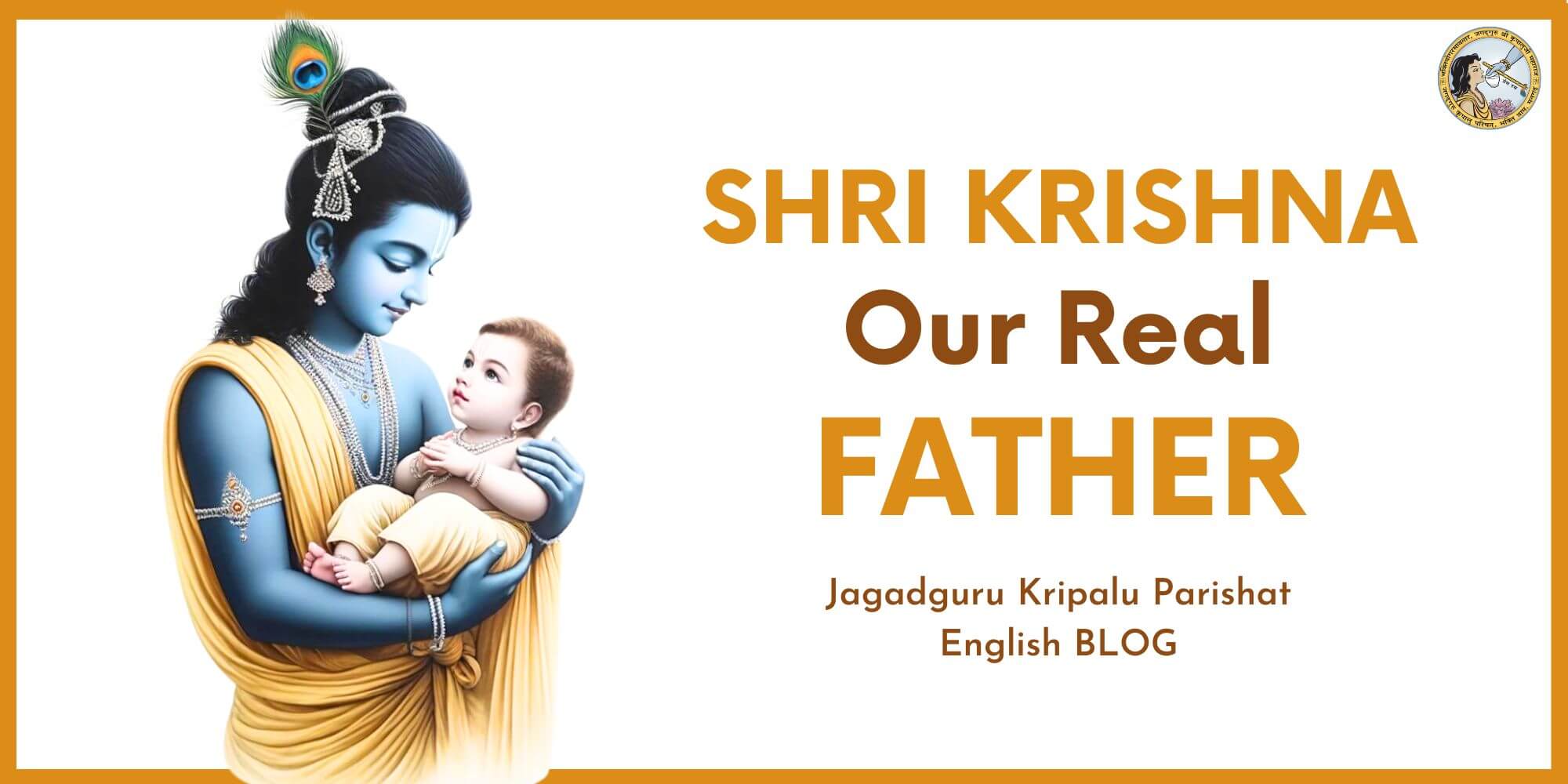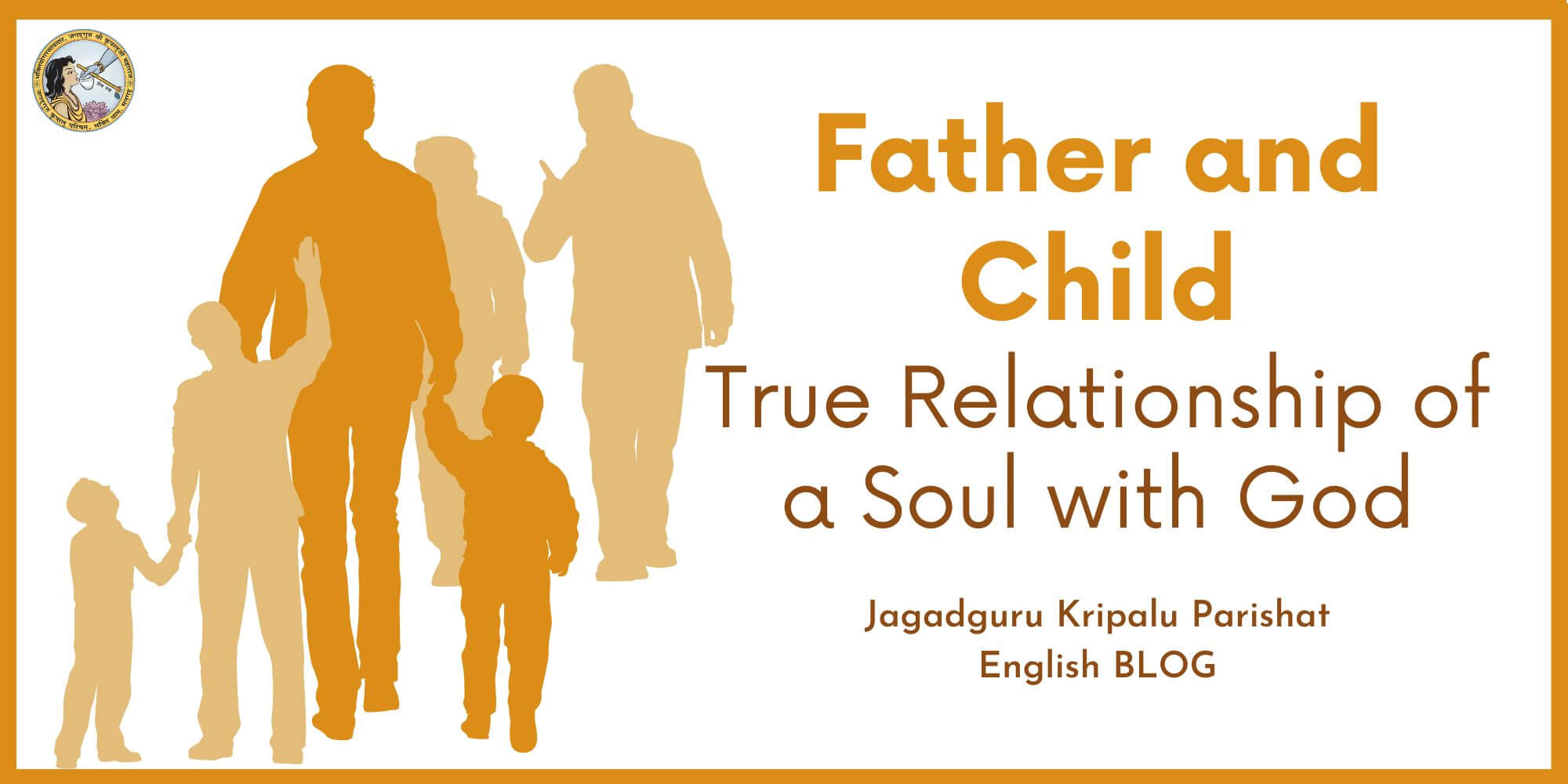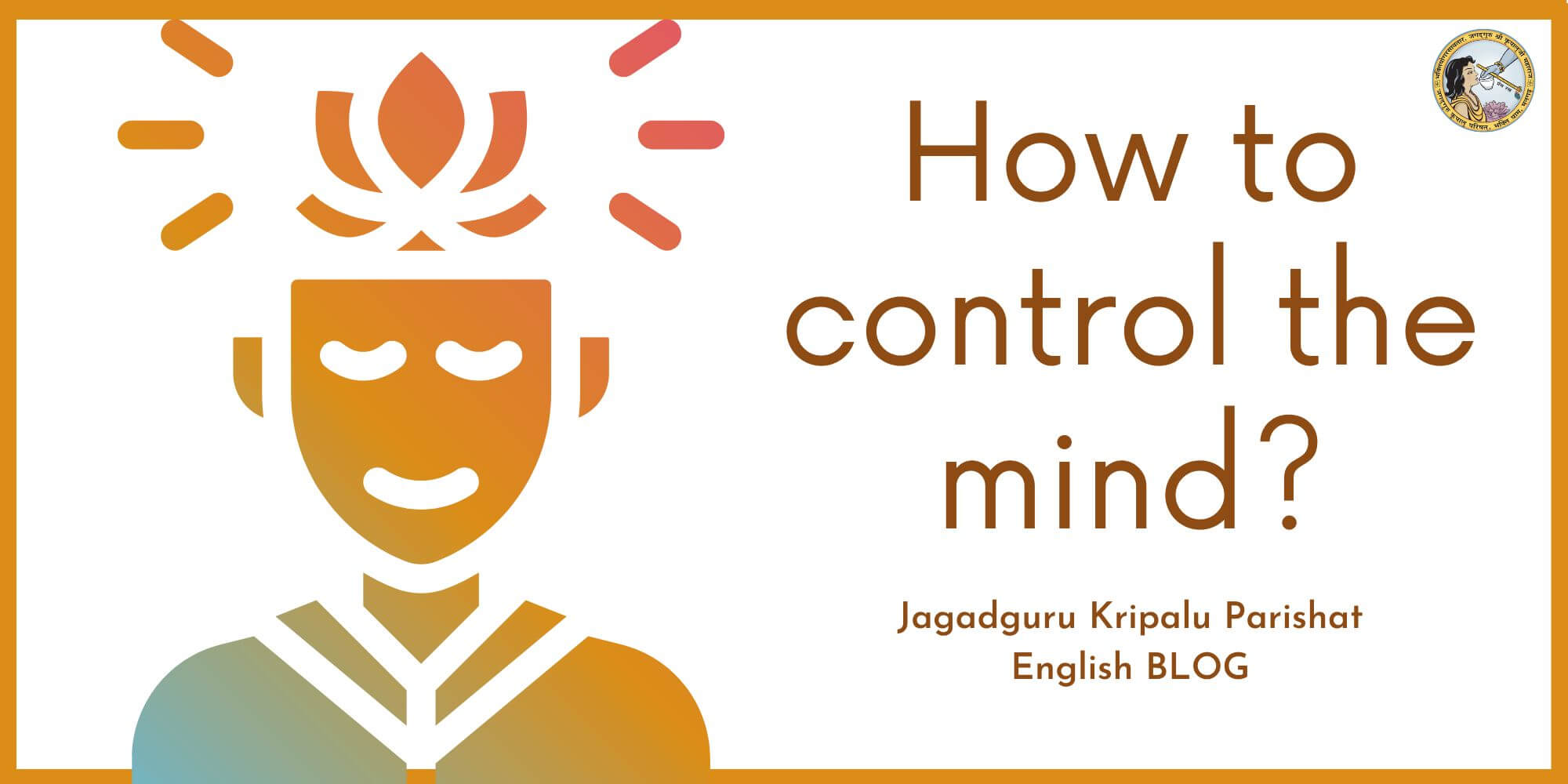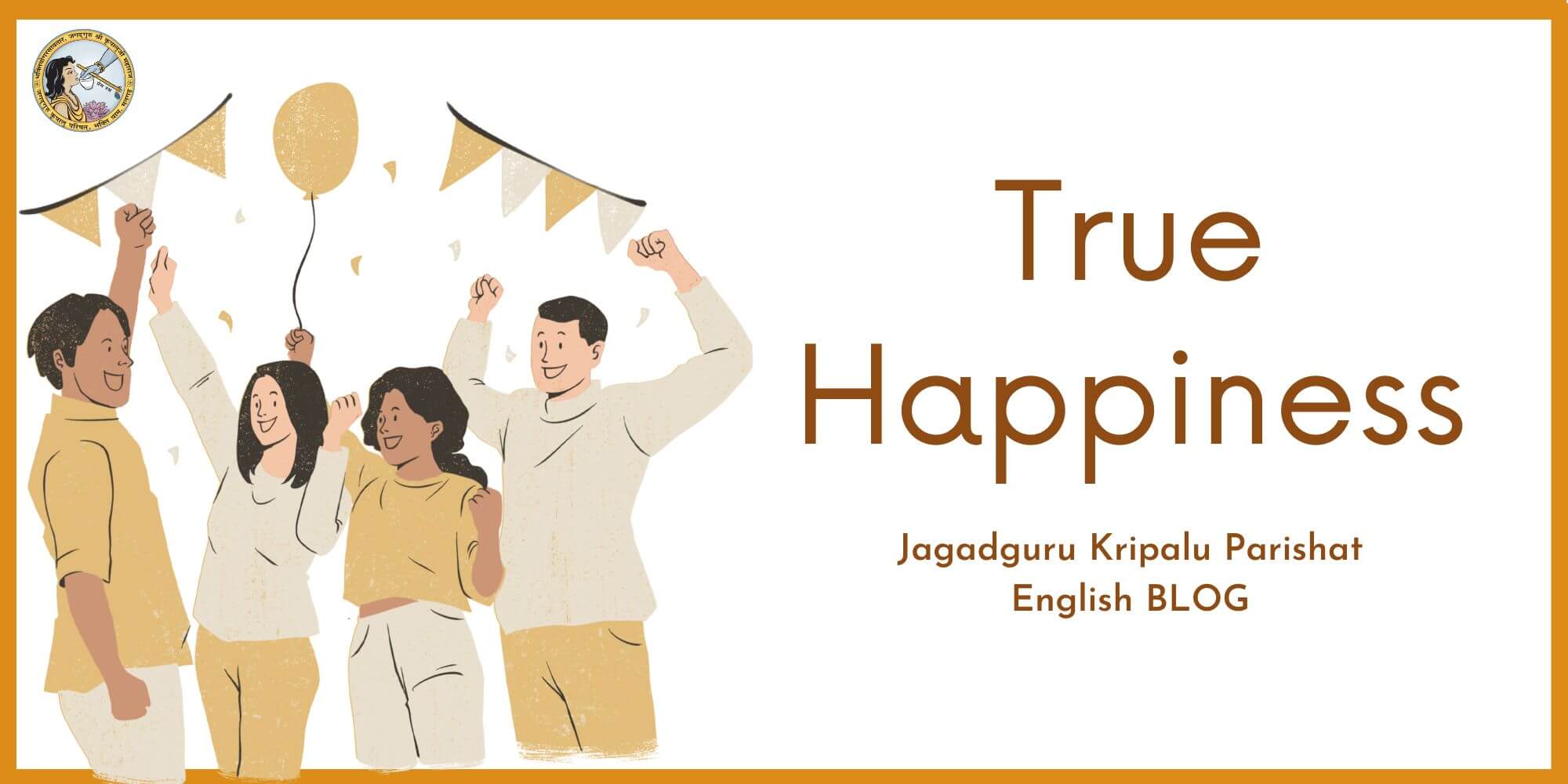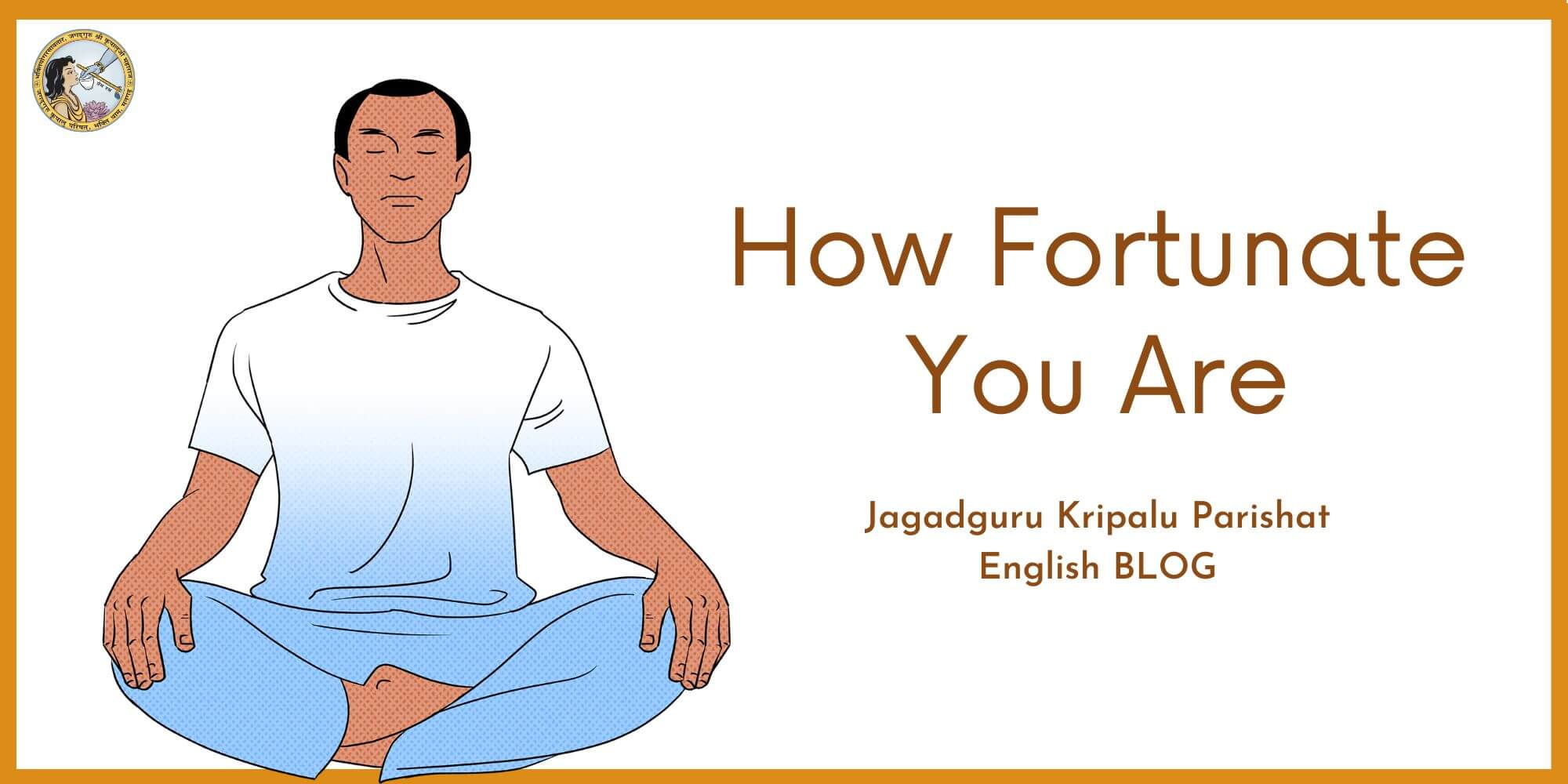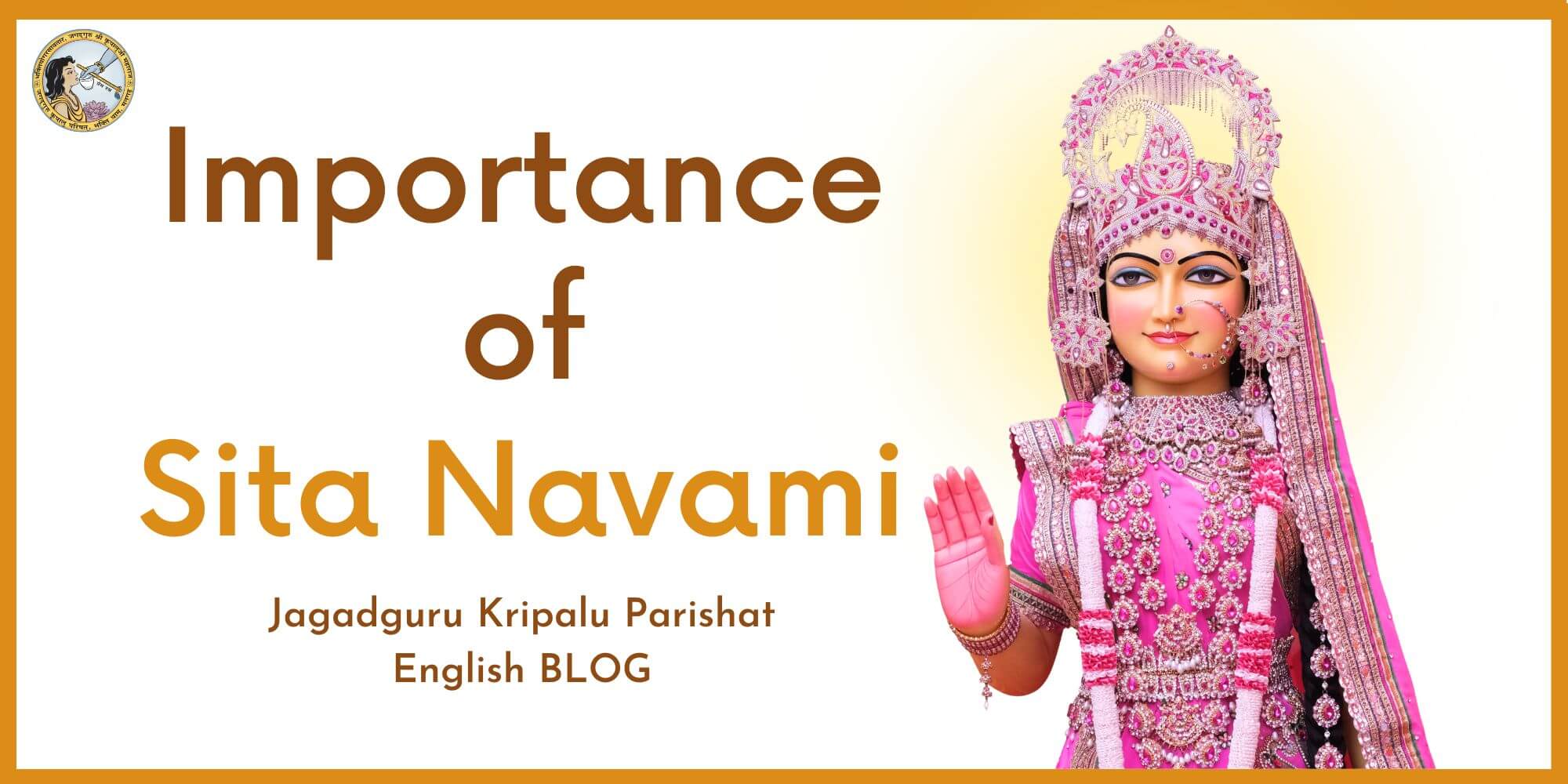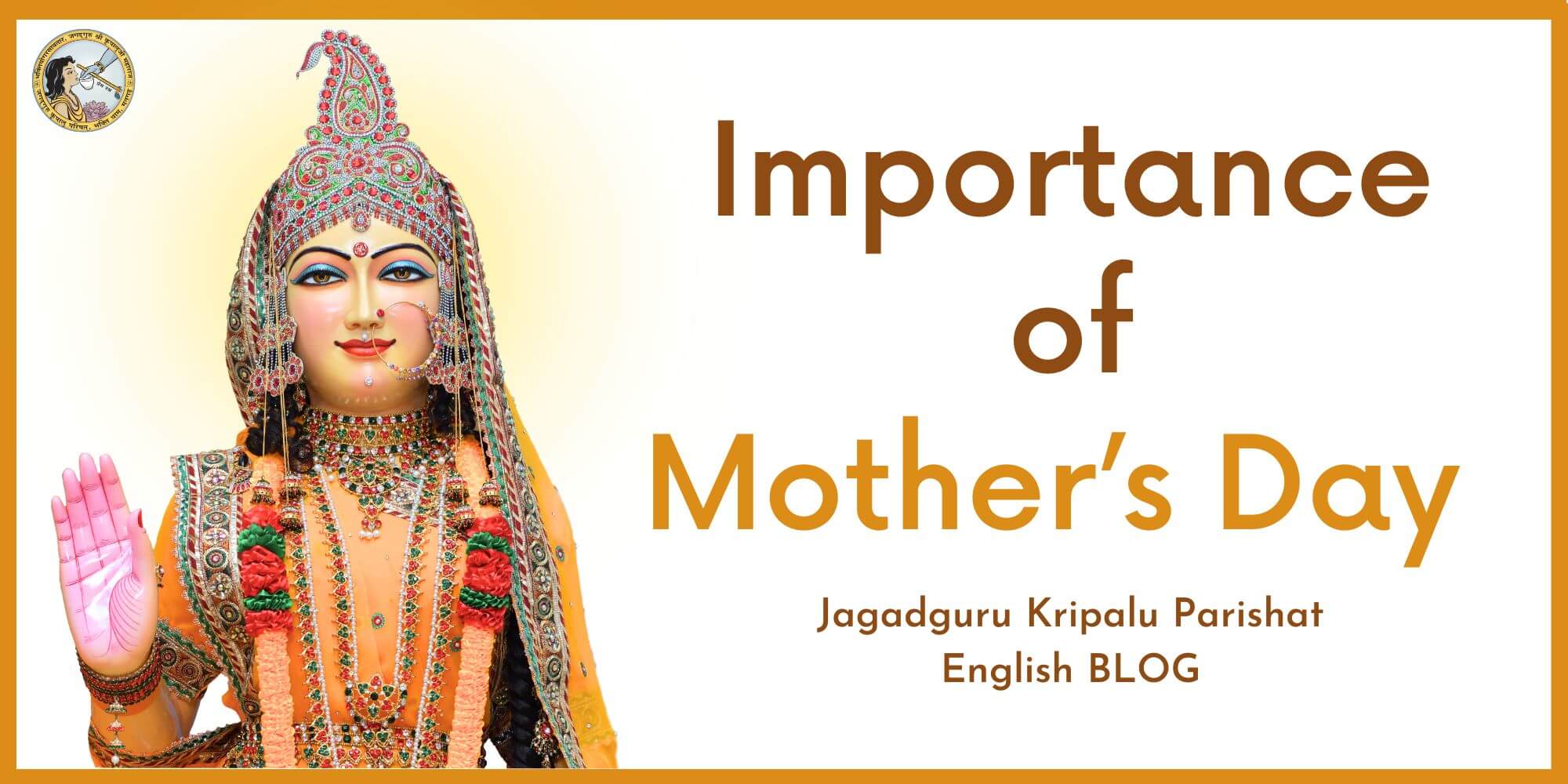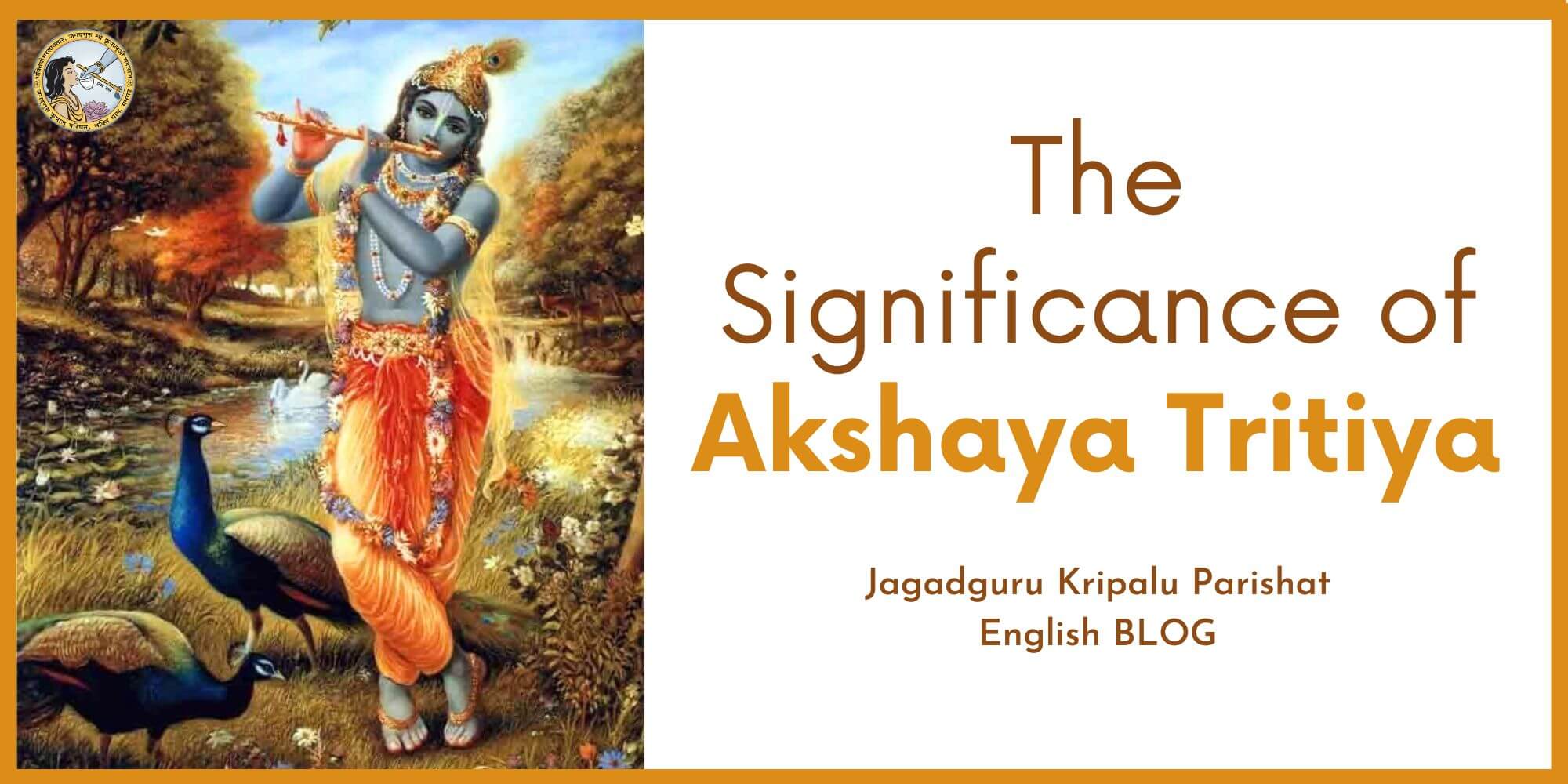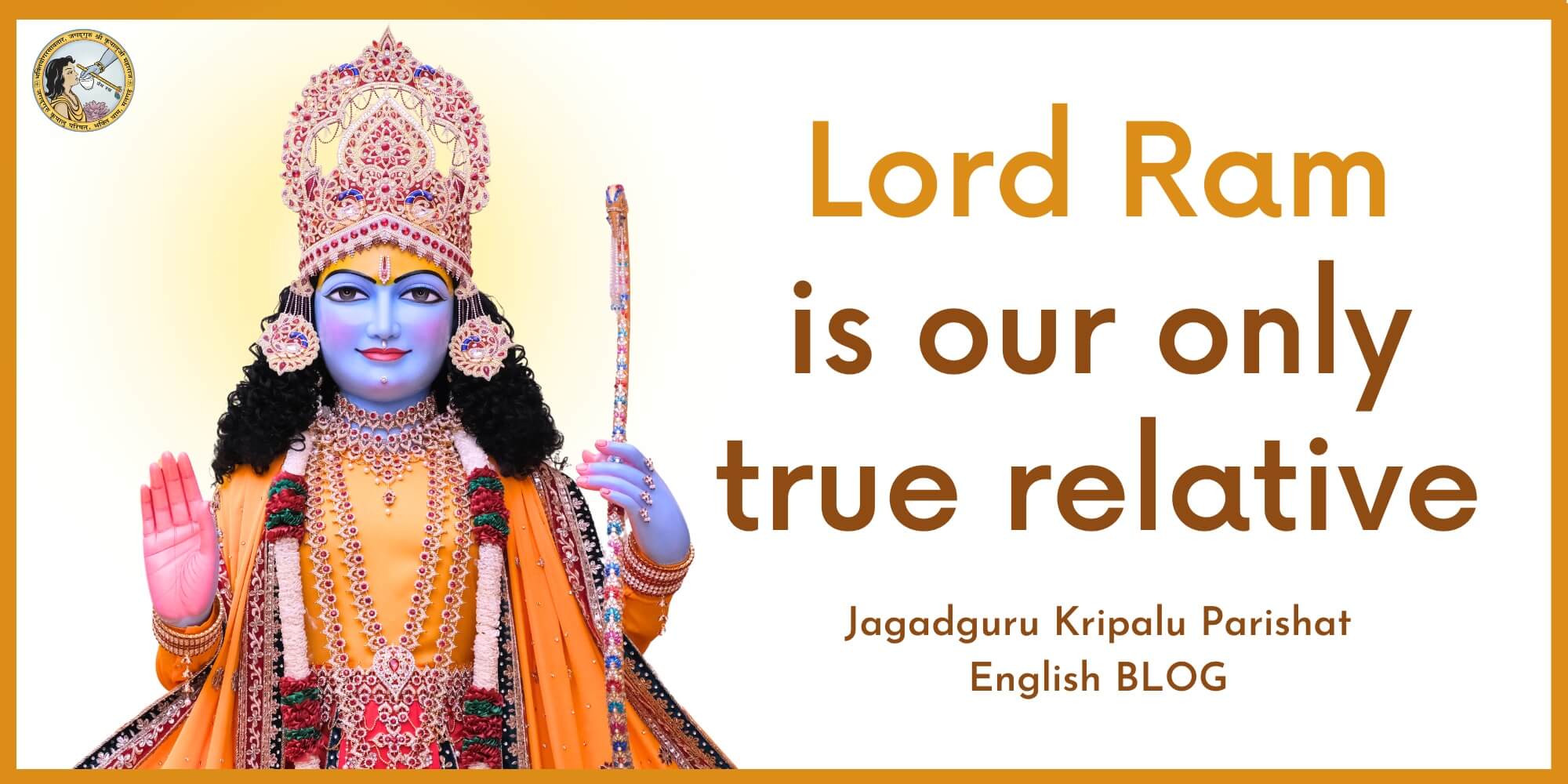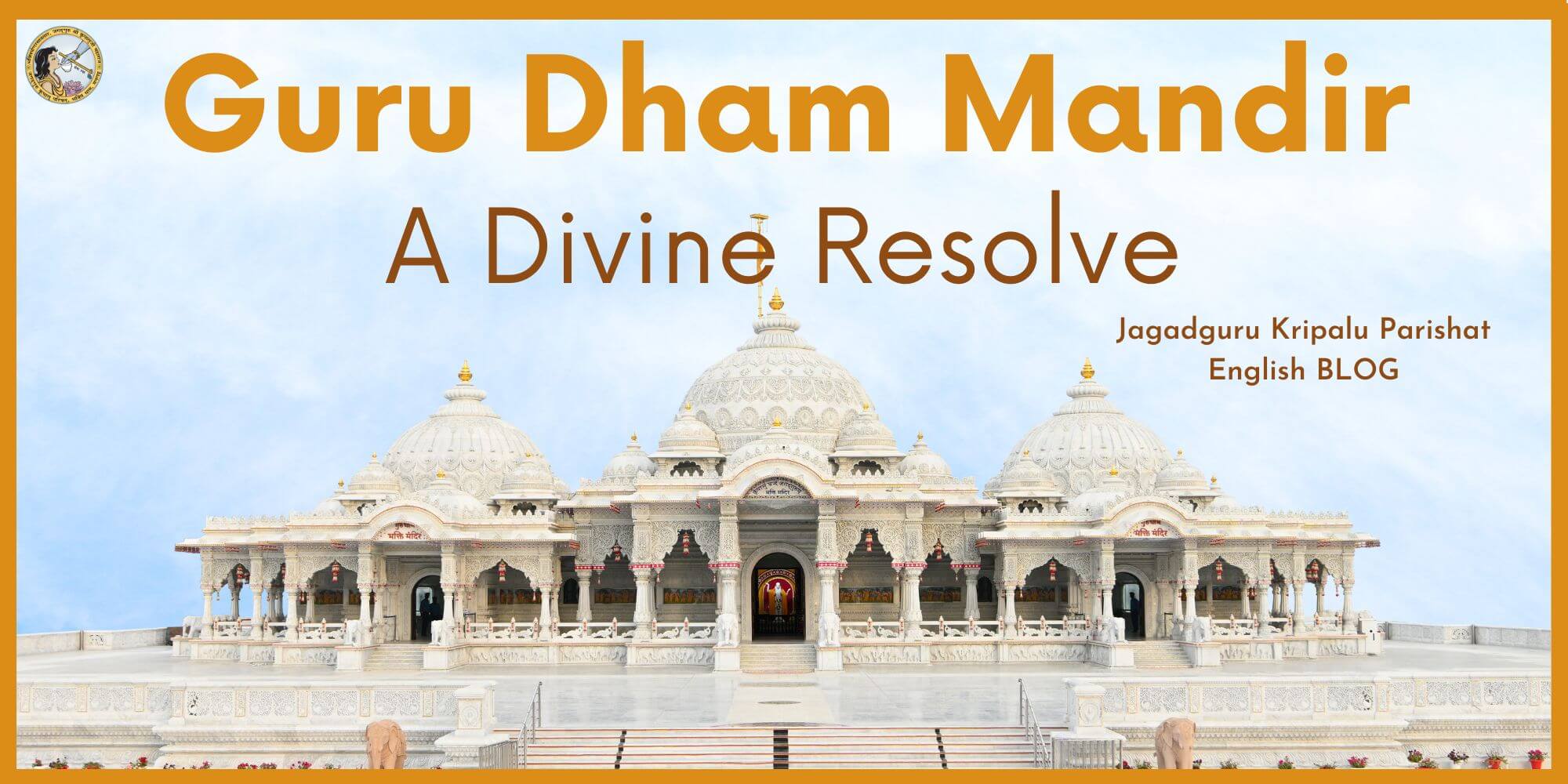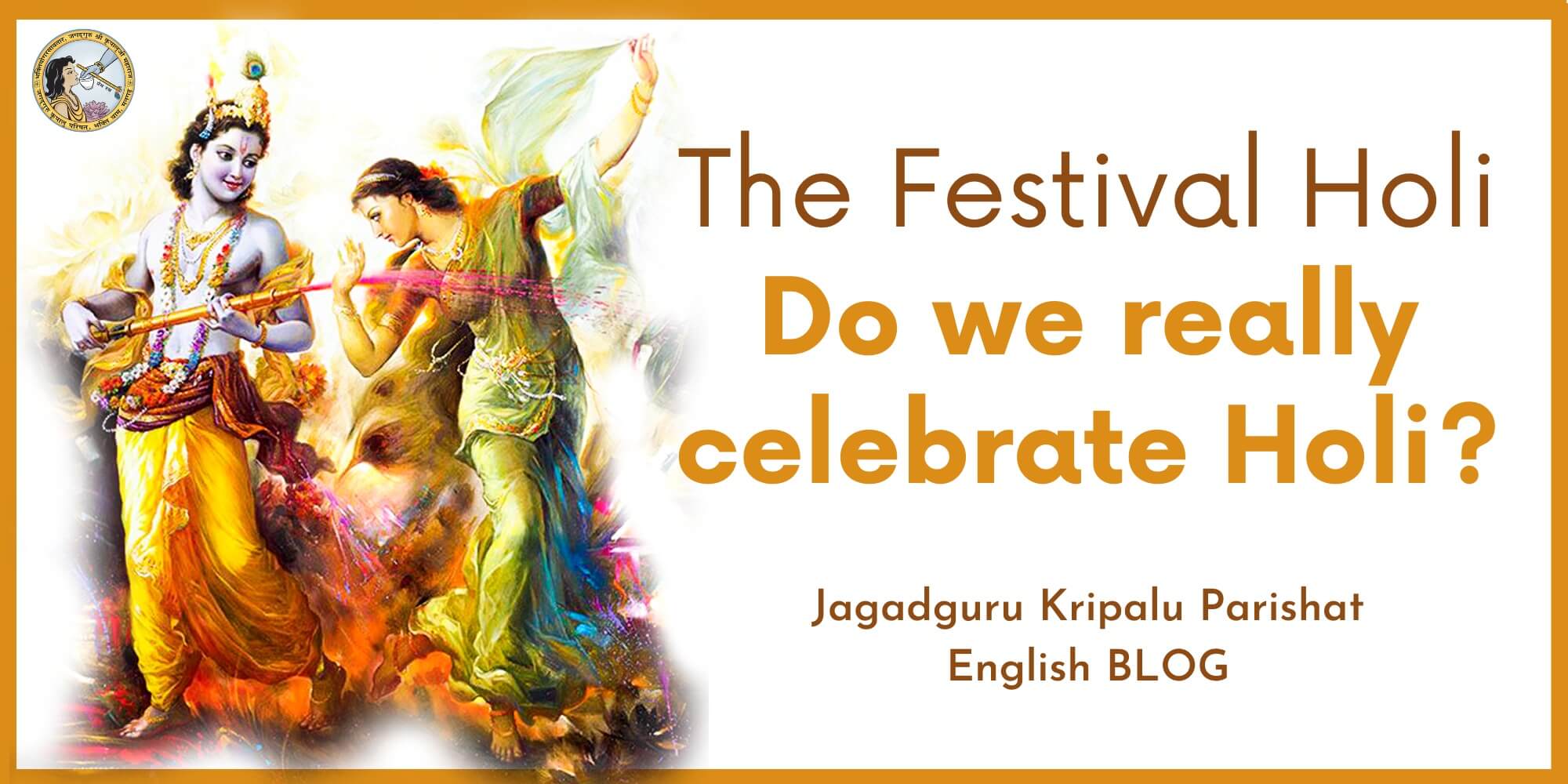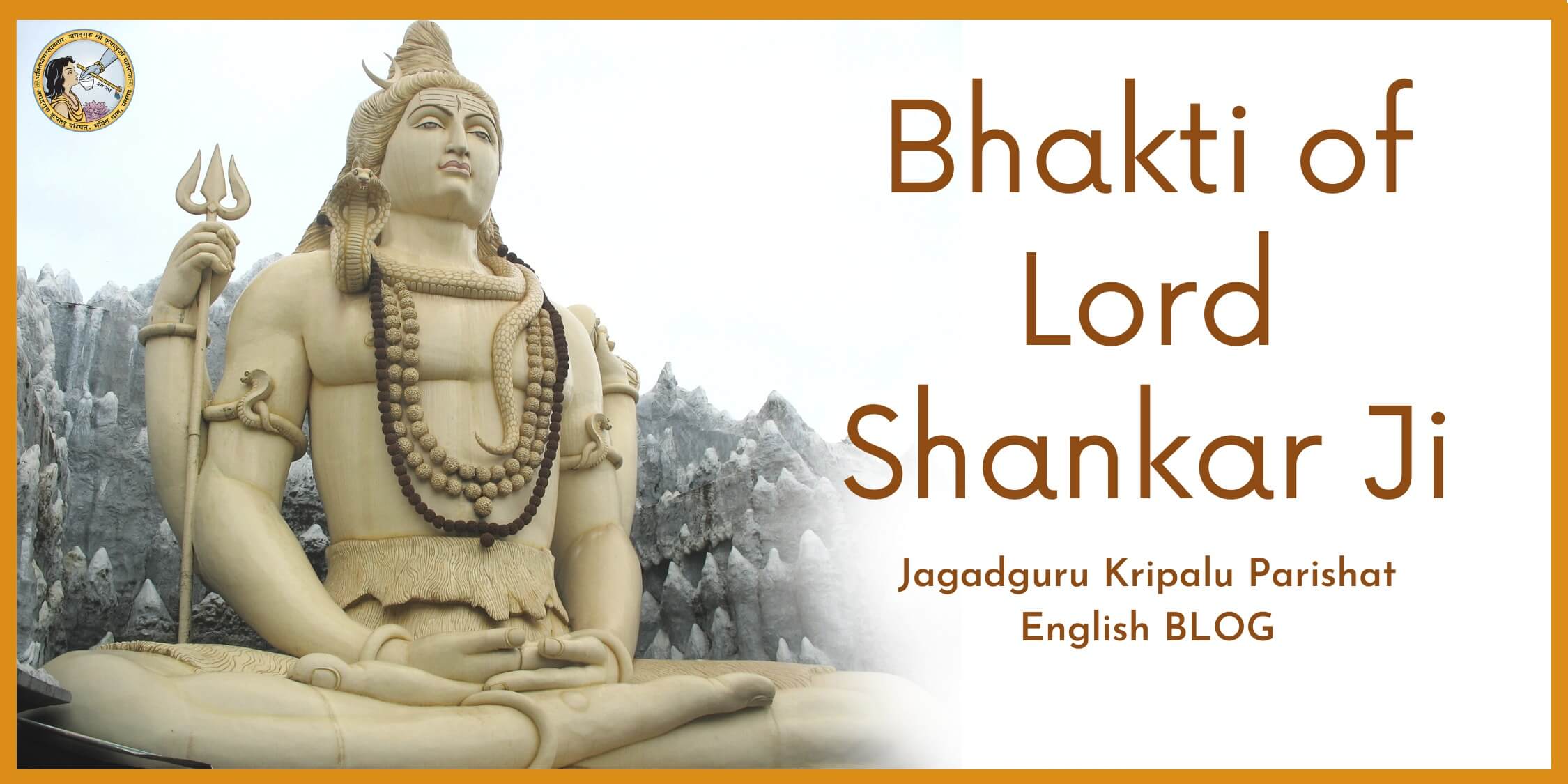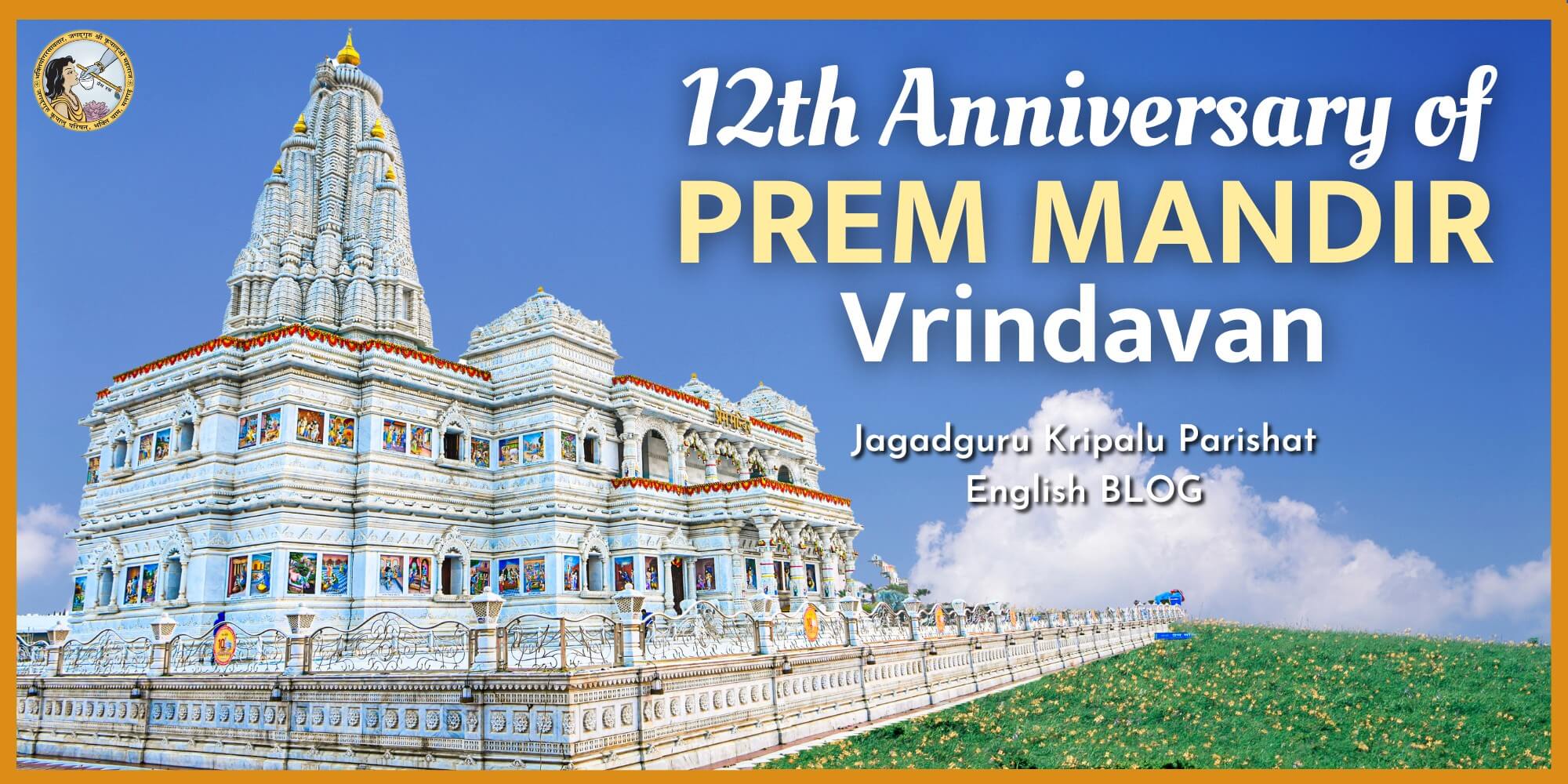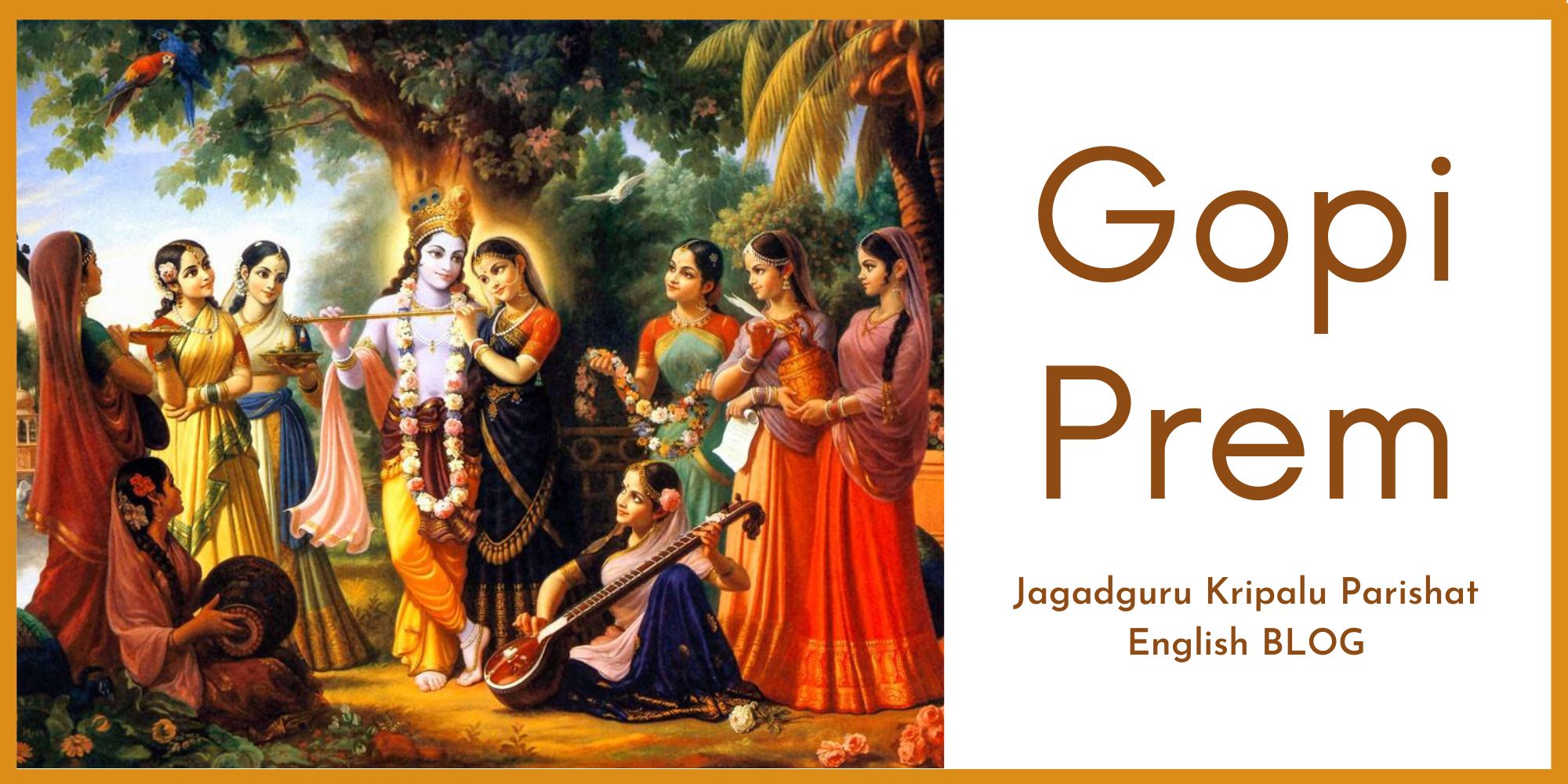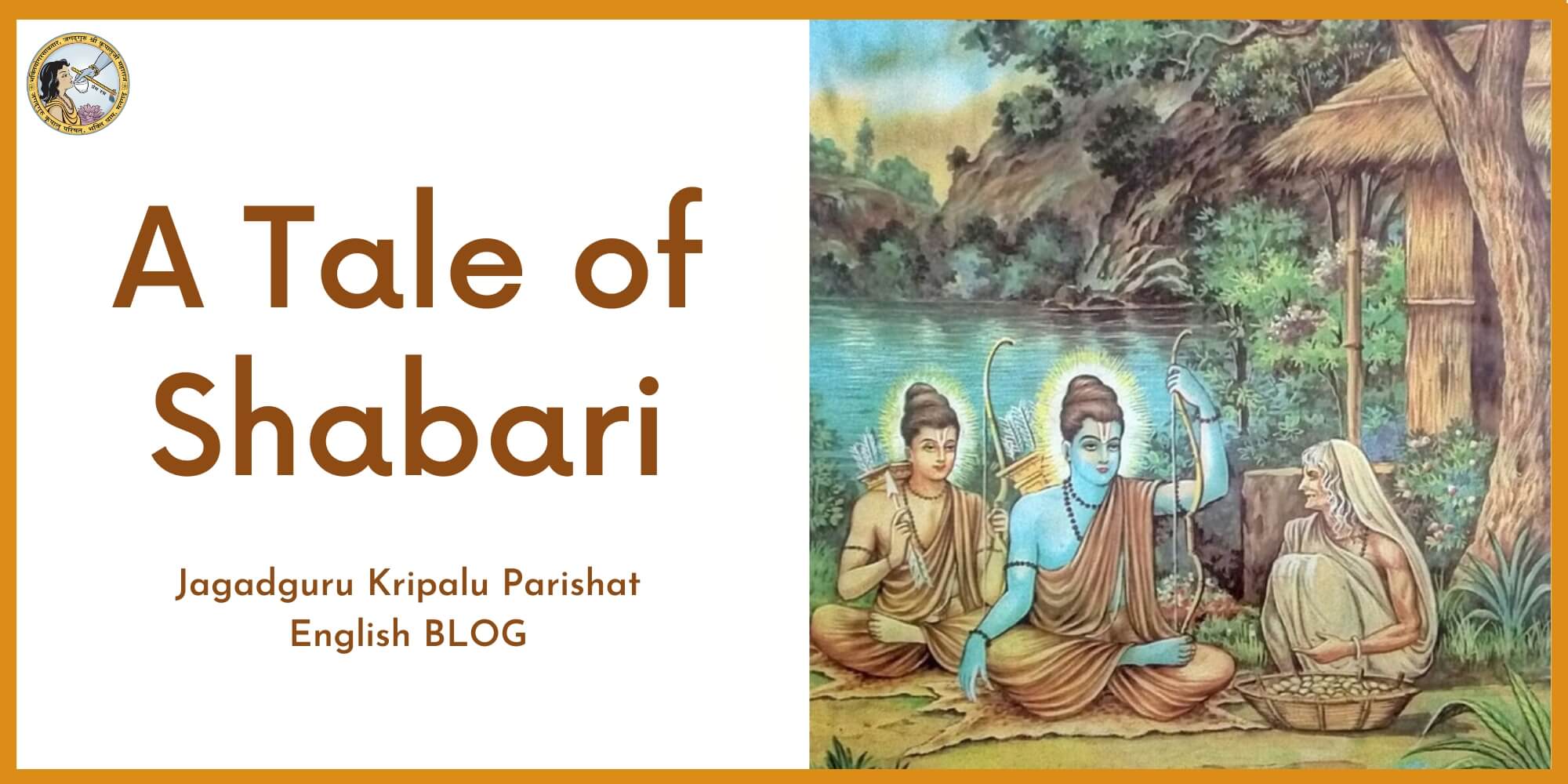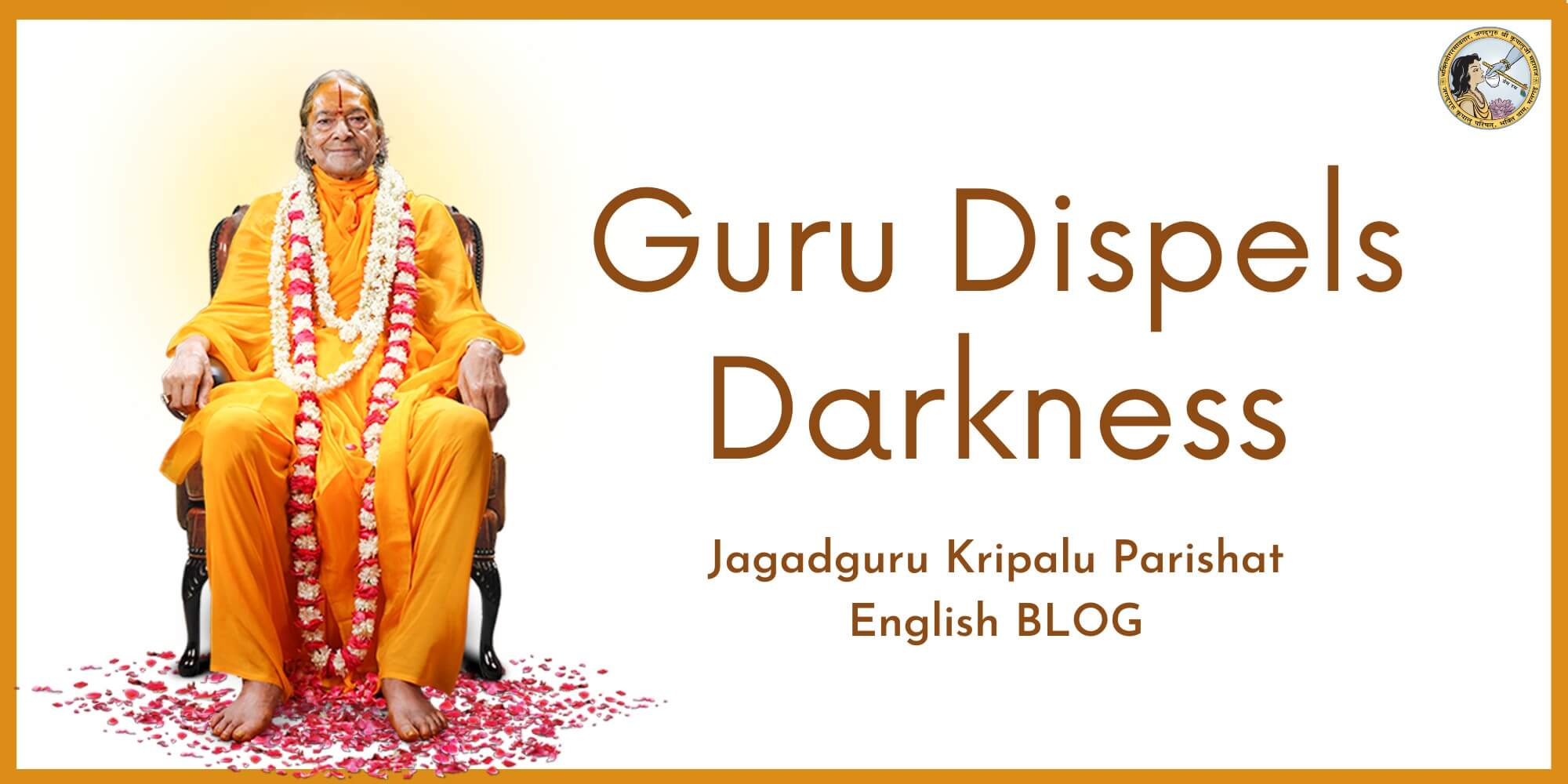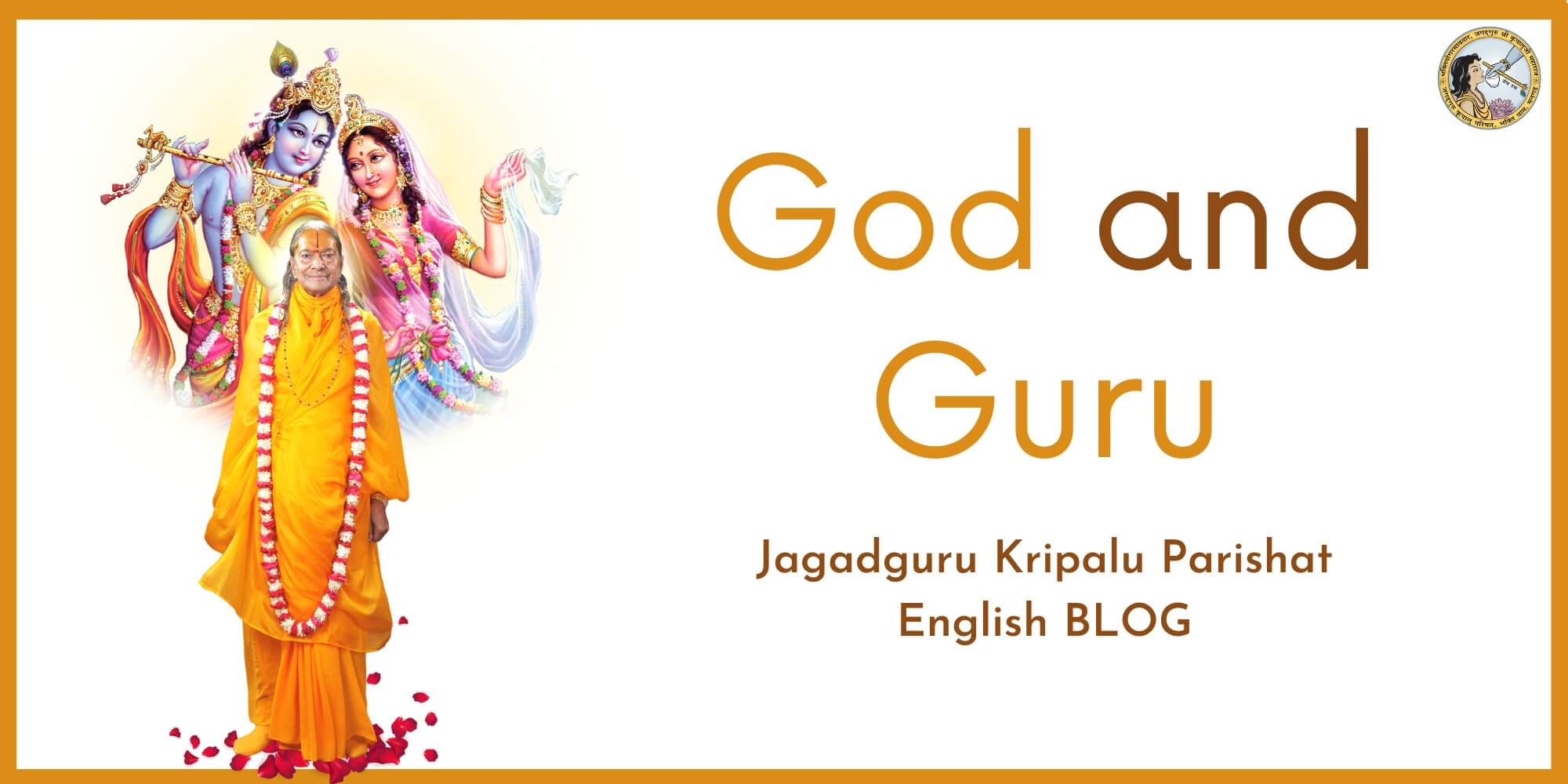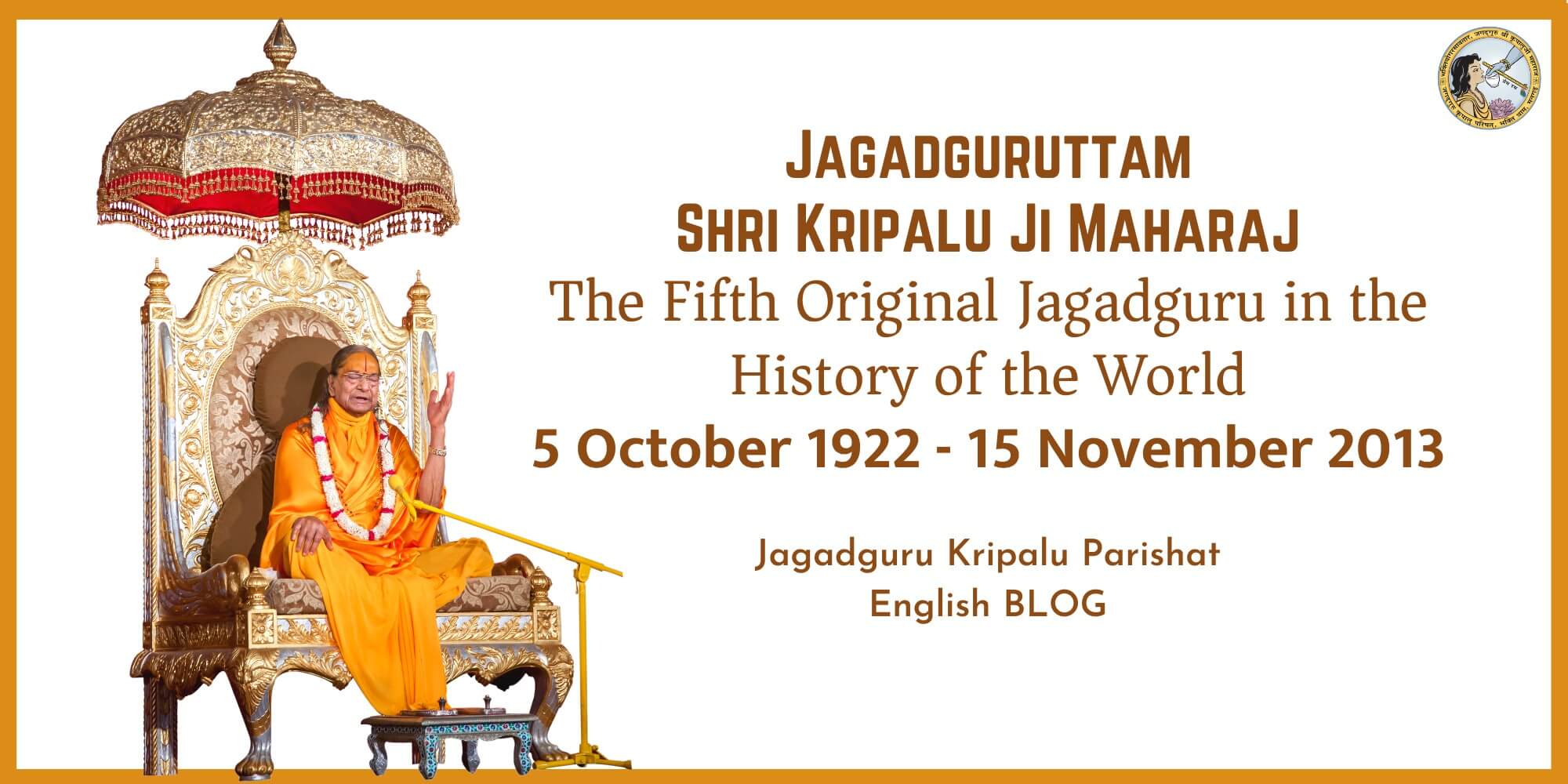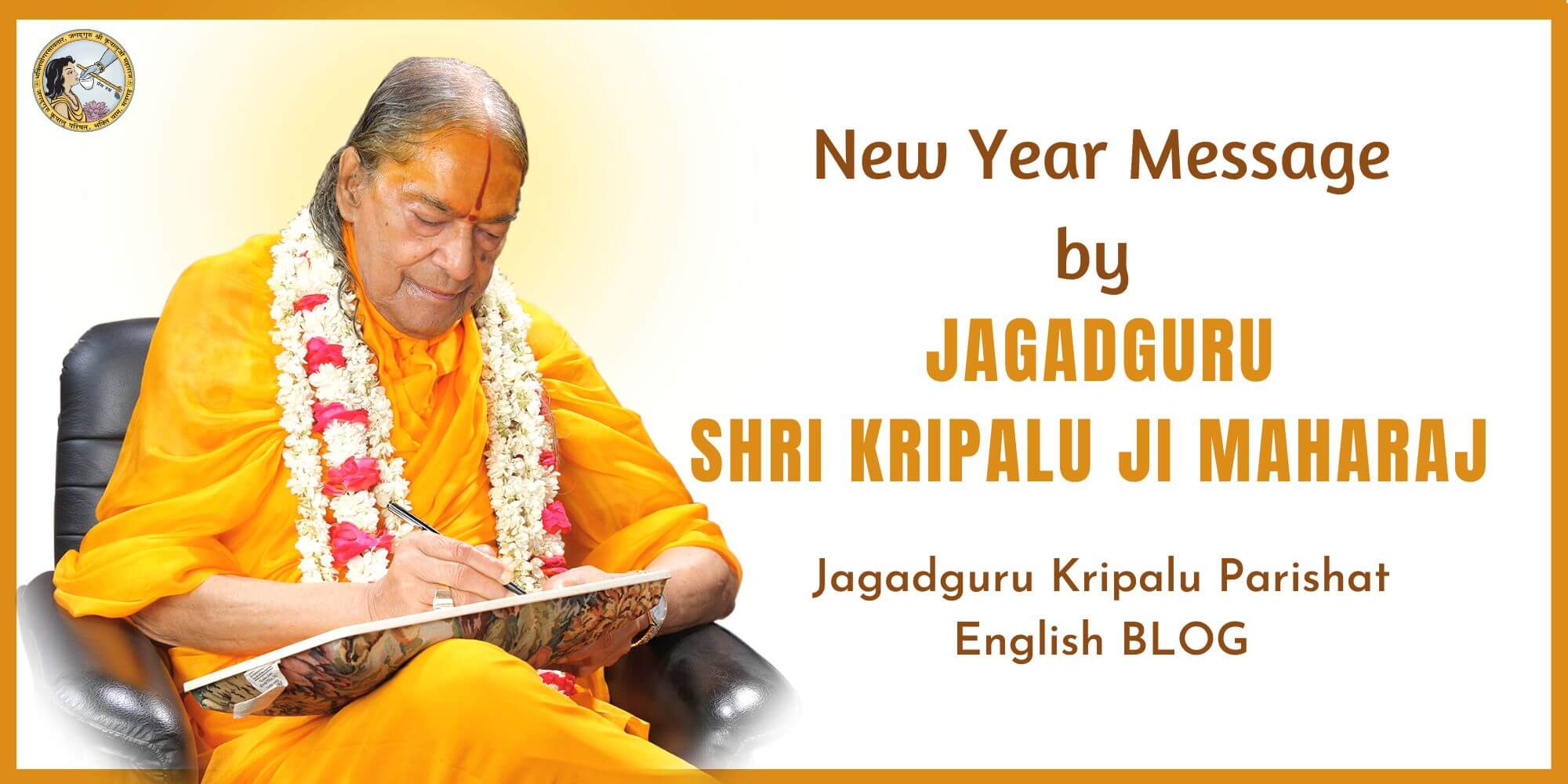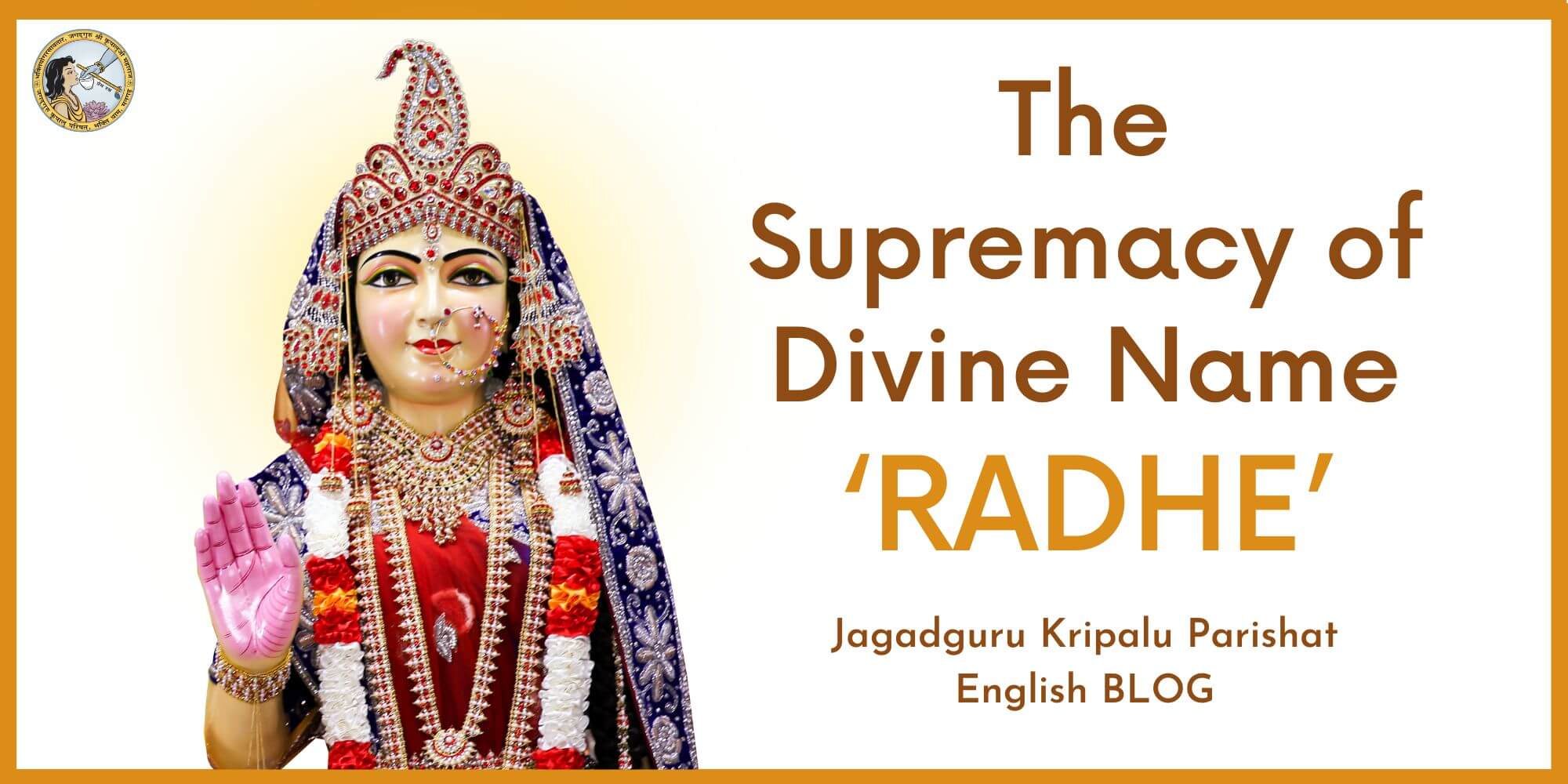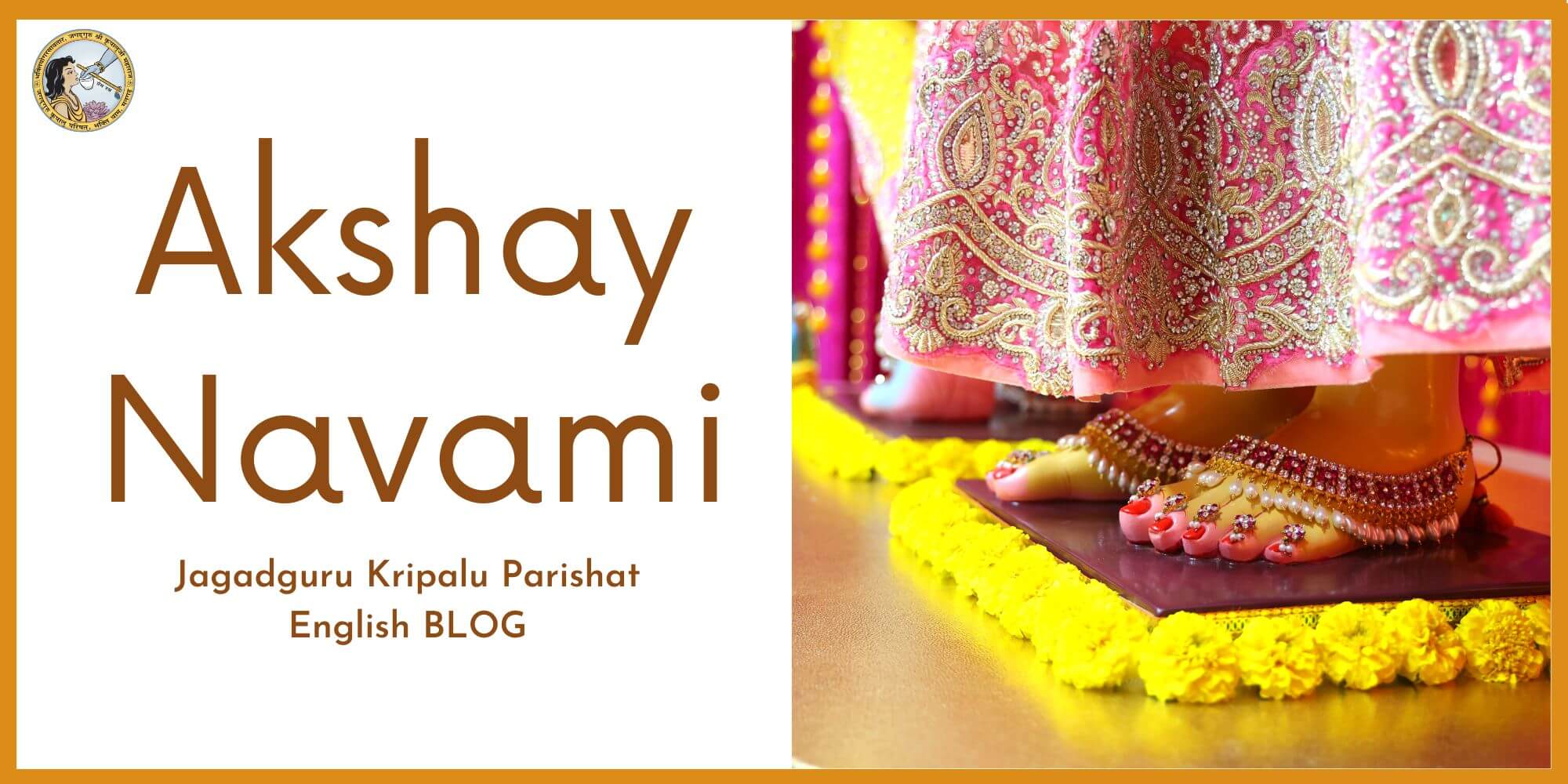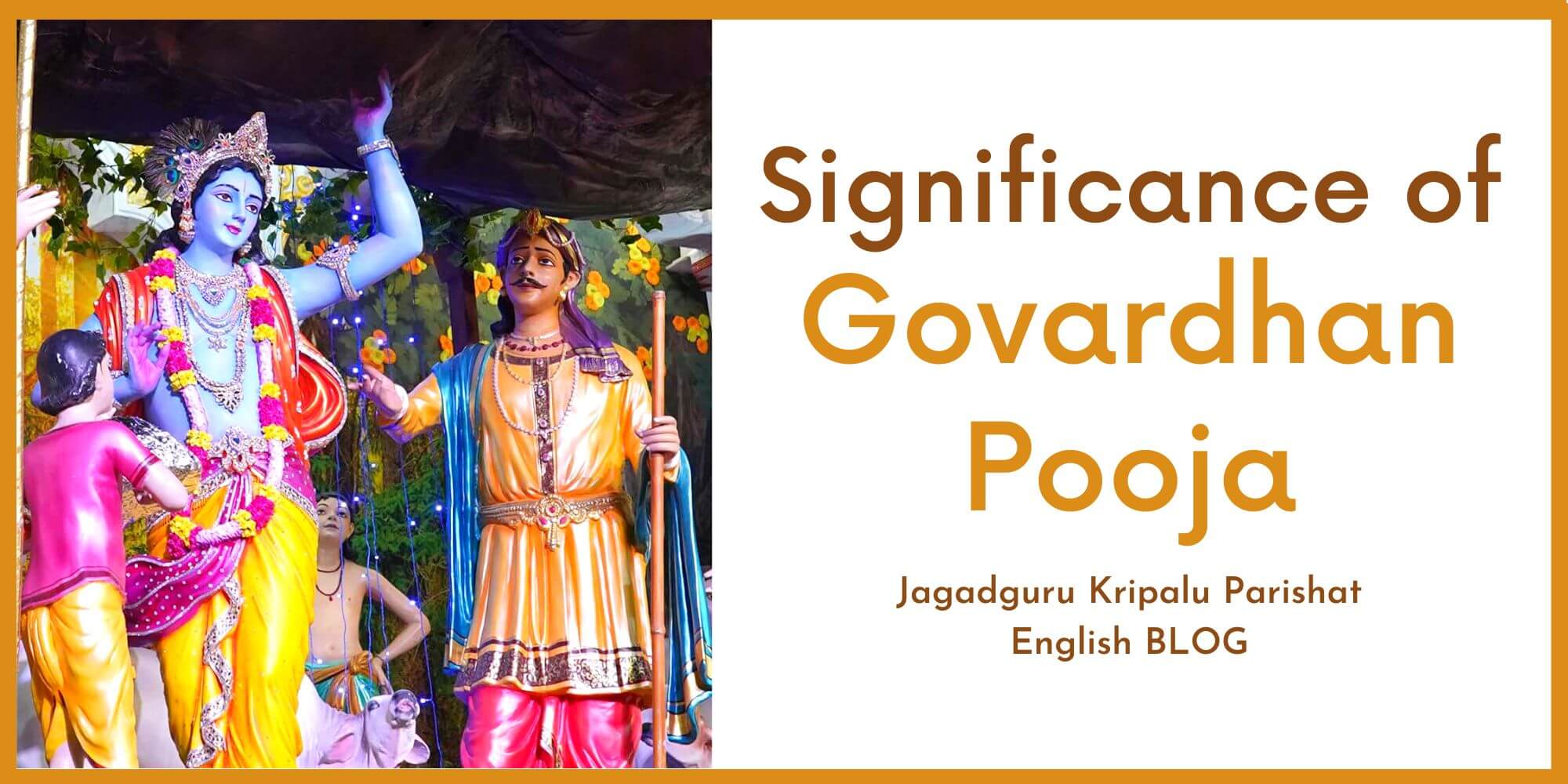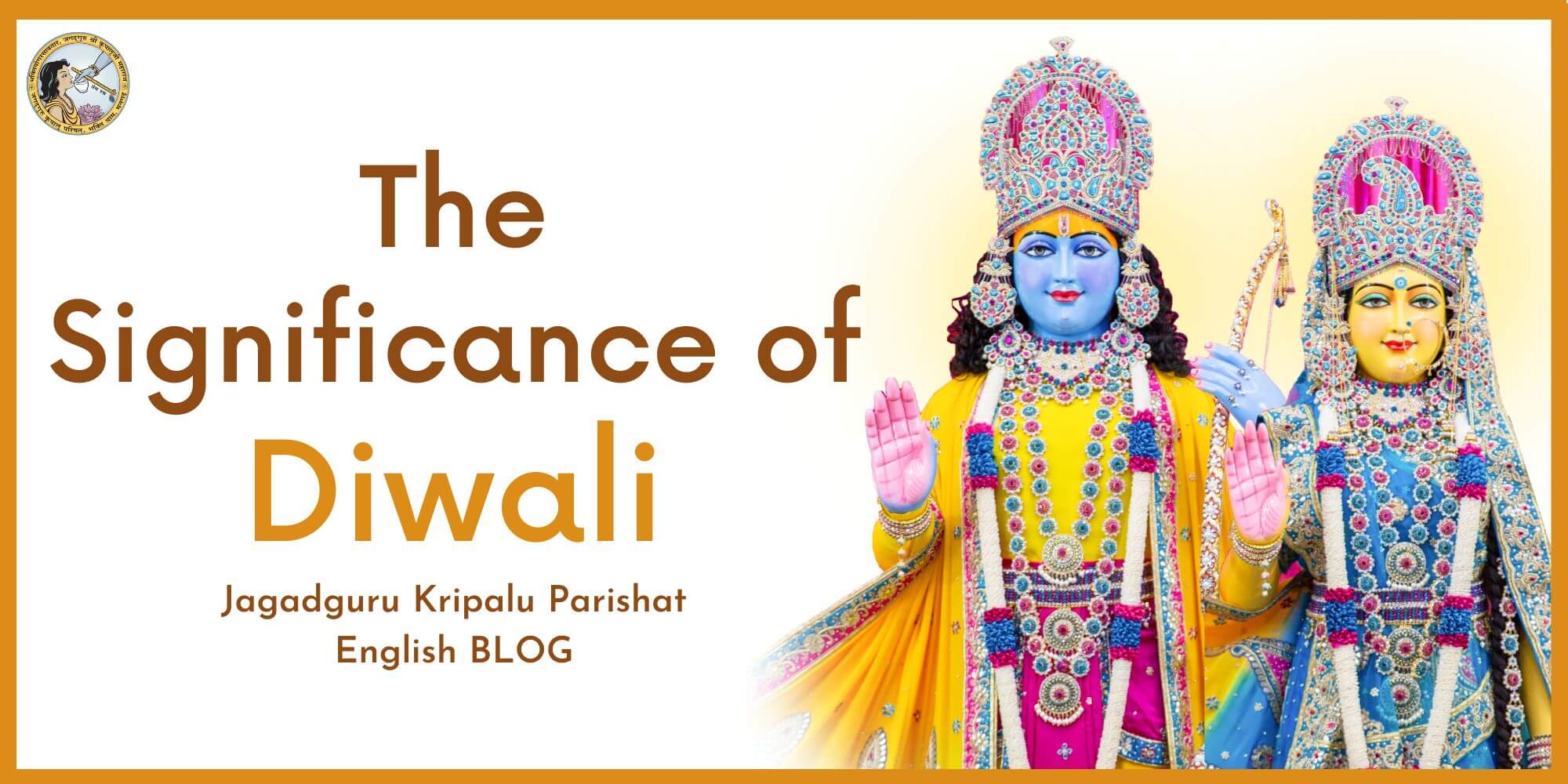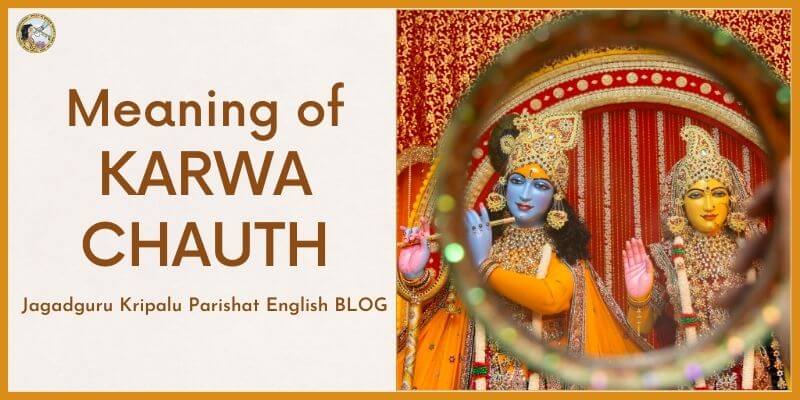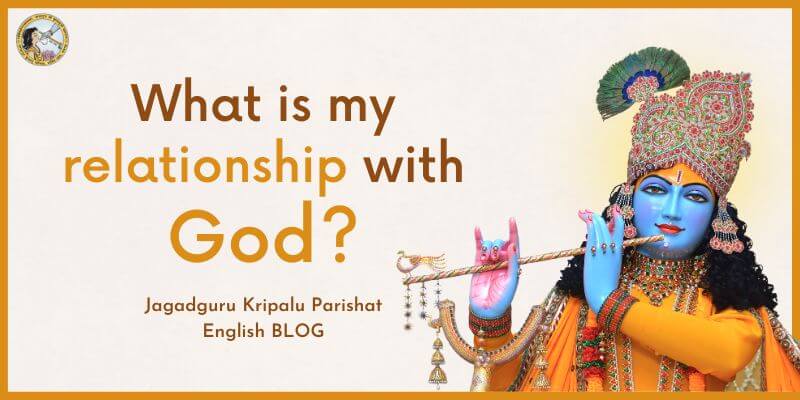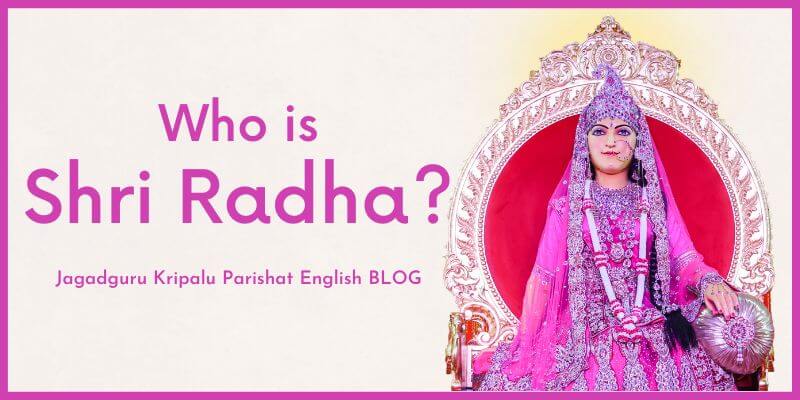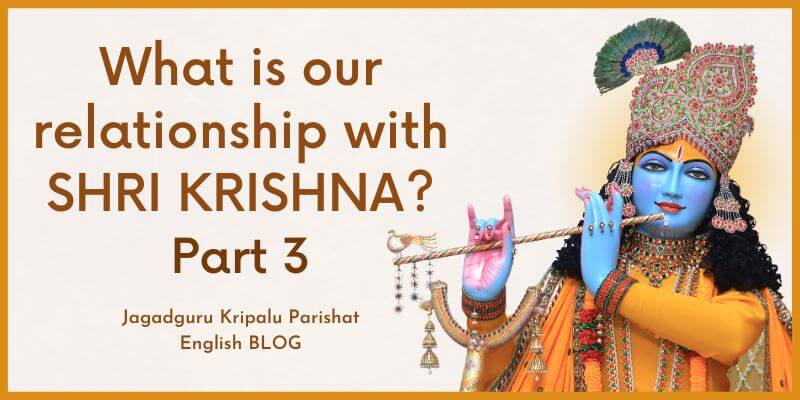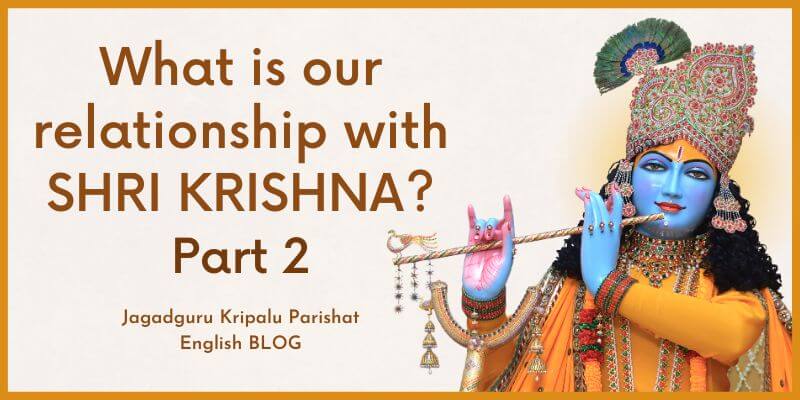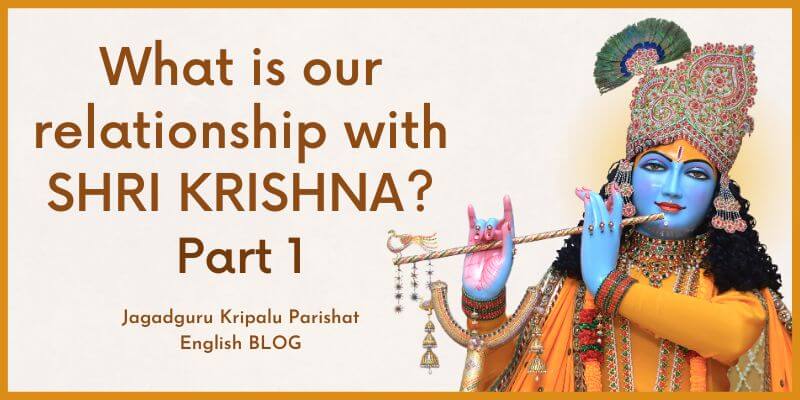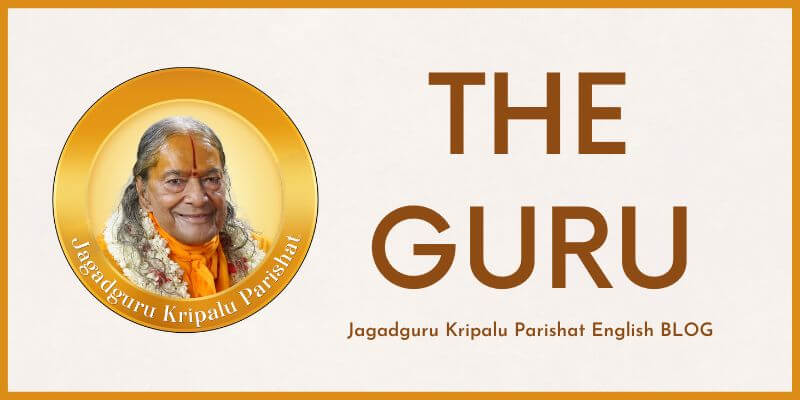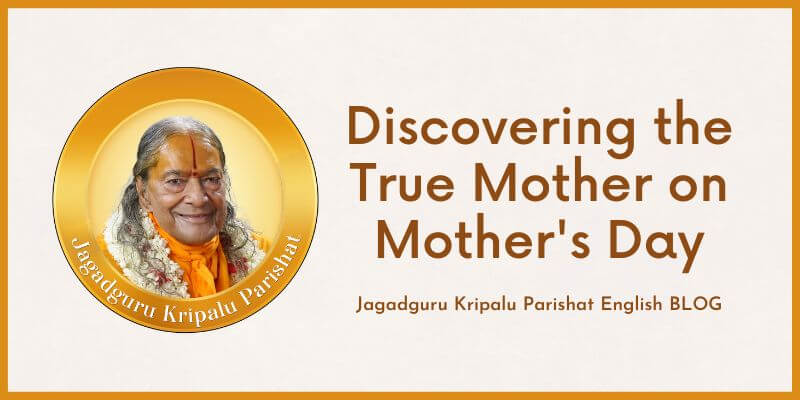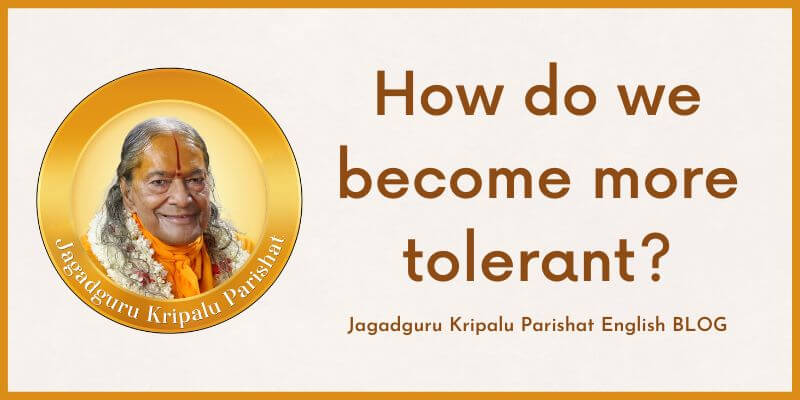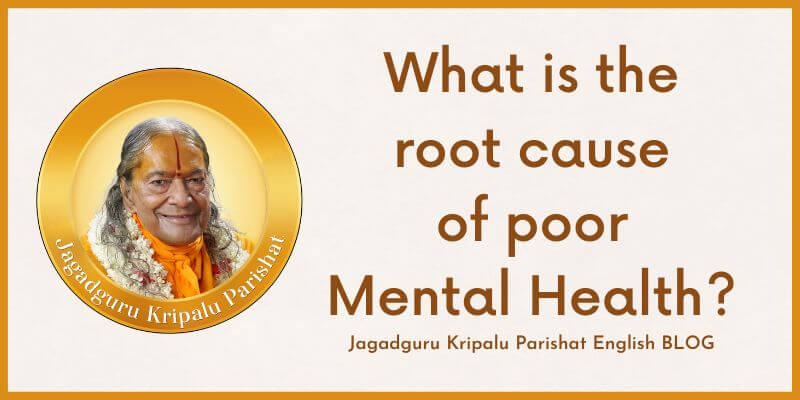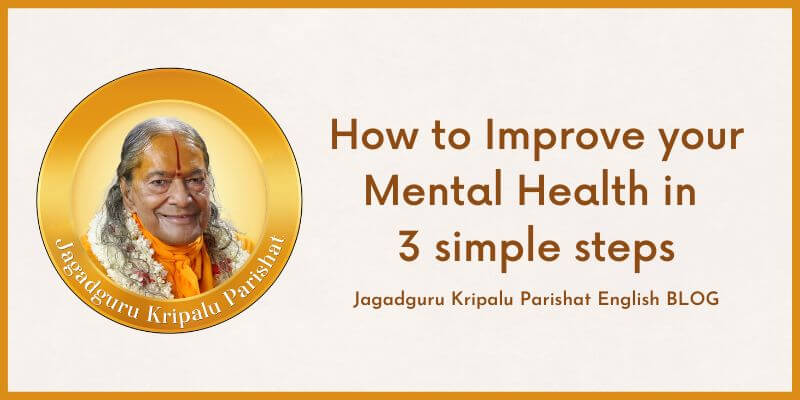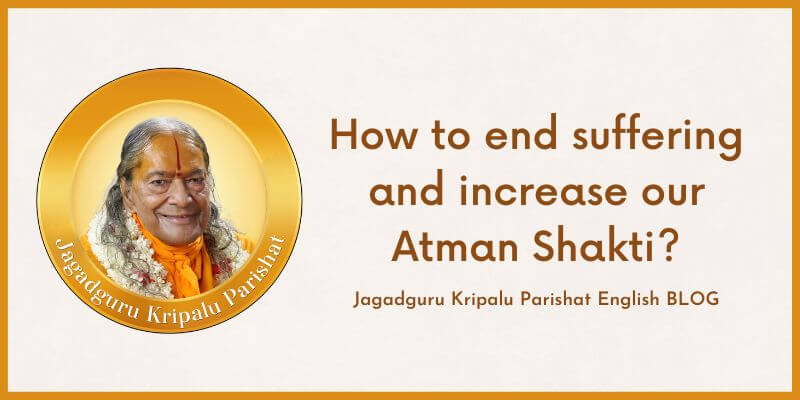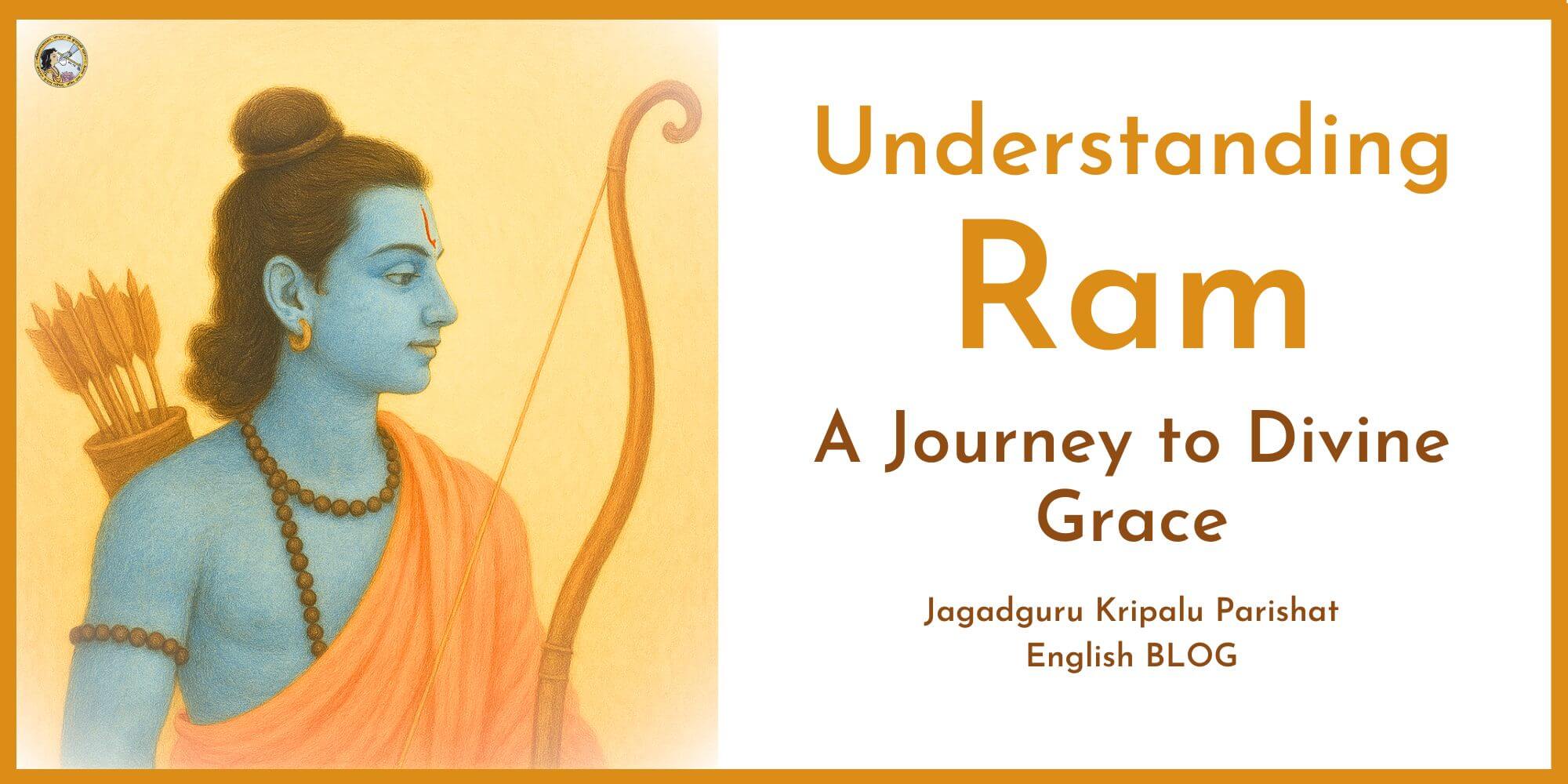The Divine Prison of Shri Krishna
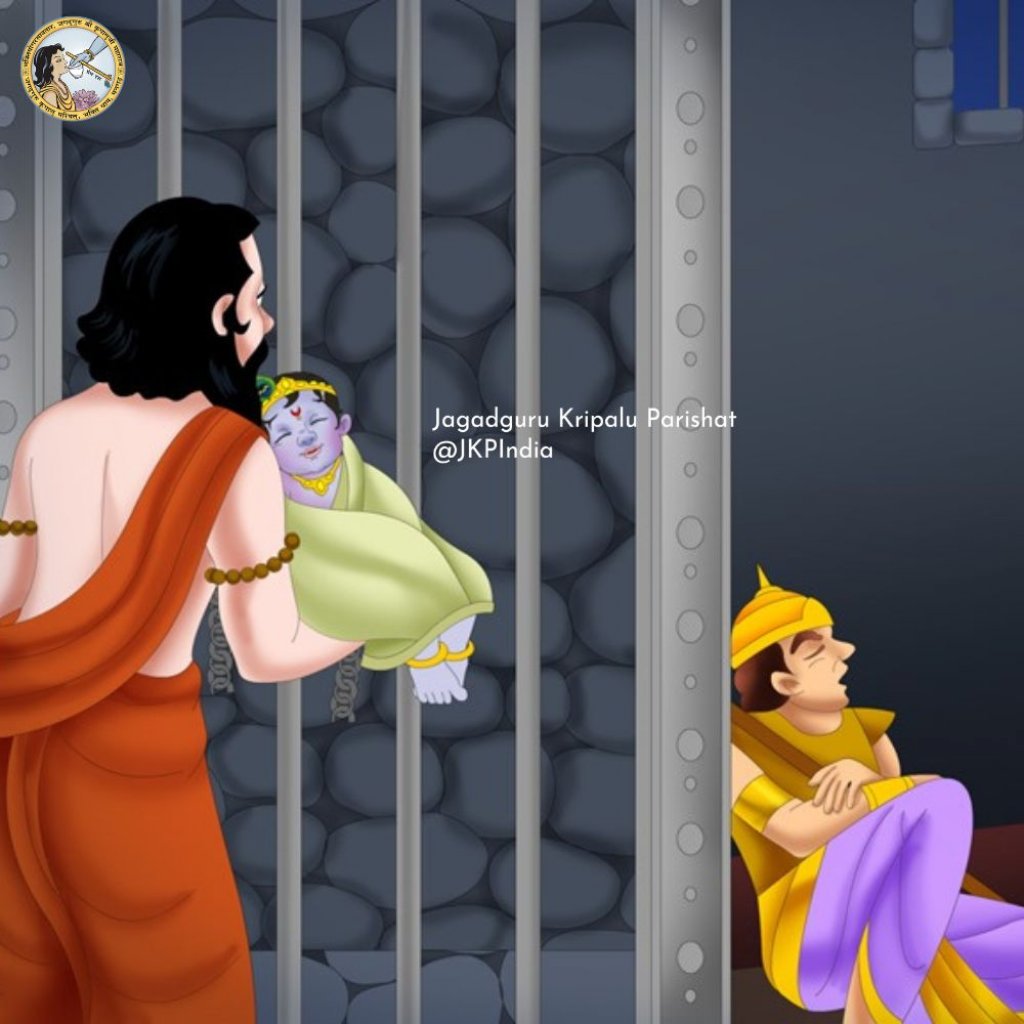
(Speech by Jagadguru Shri Kripalu Ji Maharaj on Janmashtami Day)
Around 5,000 years ago, on this very day, our Divine Father was born. Our Father was born after us. This might seem amusing. Even a layman knows that a son is born after his father. Yet, it’s greatly surprising that the one who has countless children was born after them. Shri Krishna is our mother, father, and everything.
In the Gita, Krishna declares, “O Arjun, I am the father of all. This world is born from Me.” This is reflected in His various names, such as Jagadpita (Father of the World) and Jagadishwar (Lord of the World), indicating that we are His children, His factions.
Neither can one explain who He is, nor can one understand it through explanation. Both are impossible. Not only we, but even celestial beings like Saraswati and Brihaspati cannot understand Him. In fact, if Brahma can’t understand, who else can? Brahma tried very hard through meditation to discover his origin and perceive his Divine Father.
Brahma had appeared from the lotus stalk that originated from the Lord’s navel. He wondered how he had appeared from this lotus stalk. He wanted to know about his birthplace and about his Father. So, he began meditating and entered the lotus stalk. He kept going inside the stalk for thousands of years but couldn’t find its end, so how could he possibly find his Father!
What scriptures and Vedas describe are only superficial glimpses. They cannot capture the ultimate reality. Beyond words and intellect lies a realm that is inaccessible. For example, saints describe Shri Krishna’s or Shri Ram’s complexion as being like a blue lotus flower. While we may have seen blue lotuses many times, none possess the kind of allure that would make us gaze at them endlessly.
If God’s complexion were merely like that of a blue lotus, He would not be as extraordinary. Seeing such a complexion only drives great liberated souls, paramhansas into ecstasy. Such descriptions can only be understood through divine perception. Even the Vedas and scriptures admit that understanding the true nature of God is beyond our intellectual capacity. They advise not even to attempt to understand Him, acknowledging His incomprehensibility even to the intellect of personalities like Brahma and others.
For example, the one whose birthday we’re celebrating is devoid of desires. He has no desires. Only those who have something to attain can have desires. We have desires because we want to attain bliss and be free from miseries. God is Bliss Himself. What more does He need to attain? Yet, He engages in action.
He has no desires, yet He performs actions. He is the Unborn (eternal) Lord, yet He takes birth. Yamraj (the God of Death) trembles out of fear of Him. Yet, out of Jarasandh’s fear, He fled from Mathura, leaving the entire land of India and establishing His capital on an island. Such a coward! Jarasandh had pursued them only a short distance before he withdrew, yet Krishna and Balaram continued their flight without ever looking back.
Such narratives indicate that anything related to Him cannot be understood. Everything is bewildering. The Vedas say, He has no eyes, yet He sees. He has no ears, yet He hears. He has no nose, yet He smells the entire world. He doesn’t have a mind. He also has an aspect devoid of distinctions and attributes, like that of the impersonal Brahman.
We, as souls, are also devoid of attributes and form. We entered our mother’s womb from outside. Our parents didn’t create us. We didn’t come from the mixture of five material elements either. We enter from outside and, once our time is up, we leave the body without notifying anyone. There is no fixed time limit for leaving; one can leave the very moment after birth or after 50 years! No one can help us. Even great yogis and saints eventually leave their bodies.
So, we are also formless. But we can’t see, hear, or smell without assuming a form. And even after assuming forms, our eyes can see nearby things only. Our ears can hear nearby sounds only. Our capabilities are limited. Yet, God perceives countless universes and hears everyone’s words, whether they are a devotee or a demon. He single-handedly notes everyone’s actions. He Himself passes judgement and imposes punishment. He doesn’t have a police, military, or court. He doesn’t trust anyone at all. Sitting inside everyone, He notes and imposes punishment.
This world, where we reside, is essentially God’s prison, comprising 8.4 million life forms. In actual fact, all of us are criminals who have committed wrongdoings and are sent here to this worldly prison by Shri Krishna to face punishment.
Ironically, worldly people, believing themselves wise, have established additional prisons in this world. Every government has its own prison for criminals, and all who come to their prisons are deemed to have committed sins. Those who do not identify with the body are labelled as mad and sent to the mental asylum, while those who identify with the body are deemed normal and intelligent.
Similarly, those who consider themselves the body and not the soul, become attached to the world. In their pursuit of happiness, they often engage in sinful actions, leading them to be placed in the world, which is God’s divine prison.
Yet, in our ignorance, we label the saints as crazy. When a saint says, “You are foolish for identifying yourself with the body,” we dismiss them as deluded. Despite our education and intellectual achievements—holding degrees like BA, MA, IAS, and more—we think, “How dare he call us foolish? There are only a handful of these so-called saints in the world. Why should we trust them?”
We even hold meetings to declare that those saints who challenge our self-perceptions are suffering from mental disorders and we accuse them of creating the concept of God themselves, reversing the true order of creation. So we are sent to this prison. And we consider them mad who don’t accept our norms and send them to our worldly mental asylum.
Similarly, an oracle conveyed to Kansa, “Your sister, whom you are so affectionately driving in her chariot, will give birth to a son who will be the cause of your death.” Kansa’s reaction was to dismiss the oracle as madness. He exclaimed, “Who is speaking? It must be someone delusional!” In his rage, he declared, “I will kill my sister immediately. To hell with her!” It is not uncommon for someone to sever ties with their own family if they believe those family members pose a threat to their life.
Vasudev then calmed Kansa by saying, “Why take such drastic action against your sister? We will hand over every child she bears. You can kill them, that’s it” Kansa agreed and confined Devaki to prison. Thus, the very one who had imprisoned us in this world had to enter a prison Himself. God is devoid of shame. He is the topmost shameless! God does not accept our definition of shame. He appeared in the prison.
Now here He starts His playful activities. God never entered the mother’s womb where we get sustained as a foetus. Though He is all-pervading, He didn’t enter the womb. First of all, He entered Vasudev’s heart. (Bhagwat verse 10.2.16) – And then He left Vasudev’s heart and entered Devaki’s heart. While sitting in her heart, not her womb, God made Devaki feel that she was expecting a baby. He made her show all symptoms of pregnancy like that of a worldly woman.
It’s not a big deal for Him. He does make the impossible possible. So now His mother felt nausea and vomiting. Now everyone knew that she was expecting a baby. All her previous children had already been killed. Her belly started enlarging. Now everyone, including Vasudev ji and the guards, knew that she was going to give birth soon. When her gestation period was over according to worldly calculations, God appeared in His four-armed form.
In Bhagwat verse 10.3.9, it describes how God appeared in front of His parents. He ended all the sensations that Devaki was experiencing in her belly. It was as if she just woke up from sleep and said, “What was it? My womb got empty, but He didn’t come out from me!” And He is quite grown up! That too holding a conch-shell, disc, club, and lotus!” If someone enters his mother’s womb (holding a disc), it could perform a surgery there! His divine disc is so sharp that it can slit the entire universe.
Mother understood. Father Vasudev also realised that He is God. God was smiling in the prison. Knowing Him to be God, they started glorifying Him. While glorifying, they said, “We had prayed to attain You as our son. But You have appeared as our father! You haven’t fulfilled the boon You had granted us.”
God said, “O father, I wanted to assure you that I am the same Personality who granted you the boon. Had I appeared as a mere child, you might have doubted My divinity, thinking I could be either a celestial being or a human. Therefore, I am providing proof that I am God.” He then transformed into a small baby and began to cry.
Upon hearing His cries, the guards realised that the baby was born, and Kansa was informed. By the time Kansa received the news and prepared to act against his perceived enemy, another divine drama unfolded. In this world, a father might escape prison by taking his child with him, but here, the child escaped with His father! Everything was reversed – the prison locks unlocked, the guards fell asleep, and they fled. Once they had escaped, the prison doors closed again. The guards, believing everything was in order, were unaware of the escape.
The River Yamuna, which often floods near Delhi during this time, presented another challenge. Shri Krishna reassured His father, “Don’t worry; they are all My servants.” As Vasudev Ji waded into the river, he was about to drown. At that moment, the Lord subtly extended His lotus feet to touch the Yamuna’s waters. With his divine touch, Yamuna parted, allowing Vasudev Ji to continue.
They reached Gokul, but there was vigilance even there. Nand Baba was a prominent figure, so gatekeepers were stationed everywhere. Once again, God caused everyone to fall asleep and the doors to open automatically. At midnight, it was natural for the worldly people to be asleep inside closed doors. Yashoda was about to give birth to a girl, and she too was made unconscious, unable to realise if she had delivered a boy or a girl. The girl didn’t cry and remained silent to avoid waking anyone. She was inside the most private room of the house.
In ancient times, expecting mothers were kept in the most secluded rooms where no one was allowed entry. Yet Vasudev Ji entered freely, in the palace of an eminent person, finding Yashoda’s room with all the servants asleep. He saw the newborn girl and understood it was the work of the mischievous Lord. God inspired him, “Leave Me here and take the girl with you.” He placed the Lord there and returned. Everyone was sleeping.
As Vasudev Ji departed, the doors remained open. After he had walked a short distance, the doors closed again. Meanwhile, the Lord began crying in Gokul. The people discovered the baby’s birth, realised it was a boy, and celebrated with dancing and singing as is customary in our world.
Yamuna once again parted for them. Vasudev Ji returned with the girl, and the guards fell asleep again. The gates opened once more, and he re-entered the prison. All these events transpired swiftly, before Kansa could reach the prison. Travelling from Mathura to Gokul, which is about six miles, typically takes 3-4 hours. Yet, under the influence of yogamaya, these events occurred in the blink of an eye.
When Kansa arrived at the prison, he learned of the child’s birth and went to investigate. Finding a girl instead of the expected son, he thought, “I was told her son would kill me, but it’s a girl. I can’t trust that Mayavi (master of illusion). He might have appeared as a girl.“ So, he decided to kill her as well.
Kansa seized the girl by her legs and attempted to dash her against a rock. However, she slipped from his hands and ascended to the sky, disappearing. The ceiling did not break to allow her escape; she was a divine power after all. Her voice echoed, saying, “Your slayer is already in Braj. You foolishly attempt to kill me.” Kansa began to regret his actions, realising he had killed many children in vain. The great demon suddenly gained pure wisdom. He fell at the feet of Vasudev and Devaki, admitting, “I have committed a grave sin. Please forgive me.” Saints, known for their merciful nature, forgive sinners. They also forgave Kansa.
Kansa returned home and convened a meeting with his ministers, declaring, “I have committed many sins and wish to stop them now.” The ministers responded with disbelief, saying, “What are you saying? He is indeed in Braj. What’s wrong with you?” They provided various misguided suggestions, leading Kansa to reaffirm, “Yes, He is in Braj. I must kill Him.”
Thus, Kansa’s mind changed again. The actions of God are divine and beyond human intellect. If someone asks, “Why did He take birth? Why did He descend?” or “Why did Shri Krishna perform such actions?” The answer is simple – The actions of God or anyone in general fall into two categories. One is the action of those who have something to attain, and the other is the action of those who have nothing to attain.
The difference is this – actions performed by those seeking something are for their own benefit. We are examples of this – every action we perform aims at our own happiness. Despite not having attained true happiness, we continually seek it from the world, often from those who themselves are beggars of happiness.
The happiness we experience in the world is fleeting. As a result, all our actions are geared toward seeking our own happiness. We relentlessly strive to attain it from external sources, such as our parents, spouses, and others. However, these sources are themselves in search of happiness and cannot provide it to us. It’s akin to a beggar approaching another beggar for help. The second beggar offers everything he has, but the first beggar responds, “It’s empty!” To which the second beggar replies, “I have nothing to give; I am actually seeking from you.”
Everyone is under a delusion. Those who have attained true bliss—or who are bliss themselves—act solely for the benefit of others. They have no personal needs or desires. If they did act for their own sake, we might question them in their own court: “Why are you taking action when you have nothing to gain?” Thus, all actions of God and those who have attained divine realisation are purely for the welfare of others.
Just as we often act only for our own benefit, our seemingly selfless acts are frequently motivated by hidden agendas. For instance, we might spend ₹2,000 now with the expectation of receiving ₹20,000 in return later. This is a common tactic. In contrast, the actions of God and saints are genuinely selfless; they are performed solely for the welfare of others, without any personal gain.
So God’s visit to this worldly prison by taking descension and performing various actions can be illustrated by a prison which is visited by the police, magistrate, doctors, and sometimes even by the Minister for doing inspection. These officials enter the prison, not as inmates, but to ensure its proper management and function
Thus, the actions of God, whether in taking birth or performing miracles, transcend our understanding. The Divine leelas (pastimes) of Shri Krishna are beyond human intellect, illustrating that God’s actions are solely for the welfare of others, guiding us toward liberation from this divine prison and helping us attain our ultimate goal of Divine Bliss.
*A brief introduction of Jagadguru Shri Kripalu Ji Maharaj*
(Known by His devotees as Shri Maharaj Ji)
The original title of Jagadguruttam (Greatest Spiritual Teacher of the World) was bestowed upon Shri Kripalu Ji Maharaj on January 14, 1957, by Kashi Vidvat Parishad (a council of 500 greatest scholars saints of India). He composed divine texts like Prem Ras Madira, Prem Ras Siddhant, and Radha Govind Geet to lead us on the right path of devotion. He also gave priceless monuments as gifts to the world which include Bhakti Mandir located in Bhakti Dham, Mangarh, Prem Mandir located in Vrindavan Dham, and Kirti Mandir located in Barsana Dham. Shri Maharaj Ji also built hospitals for the impoverished, the Jagadguru Kripalu Chikitsalaya in Vrindavan, Jagadguru Kripalu Chikitsalaya in Barsana, and another one in Pratapgarh. All three help millions of underprivileged to gain free access to medical care. His Kindergarten, School, and College for impoverished girls Jagadguru Kripalu Parishat Education is located in Kunda and provides completely free education.
